#this is probably a phase for the team and they’re not serious but frankly my dears I don’t give a fuck
Text
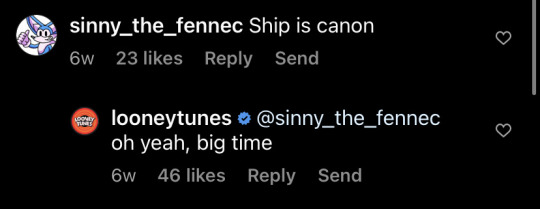

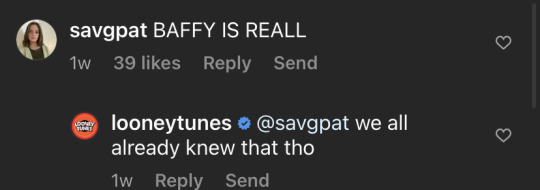
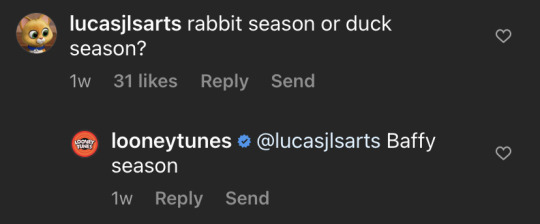
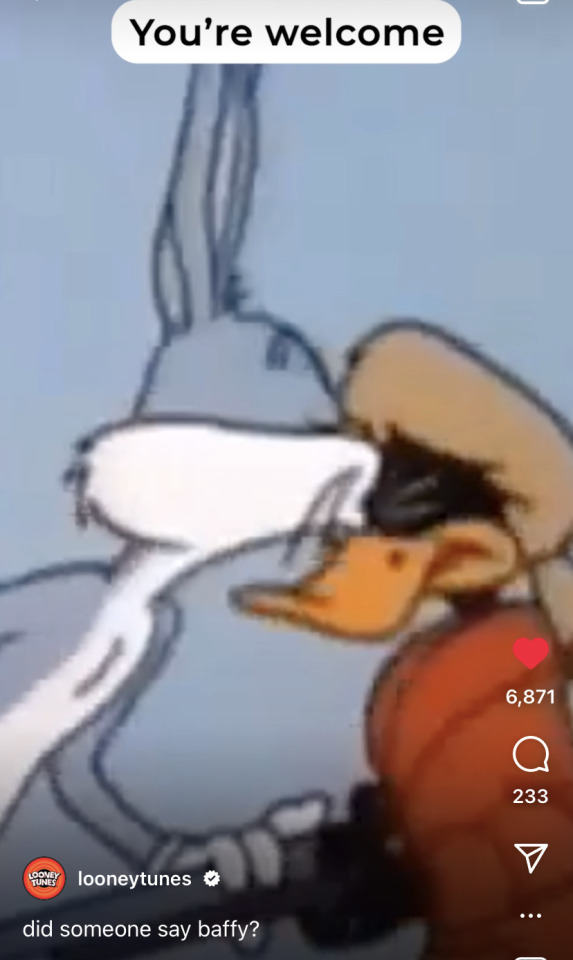
anyways, Looney Tunes’ Instagram declared Bugs Bunny and Daffy Duck canon so don’t touch me i’m not normal alright
#cel speaks#looney tunes#bugs bunny#daffy duck#this is probably a phase for the team and they’re not serious but frankly my dears I don’t give a fuck#I’ve been working so hard going crazy in my baffy lil circle makin gay shit and now baffy nation is acknowledged by media overlords#I’ll take what I can get ok 😭?!??
74K notes
·
View notes
Text
Bob’s Burgers 10th Anniversary Retrospective
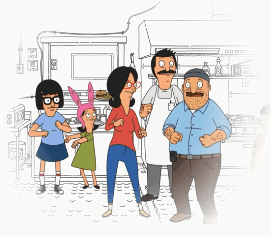
After ten years, Bob, Linda, and the Kids are just as delightfully wacky and endearing as they ever were, and show no signs of slowing down. So I wanted to put together an ultra mega review of the series. I’ll give an opinion on main and recurring characters, as with a cast this big, there’s been a lot of endearing characters to grace the show over the years. However, I will only be counting characters that have appeared more than once. After ten years, there’s been some real gems, and some real misfires. So, I’ll be counting down my top 10 best episodes, and the bottom 10 worst episodes. I’ll also go through as a Highlight Reel, by picking a best and worst episode of each season, as well as crowning the Best Season with the most good episodes.
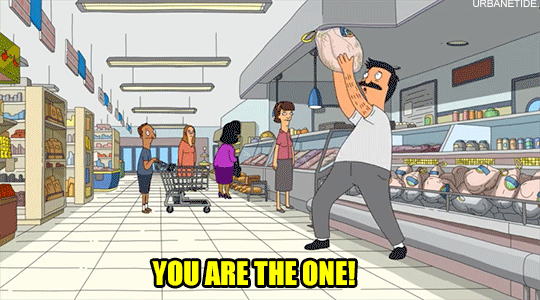
Bob Belcher
Honestly, Bob was a very easy character to mess up. He’s the straight man to his wacky family’s antics. But the show does a really great job making Bob simple and lowkey without making him boring or a stick in the mud. He may be resistant to weird things, but he puts up with it anyway to make his family happy. While he’s the serious straight man, they don’t fail to give Bob his own eccentricities and quirks that make him relatable and funny in his own way. Whether he’s making things talk, getting weirdly excited about Thanksgiving, or his awkward way of speaking, Bob is genuinely a good and relatable character. It’s also nice to see that Bob is a great husband and a loving father. He and Linda argue from time to time, but they’re not trapped in a loveless marriage for the kid’s sake like most shows. And even shows where that’s not a selling point like American Dad, Bob shows more remorse for things like forgetting their anniversary than Stan does for Francine. Bob is supportive, loving, and forgiving. Which is just amazing to watch. The times when his kids really need him, he’s there for them, and he helps them through their problems. While Bob might fight with and get mad with or annoyed by his family, Bob never treats them like people he’s stuck with. Frankly, Bob blows most animated TV dads out of the water. I don’t think I’ve ever seen Stan or Francine give quiet supportive talks to Steve or Hayley ever in American Dad. Peter used to at least try to be a decent father, but now is a negligent toddler. Likewise, Homer used to be a great father who cared about his kids, but later seasons have really stepped away from the family angle the Simpsons used to have. In a sea of adult animated families that are toxic and destructive, Bob’s genuine love for his family came as a breath of fresh air.
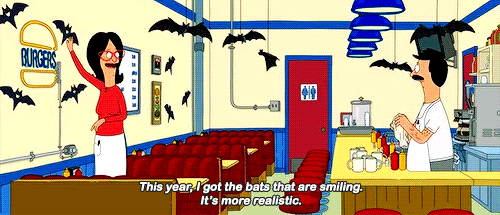
Linda Belcher
Linda is by far the best Adult Animation TV mom there is. For one thing, she’s funnier than Francine, Lois, and Marge combined. But more importantly, she’s not the butt of the joke when it happens. I can only really remember laughing at Francine when they make dumb blonde jokes with her, but Linda’s jokes come from her character. She could have easily been the gender inverted Homer or Peter, but the writers are careful to make her gullible, trusting, and goofy without making her a moron. When the kids do something wrong, Linda busts out the tough mom act and you genuinely believe that the kids are in trouble. She’s not faking it. She’s not off in her own little world. She’s a bit of a goofy dreamer, but she’s able to be the tough disciplinarian when she needs to be. Her relationship with Bob is also better than most adult animation wives. She’s more independent than the other housewives, and even though her job is working with her husband, it never feels like it robs Linda of her own power, autonomy, and freedom. But the best thing about Linda is that I think most people can agree, she has an extremely strong and charming personality that endears us to her.
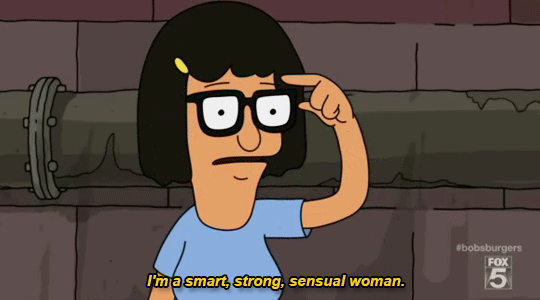
Tina Belcher
I really wish I could say I liked Tina more. She’s a creative romantic, just like me. I should love her. But her monotone deliveries and awkwardness isn’t as endearing as Bob’s. I like her better in episodes like Teen-A Witch and Broadcast Wagstaff School News where she has a bit stronger of a personality. But unfortunately, Tina is my least favorite member of the Belcher family, which isn’t to say that I hate her, she just doesn’t shine as bright as the rest of her family. She’s just not very funny or interesting on her own. But on the plus side, at least I don’t find Tina to be annoying or terrible except in the rare bad episode.
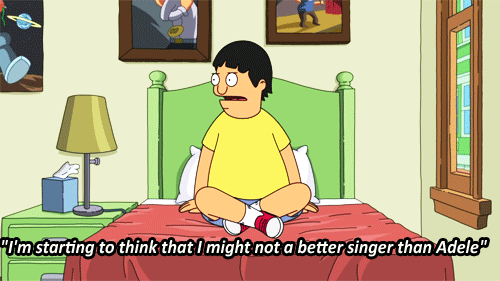
Gene Belcher
Gene is the only member of the family that can regularly get my dad to laugh, and with good reason. If he wasn’t such a well of nonsequitor punchlines, Gene would probably be the worst member of the family, but boy howdy do those random jokes pick up the slack. Gene is genuinely hilarious, even if I’d only rank him above Tina in terms of favoritism. However, I find that most Gene-centric episodes to be lackluster or below average. I think Gene’s best episode is probably Y Tu Ga-Ga Tambien, but of the best episodes, none really come to mind that specifically star Gene. Gene is really better suited for a supporting role, and his times as the star showcase why comic reliefs aren’t the main character. They’re support characters for a reason. That’s not to say Gene-centric episodes are terrible. They just tend to range from about average to bad. Though Y Tu Ga-Ga Tambien is a pretty good one.
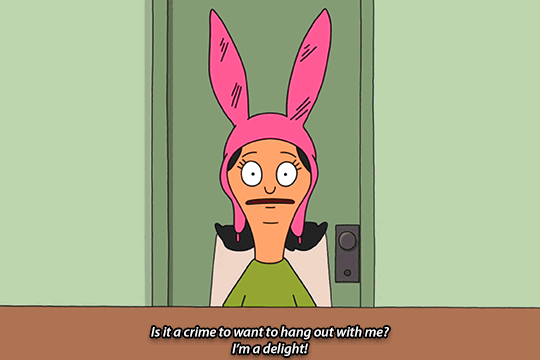
Louise Belcher
Bob and Linda saved the best for last because Louise is the breakout star of the show. Funny, interesting, and the focus of many of the better episodes, Louise stands proudly on the first place podium with Linda in 2nd and Bob taking 3rd place. I think Louise’s strengths are especially due to her standoffish and naughty personality, which has lent itself to a lot of good character growth episodes. Season 10 Louise seems a lot more mature than Season 1 Louise. I think Louise works because while she does often have clever or sneaky solutions to problems, they don’t forget that she’s 9, so unlike Stewie, her age does present hurdles and barriers to her schemes and plans.
The Best and Worst of Bob’s Burgers
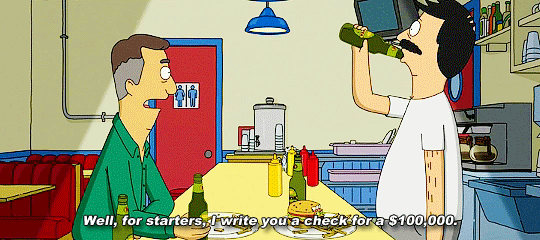
#10 WORST: Pro-Tiki/Con-Tiki (S6e15)
Why couldn’t Warren Fitzgerald just put that $100,000 into advertisements or to help Bob buy better equipment for his restaurant? My biggest issue with this episode isn’t the episode itself, it’s that the ending makes no sense. Warren wants to help Bob because he has a form of riches Warren lacks, and Bob doesn’t want a corporate sponsor to make changes to his brand. But why can’t Warren just give Bob the money to make choices he wants to make? They could stay as business partners, but Bob doesn’t have to sacrifice his personal vision for the restaurant. It’s just really frustrating when they’re both being too stupid and stubborn to see the obvious solution in front of their faces.

#10 BEST: Teen-a Witch (S7e03)
One of Tina’s best episodes, as someone who had a goth phase myself and dabbled a tiny amount in ‘witchcraft’, this episode brings back memories of high school and the desire to make the world what I wanted it to be. But on top of that, Tina with a backbone is when she really shines as a character, mostly because it means her humor isn’t being derived from her being awkward.
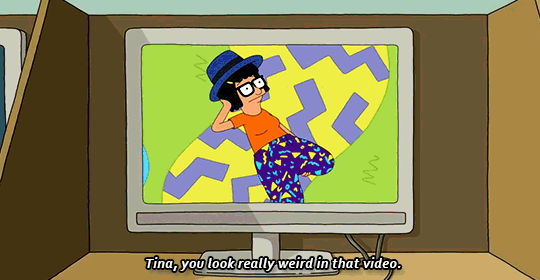
#9 WORST: Live and Let Fly (S9e05)
Mr. Frond embarrasses the kids, and they team up with Up-Skirt Kurt to get revenge against his sister and Mr. Frond. I’m not a fan of Kurt, so I already don’t care much about his feud with his sister, but I also just find the episode kind of boring. I don’t care about Kurt, I don’t care about his feud, and the kids call off their revenge, so that ends up not mattering either. Even Bob and Linda’s side plot is only middle-of-the-road quality for Bob’s Burgers.
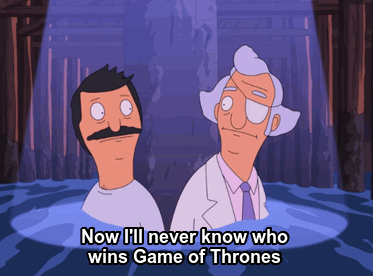
#9 BEST: Wharf Horse/World Wharf II (S4e21-22)
The very first two-part episode Bob’s Burgers ever had, the season 4 finale is a great watching experience. It has some fun songs, funny character exchanges, suspenseful drama, and some heartfelt moments. It feels like a short movie, and that’s a good thing for a two-part episode to do. Even Fanny and Felix are interesting villains. But even after everything Felix did, I don’t find myself loathing him in later episodes, and that’s a hard thing to accomplish.
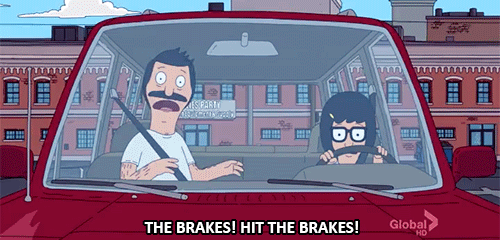
#8 WORST: Tina-Rannosaurus Wrecks (S3e07)
This is the only bad Tina episode where the problem isn’t Tina herself. My biggest issue with this episode is more just the subject matter. Bob lies for insurance reasons about who was driving his car, and the entire episode is just Bob and Tina digging a deeper and deeper hole for themselves. The solution to the issue is clever enough to redeem the episode somewhat, but the majority of the watching experience is just kind of an awkward dance of watching these two getting tangled up in a web of lies.
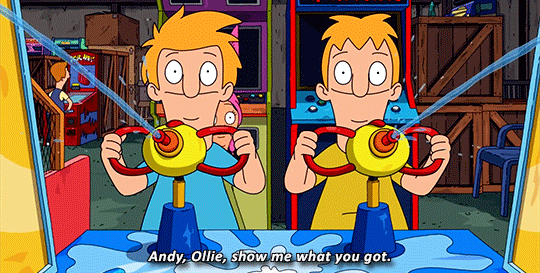
#8 BEST: The Taking of Funtime One Two Three (S9e02)
Bar none, this is the single best ‘Heist’ episode of Bob’s Burgers, and it’s kind of crazy that Bob’s Burgers has actually built a repertoire to where I can make a list of ‘heist’ episodes as an archetype. This one feels the most like an actual heist movie, and the ending is legitimately clever and unexpected. But even more than that, if you’re paying attention, you can see the twist before the characters even reveal it. That is the kind of tight writing that makes the list for best episodes.
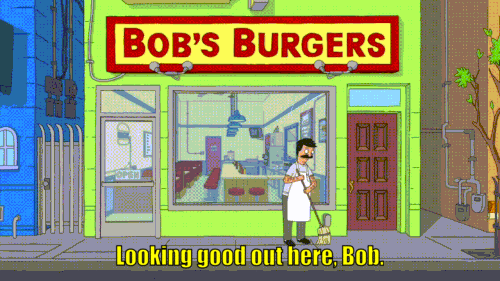
#7 WORST: A Fish Called Tina (S10e12)
Tina spends an episode trying way too hard to make someone like her, to the point that she almost humiliates a 4th grader in public just so she can live out some fantasy. It’s really uncomfortable and sickening to watch Tina do this. This will be a recurring issue with Tina’s low-point episodes. There’s nothing fun about watching a character make a complete idiot out of themselves by coming on too strong. It even makes me groan when Kaylie shows up in another Season 10 episode because I don’t want to have to think about this awful episode.
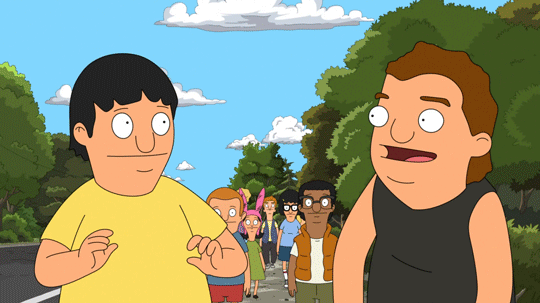
#7 BEST: Stand By Gene (S6e12)
Something about this episode really just brings back memories of my childhood. Memories of walking through the outdoors, just exploring and wanting to find things. The characters are funny, and Bob and Linda’s relationship is put to the test. Plus, I loved that for the entire episode, you don’t know how it’ll end. It really makes this a personal favorite and one of the episodes I knew had to make it on my list.
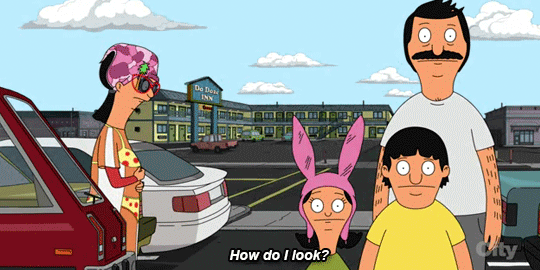
#6 WORST: The Grand Mama-Pest Hotel (S7e13)
Linda ruins things for Tina by being an overbearing annoyance. Are you noticing a trend with Bob’s Burgers’ worst episodes? I don’t like it when good characters make complete jackasses out of themselves in the name of ‘humor’. It’s not funny. It’s annoying and makes me dislike them. Thankfully, the worst of it is only in the latter half of the 2nd act and the entire third act, but Linda’s behavior just makes me cringe and ask why they had to do Linda dirty like this? It just puts me even more squarely on the side that Tina is entirely in the right and I don’t want to deal with Lind either.
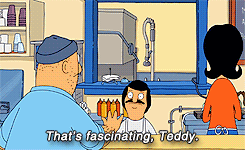
#6 BEST: Broadcast Wagstaff School News (S3e12)
From Tina at her lowest point to Tina at her best, Broadcast Wagstaff School News is my favorite episode of the first 5 seasons. Tina’s funny and engaging, Gene is absolutely shining as Little Bob, and while Louise and Linda play supporting roles in this episode, they’re still funny as well. Plus, the mystery is a good one, and this episode is even referenced in later seasons.
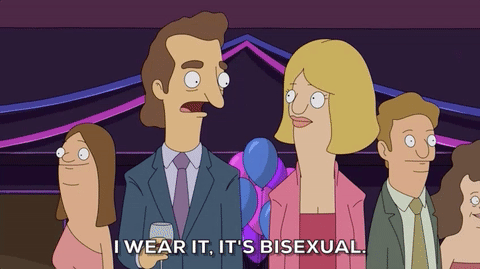
#5 WORST: Mazel-Tina (S4e13)
Tina ruins Tammy’s birthday and steals her party. This is Tina at rock bottom. Tina is so despicable, cruel, and selfish in this episode that it reminds me that behind that creative awkward girl is a selfish brat who doesn’t care if she hurts other people if she can live out her fantasies. If other episodes didn’t rescue Tina from being so unlikable, I probably would hate Tina as a character entirely for her behavior in this episode.
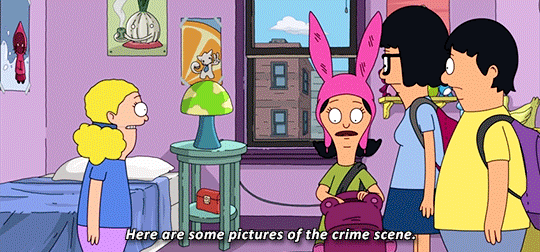
#5 BEST: The Silence of the Louise (S8e02)
Movie parodies are some of the best, and The Silence of the Louise is the queen of all the movie parodies. When Mr. Frond’s therapy dolls are mutilated, and the school staff calls off the waterpark trip until the culprit is caught, Louise teams up with psycho Millie to figure out whodunnit. This is also one of the first time Millie wasn’t strictly an antagonist, and she genuinely felt like someone who could be Louise’s friend someday.
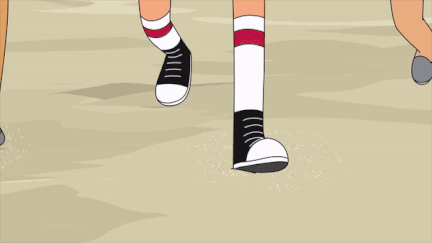
#4 WORST: Boywatch (S8e16)
Tina ruins things for other people by coming on too strong. The only reason this is ranked higher than Mozel-Tina is because in that episode, she just wanted to be at the party, and just kind of ended up as the star of the party and let it go to her head, whereas here, she is actively ruining things for other people in pursuit of her own delusions and fantasies. Tina has no desire to be a junior lifeguard, but cute boys causes her to behave like a troublemaker. She’s entirely out of character, and her teammates’ hate for her behavior is something I agree with. I don’t want to hate the main characters, so why does this show keep pushing to make Tina a nuisance who ruins experiences for other people?
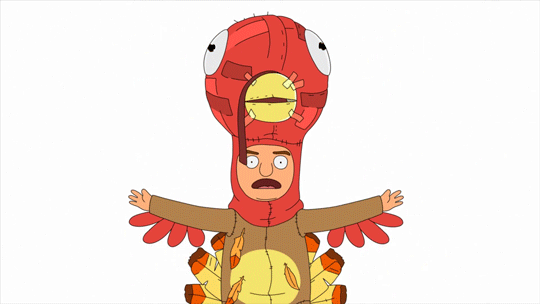
#4 BEST: The Quirkducers (S7e06)
If the Silence of the Louise is the queen of film parodies, then The Quirkducers is the king. Not only is it a clever parody of The Producers, but it also has some damn good musical numbers, especially the edited end credit version. But it’s Tina’s song at the end that stands as one of my favorites of all Bob’s Burgers’ songs.
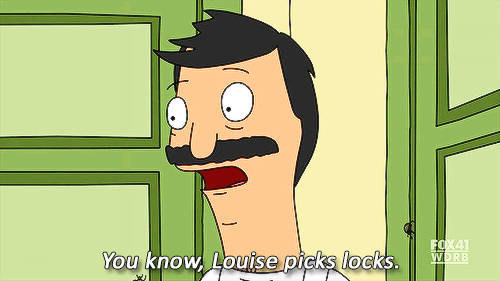
#3 WORST: Bed & Breakfast (S1e07)
If a Fish Called Tina is bad, then Bed & Breakfast is flaming garbage. Linda turns their apartment into a Bed and Breakfast, and Linda goes berserk when the guests don’t play into her expectations. This episode verges from below average to detestable as Linda goes insane and locks people in their rooms, and Louise drives a grown man to attack workers by preying on his fear.

#3 BEST: The Hauntening (S6e03)
This is hands-down the best Halloween episode that Bob’s Burgers ever made. This show turns out some amazing holiday episodes, and this is one of the best the Belchers have to offer. I won’t dare give away anything about this episode. If you’ve seen it, you know why it’s top of the heap, and if you haven’t, then all I can say is what are you waiting for? Delayed gratification has to pay off eventually.
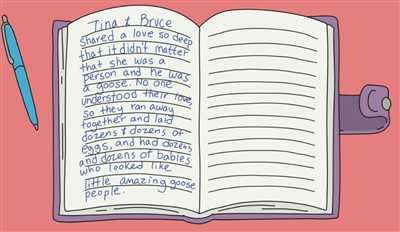
#2 WORST: Every Which Way But Goose (S9e14)
Tina falls in love with a goose. Who smoked crack before writing this episode, and who huffed enough paint thinner to approve this episode for production? This is the absolute dumbest concept for an episode I have ever come across. Who thought this was a good idea? I can’t even pinpoint the flaws because this entire episode is just so flawed. At least Mazel-Tina and Boywatch enrage me. This just baffles me.
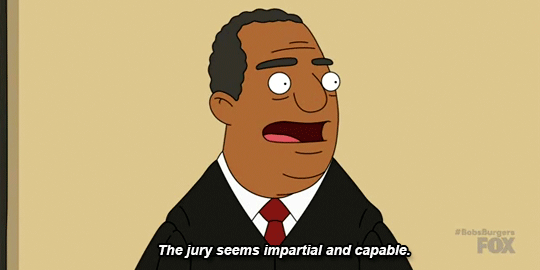
#2 BEST: A Few Gurt Men (S7e11)
When Mr. Ambrose accuses Mr. Frond of stealing his yogurt from the faculty lounge, the case is brought before student court, and Louise is tasked with acting as Defense Council for Mr. Frond. One thing Bob’s Burgers does well is mysteries, and this is a good one as Louise has to figure out a way to prove Frond’s innocence. This is just an absolute personal favorite. Every character is just on point, and I get excited when the episode starts to que up.
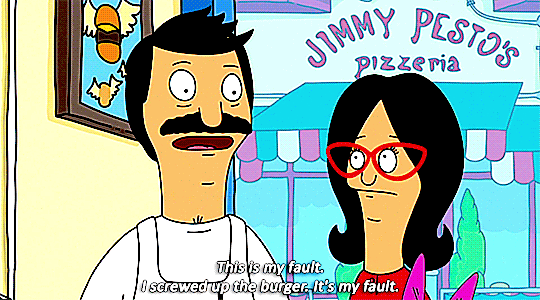
#1 WORST: Moody Foodie (S2e07)
Did you ever want to watch the Belchers commit a felony? Then boy howdy do I have an episode for you! A picky food critic responsible for shutting down restaurants comes to Bob’s Burgers. Bob messes up the order, and a visit to the critic’s house to get him to try his burger again leads to a hostage situation with the critic tied to a chair and gagged in his own home. Words cannot describe the depth to which I hate this episode. The entire episode feels dirty and vile. I feel the need to scrub my skin raw after sitting through this episode. The instant I realize that it’s come on, I skip the the next one. I have literally only sat through this episode once. This episode disgusts me. This episode has the main character, abduct somebody in their own home. Then they take a second hostage when a mailman delivers the guy’s package. Luckily, Bob’s Burgers has a lot of good episodes to make up for this one bad egg, but this episode enrages me to the point that if the family wasn’t so charming and endearing most of the time, I might have stopped watching based just on this one episode.
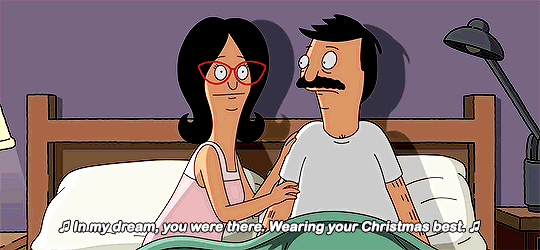
#1 BEST: The Bleakening: Part 1 & 2 (S8e06-07)
The first time I saw these episodes, they played back to back without any credits in between them, and I thought it was one episode, and I didn’t even realize it was the length of two episodes. Between the amazing songs, the brain bending twists, the creative creature, the dark elements that contrast the bright lights of the holidays, and the uplifting ending, this pair of episodes stands paramount as the single greatest viewing experience that Bob’s Burgers has to offer.
Favorite Friend of the Kids: Regular-Sized Rudy
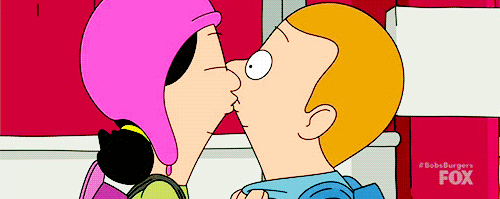
First appearing in Carpe Museum, Rudy came back in The Kids Rob a Train, where he has remained a friend of the kids since. Rudy was the first to join the kids if you don’t count Andy and Ollie who seem to dip in and back out as to whether they’re included in the friend group. Rudy was thus the first to be made a main member of the kids’ friend group.
Favorite Schoolyard Seven: Jocelyn
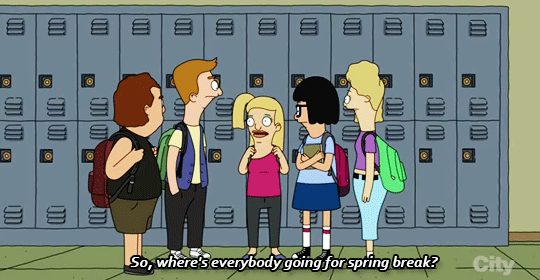
The Schoolyard Seven is the friend group of the three Belchers, Jimmy Jr., Zeke, Tammy, and Jocelyn. Not counting the Belchers, it was a close call between Zeke and Jocelyn. Tammy and Jimmy Jr. tend to be typecast as serving one niche thing, but Zeke and Jocelyn are often the comedic gold. However, while Zeke is more interesting of the two, I just enjoy Jocelyn too much to not give her the win. Even if Jocelyn’s humor is just a walking dumb blonde trope, like Gene, Jocelyn has a knack for funny one-liners. If the groups has another name, I’m not privy to it.
Favorite Friend of the Family: Micky
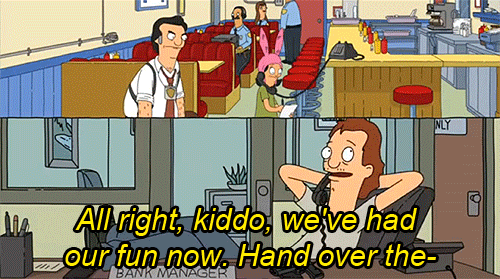
Though he’s less connected to the family now, Micky has been a friend to the Belchers since Bob Day Afternoon, and returning in Bob Fires the Kids. Since his introduction, Micky has gotten a job at Wonder Wharf, where he has remained since.
Favorite Recurring Villain: Logan Bush
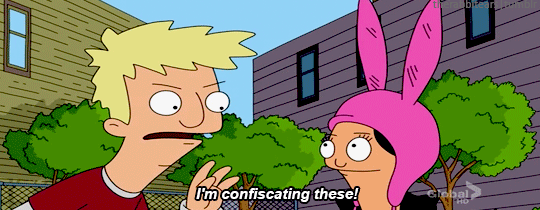
First appearing in Ears-y Rider, Logan has been a fun and interesting frenemy for Louise to match wits with. In a show where most other villains are the same age as the main characters (Millie, Tammy, Chloe, Jimmy Pesto, Hugo) Logan stands out as a legitimate bully. Yet, even he was willing to work with Louise in Mother-Daughter Laser Razor, showing that there is wiggle room for the two of them to even join forces and spread havoc together.
Favorite Tina Love Interest: Duncan
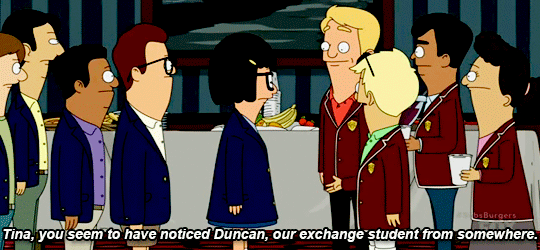
Earnest if not a little awkward, Duncan seems like a sweet boy for Tina to possibly end up with. Sasha Whiteman is another character I could easily see being a good boyfriend to Tina because his quick wit and social graces make him a great foil to Tina, and he excels where Tina falls short. Zeke has a good chance to be a good boyfriend, but Tina still spits his name when she greets him, so I doubt she’d take interest in him unless something happens to change their dynamic. I liked Josh, but now that he’s said he doesn’t like her anymore and she agreed that she feels the same, I doubt we’re going to see them date further in the future.
Favorite Side Character: Nat Kinkle the Limo Driver
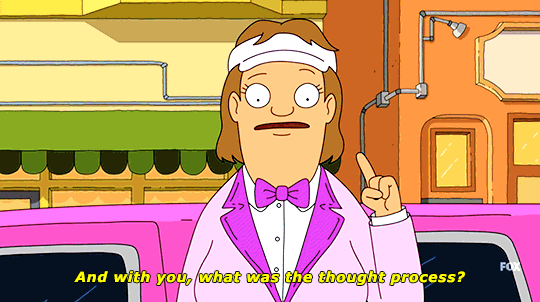
First appearing in Season 8 episode 8 V for Valentine-detta, I must not be the only fan of Nat’s because she made two appearances in the 10th season, in episode 1 The Ring (But Not Scary) and episode 17 Just the Trip. Currently with only 3 appearances, she’s still only a side character, but I get the feeling that like with Rudy, Courtney, Darrel and Alex before her, Nat will keep becoming a more frequent character. She just has a great vibe, and her charisma is intoxicating. She meshes great with the family, making her an absolute delight to watch.
Favorite Bit Character: Marshmallow
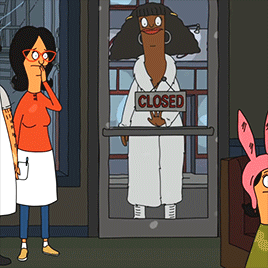
Although she’s appeared in multiple episodes since her introduction in Sheesh, Cab Bob, Marshmallow has never gotten much more than a couple lines, with her biggest role being in The Bleakening where she had more to say. She was also the first major LGBT+ recurring character on the show, which also made her a joy to see, whenever she returned to Bob’s Burgers.
Favorite Headcanon: Gene is Genderfluid
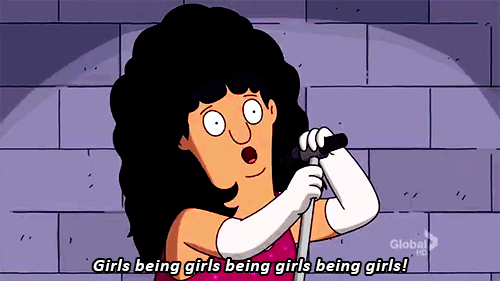
Gene’s jokes have been centered on his gender or sexuality since the first season finale. A joke once in a while is one thing, but ten years of the same sorts of jokes tells the sharp viewer that there’s more to it than just a running gag. With how many jokes have Gene talk about having boobs, synching his cycle, or calling himself Tina and Louise’s sister or Bob and Linda’s daughter, it’s my opinion that Gene is genderfluid, or possibly even transgender. The only reason I say genderfluid over a transgirl is because he still also addresses himself as a boy or a man as much as he does girl jokes.
Best Song: Twinkly Lights (Ms. XXX-Mas)
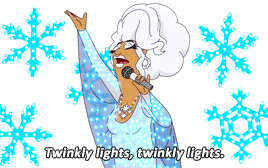
Not only does Toddrick Hall absolutely kill this performance, but I also love the meaning of the song about POC inclusivity and pride in the LGBT+ community. As the final song in The Bleakening, it’s one hell of a closing number, and I can’t help but dance in my seat whenever it plays. I’ve even listened to it independent from watching the show, and honor I don’t bestow on every song.
Best Episode Archetypes:
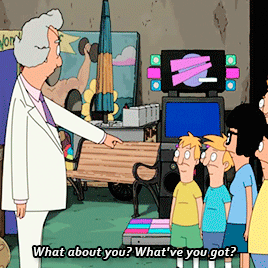
The Best Heist: The Taking of Funtime One Two Three
The Belcher kids have stolen a number of things. Chocolate, a bounce house, but the absolute creme de la creme of their heists is the procuring of the Dunebuggy from Family Funtime. When Family Funtime unplugs the macchines whenver the kids get too many tickets from them, the kids decide to pull off the heist of a century to make off with the biggest prize of the arcade: the dune buggy.
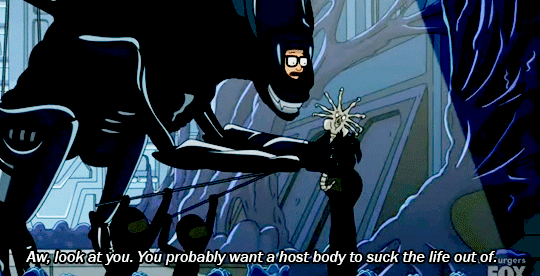
The Kids Tell An Anthology: Moms, Lies, and Videotapes
From the Gayle Tales to The Handyman Can, the kids have told a number of anthology stories, but the most impressive of the bunch is their stories of the mother’s day plays into three interesting stories. Though true to form, Gene’s is the weakest of the three, as his usually are. I don’t recall any time when his anthology was the best of the kids’, but then, Gene is not the most creative of the three children. His best story is probably in The Frond Files where his story’s world is colorful and fun to observe.
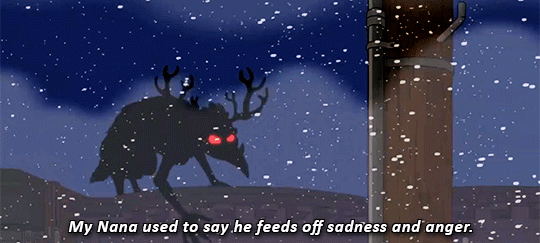
Best Musical Episode: The Bleakening
Not only do these episodes have a lot of musical numbers, but there is not a single one that doesn’t hit a home run. But more importantly, the entire episode is a musical, with each number helping to tie and bridge together the narrative, which is the entire purpose of musical numbers in a proper musical, which makes this the single best musical episode mainly because it’s the only episode that’s a true blue musical.
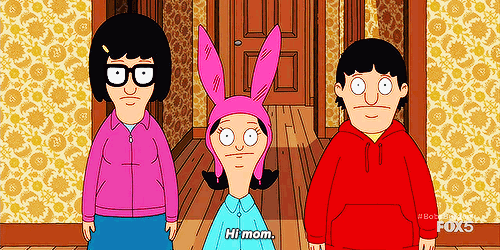
Best Holiday Episode: The Hauntening
With The Bleakening already taking the top spot for musical episodes, that leaves the Miss Congeniality of the holiday episodes to take the crown. I didn’t spoil anything about this episode above, and I won’t say a thing about it now. This episode is solid gold.
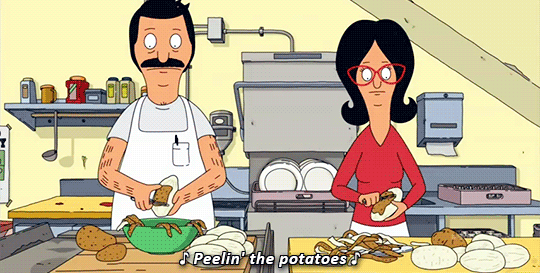
Best Film Parody: The Quirkducers
Not only is this episode clever in the way it uses its source material, but the family all have moments to shine despite the stars being Louise and Gene. The show also makes good use of the Schoolhouse Seven (the main group of the Belcher Kids, Jimmy and Zeke, and Tammy and Jocelyn), and each of them brings something great to the episode. It undoubtedly earned its place in the top 10, and will likely hold its place for years to come.
#bobs burgers#Bob's Burgers#belchers#the belchers#bob belcher#Linda Belcher#gene belcher#tina belcher#louise belcher#seymores bay
129 notes
·
View notes
Text
Day 19 Bonus: Buster Bros!!! vs Dotsutaire Honpo

I’m gonna start with the music this time because just writing like one of the story/character bit...was taking a while. So in terms of music...I have to give it over to the Buster Bros. With their individual albums, it just got so much better for the Buster Bros as they’re becoming more distinct with their personality in their sound. Like Break the Wall is one of my top solos and y’all just unfortunate that Saburo used like one of the classical pieces I thought fucking slapped even before he messed with it. And I’m so happy for them.
DH has a bit of a disadvantage of being a new group and thus having less to compare. But so far....eh. I think DH is very hit or miss for me. Like Matenrou, they have such differing talents and subject matters that it either turns into a strange symphony or some mishmash that just makes it eh. Which is generally my feeling with their group songs as I really love Ah, Osaka Dreaming Night but I am not impressed with Wara Osaka. And I am okay with their solo songs but to be fair to them, a lot of the songs I prefer for the already established group was their second solo, not the first, which is their introductory ones.
As for Joy for Struggle, yeah, Buster Bros took that for me. DH I get is supposed to be more carefree than a lot of the other teams that are a bit more serious but I think that attitude really bit them in the ass for this battle. And BB did not have time to be playing around. I thought Saburo had more confidence this time and let that truly nasty attitude leave some spikes behind. Saburo really was like ‘How many times we gotta teach you this lesson, old man?!’ Jiro actually had some good retorts! I’m so sorry, I love him I swear but he had so much to grow in terms of coming with bite and it’s starting to show! The chihuahua vs tiger comparison! And while I do appreciate that Rosho and Sasara stay true in their manzai act...it really just didn’t land for me in the battle and Jiro and Saburo were quick to gnaw at it.
And then...there’s the verse against Ichiro. I won’t say they stick with me as well as War War War but quite frankly Ichiro vs Sasara and later Rei are more of a battle of ideals. And to me, Ichiro poured more into his than those two. Because Rei’s were just belittling the boys because they’re younger and like they went down some wrong path. Both Saburo and Ichiro weren’t having any of that. Like who the fuck are you to step in and tell us off? At least MTC were more of like ‘come back when you’re more polished.’ And with Sasara, I think Ichiro delivered the line that is my entire thing with this battle: ‘Floaty words like that won’t sting us at all.’ I feel like DH lacked enough bite against BB and it shows. The only real bite back is from Rei and even he doesn’t seem to have that much that actually phased BB in my opinion.
In terms of story/character wise...it’s really hard to make a decision. Because for all the teams, it’s really a matter of the dynamics against the others. And DH have it so stacked for them just because of Rei. Sure, I may not like him but he is very interesting in terms of being a vehicle for developments to happen. He seems to know a lot of things and people so he becomes such a presence that could tempt so many things into happening. Like if it was DH vs FP, he knows the fuck about Ramuda! He fucking made him! And I have little doubt it was him on the phone with Ramuda in Catch Us If You Can drama track. And at the end of the previous DRB...at least what sticks out in my mind and I may have to double check but I think he mentioned some interest in Ramuda after telling about how the true hypnosis mic being used would’ve shot Chuuoku in the foot. Also added to that, Rei likely knows Gentaro. For what reason? We don’t quite know but it can be assumed it’s because he’s doing something for Gentaro. Either looking into Ramuda since the ‘legal’ way wasn’t reaping anything or if Gentaro is hiding something, then Rei might be helping him hide it. Also also, Rei is one of the few rappers that know who Dice is! He and Otome were talking about their kids! That’s HUGE since Dice hasn’t told anyone about this aspect of his life. Rei alone would make such a juggernaut for FP.
I honestly can’t think of anything for DH vs BAT, sorry. They don’t seem to have any history besides Kuko and Sasara both being in MCD for a time...but I don’t recall that time really being elaborated on soooooo yeah.
If it were DH vs MTC, that’s more of a dynamic between Sasara and Samatoki. Which I think would be the time to figure things out between them. Because Samatoki was left with why and never got an answer. And seeing him again, Sasara can’t run away. He can try but pretty sure that Samatoki could outrun him. It also would be a time of like Sasara’s dynamic between the two men that have been his partners, Samatoki and Rosho. The people that were close to Sasara and whom he feels the most towards. I honestly can’t think of much else besides that but I’m sure KR will find a way to have the guys piss each other off. I’m just here for SamaSasa and SasaRo shenanigans. (I guess we could see if Rio does know Rei since in theory he SHOULD know who he is since it sounds like the hypmic was in development when Rio was serving and he tested some aspect of it).
I think DH vs MTR would be kinda funny. Like for some reason I think that Sasara and Rosho would get really fucking mad at how Hifumi and Doppo just naturally have that manzai energy by virtue of being best friends and roommates. I have personal experience of people being like ‘this IS a show’ of just watching and listening to me and my best friend and roommate just going back and forth. I feel like it’d just be so damn funny if it was over something not as serious I guess? But then that’d all be ruined because I feel like Rei would either expose to Hifumi and Doppo of Jakurai’s cooperation with Chuuoku, which while they don’t have any personal reason to really hate Chuuoku, wouldn’t feel comfortable with it either. Or. OR, my god, let him expose Jakurai’s assassin past, something he seems to feel nothing but shame for and also ruining his perfect image. Because Rei just seems like he’d be willing to do that.
So yeah, a lot of drama that could happen because of frickin’ Rei and some loose ends to deal with from Sasara. By comparison, BB has some things but they wouldn’t be as dire as DH’s. Like with BB vs BAT, this could be the chance for Ichiro to get his answers from Kuko. He never got an answer either. He was left with heartbreak and never given the why. And Kuko either has rationalized or will be in for a rude awakening having to go head on with Ichiro. Because they were close. Kuko had to care about Ichiro in some capacity to willingly help some group he knew was sketch and didn’t like. Why did that change? He had to have meditated on this at some point! Meanwhile, I really hope that Jiro and Jyushi and Kuko can get along if the reconciliation with Ichiro doesn’t happen! They’d be such an eclectic group but would be so much trouble too! (And please let Jiro and Jyushi play together. Ever since someone wrote about it, it lives in my head rent free) I really am hoping for it. All the while, Hitoya is like ‘shit, now I gotta adopt MORE kids. Why are there so many of these little shits running around without supervision???’
I can’t think of much for BB vs FP since I just don’t see their circles running that close and it just didn’t feel like Ichiro was close to Ramuda even back with TDD. Most I can think of is Jiro, who is also pretty thoughtless, saying the wrong thing to Gentaro and it’s The Rivalry 2.0. But overall can’t think of anything too specific.
It’d hurt me if it was BB vs MTR. Because for some reason I see that most of MTR treat the BB like their little siblings and in Jakurai’s case, it’s like going to go fight his kids (I will go down on the hill of occasional dadkurai shenanigans!). And while Saburo and Jiro have and still do make fun of Doppo, I think he also has their respect because he looks out for them in a different way but still same energy as Ichiro does. Probably because he is an older brother. I don’t really think any of the guys can say anything to bother Hifumi and it’s more of Hifumi being fucking thoughtless and saying the wrong thing. I feel like he’d piss off Saburo somehow. And with Jakurai and Ichiro...it’s a ‘nothing personal, just business’ although I think Jakurai would be proud of Ichiro either way.
And then there’s just rematch energy if it’s BB vs MTC. Honestly? The real thing I would love to see from if this happened is for Jiro and Saburo to have a reevaluation of MTC. Because the main reason they were so aggressive and hostile towards them is because of Ichiro’s grudge with Samatoki. They just took it as ‘if they’re Ichi-nii’s enemy, they’re our enemy.’ But since they’re taking this step of coming on their own, they also need to think about if they can still dislike these guys because Ichiro’s beef isn’t theirs. I mean, Jiro probably still doesn’t like Jyuto because he’s a delinquent and fuck cops y’know sorta rebelliousness. And I don’t think Saburo particularly dislikes Rio and vice versa. The thing with Ichiro and Samatoki is honestly secondary to this. And I feel would be the time for Samatoki to let go since he KNOWS now that it wasn’t Ichiro that got Nemu to leave but Ramuda but it’s a matter of if his pride would allow him. And Ichiro would have to realize that while he lost their fight...he won in the end since he’s the one that kept his brothers while Samatoki lost Nemu. He’s gotta feel for him and understand why Samatoki was/is mad at him. (Also long shot but if they could talk about how Samatoki also exacerbated his hesitance to trust others, that’d be greeeeaaattttt).
So yeah, I’ve thought about how these dynamics and things and you’d think weighing them all would make this choice easy. And it is. In a way. Because for me, I’d choose Buster Bros. I do like Sasara a lot and Rosho I think is fine but their third really sours for me. I know some can keep that bias aside and look, I did talk about what all he can do...but he alone can’t carry the sound for the team. Story, sure, but not the music. While I really would like some of the threads that Rei brings...it’s not completely impossible for him to still be around if any of the other teams do advance. I mean, they’re all the only men stuck in Chuuoku for the time of the DRB and having to pass each other while going to their own rooms or box seating. He has ways. So yeah, if I had voted on DH vs BB, this is what I would’ve gone with.
#30 days of hypmic challenge#buster bros#dotsuitare hompo#Ichiro Yamada#jiro yamada#saburo yamada#sasara nurude#rosho tsutsujimori#rei amayado
15 notes
·
View notes
Text
Conflict and Consequence || closed with murder-popsicle
@murder-popsicle
Vision suddenly flinched, and the mind stone’s energy and glow flared sharply. Moving to sit more forward, he winced in pain and lifted his hand to touch his fingertips to the stone. He didn’t know how he knew, but it flooded his mind as clearly as he knew the headache he was feeling was not entirely his alone. Wherever Wanda is, she is in pain.
To say that he remained composed would have been a lie. Vision’s fists clenched and his lips formed a snarl. Rising from the chair, he sought out the man who had been reassuring him for days and days now that no harm would come to Wanda or any of the others arrested in that airport in Germany the day the Avengers turned on each other. The synthezoid found him predictably at the bar, still visibly bruised from his fight with Steve and Bucky, but that would garner no sympathy from Vision. Not anymore.
"Stark," Vision said loudly, approaching him.
"Hey, Junior!" Tony said condescendingly, pouring himself a drink.
"Where is she?" Vision asked, getting right to the point. "Where is Wanda? Where are the others?"
"Don't worry about it," Tony said dismissively, taking a sip.
"My worry festered into sharp and pointed concern and discontent ages ago. Answer the question,” Vision said with careful focus.
"I don't know," he said, shrugging and laying his hands on the bar.
"Do not test my patience,” Vision insisted.
"Are you... Did you just threaten me?" Tony asked, recoiling a bit in disbelief.
"I am indicating to you how serious I am, so that there will be no misunderstanding. No more lies,” Vision clarified.
"I'm sorry, when... did I ever lie to you?" Tony asked.
"You said she would not be harmed,” Vision replied.
"Look," Tony said with a sigh, "I didn't know any of this was going to happen, okay? And frankly, I don't like it any more than you do. But it’s out of our hands now."
"I have been inquiring for days, and you have been lying to me," Vision pressed, his even tone sounding rather ominous.
"Again, when... exactly... did I lie to you?"
"I felt her pain. Just now. Whether it is the mind stone's connection to her or her own magic reaching out to me, I do not know, but.. she is suffering. Now... what has been done to her? No lies."
"She's dangerous, Vision. Okay? They needed to ensure she wouldn't be able to hurt herself or anyone else,” Tony admitted.
"Tell me!" Vision said, raising his voice in a rare display of both concern and annoyance. His usually serene eyes showed a brief but explosive burst of golden-electric energy emanating out from their center pupils.
Tony heard the anger in Vision’s tone and it gave him pause. This had been enough to cause even the mild-mannered synthezoid to become emotionally effected. There was no way around this. He wasn’t going to let up and Tony knew he was stuck. "They had to make sure she couldn't use her abilities, so... they restrained her with... a straightjacket-like... brace... and a high-frequency-emitting collar... and... tranqs." He mumbled the last word, hoping to slip it by unnoticed.
"Tranqs," Vision repeated, focusing the most on that.
"Yes," Tony confirmed with a nod.
"Tranquilizers," Vision said, just for absolute clarification purposes.
"Yes," Tony repeated with the exact same nod.
"Where is she? Where are the others?" he asked angrily.
"I don't know. I don’t. That wasn't a lie. Steve busted everyone out days ago and they’re gone. They went off the grid. If they don't wanna be found, they won't be. Best to just leave it alone," Tony said, wishing the synthezoid would just drop it.
"Busted... everyone out... from where?" Vision asked carefully, his eyes narrowing.
Tony sighed again and slumped against the bar a little as he answered, knowing Vision wouldn't let it go. "The Raft. It's a maximum security prison off the New York coast meant for those... in need of... special accommodations." That was the nicest way he could have put that. Not that his careful wording did anything to keep the synthezoid from reacting negatively to it.
"After all that Wanda has been through at the hands of Hydra and the distrust it has sown in her, you authorized her to be drugged and forcibly restrained without legal counsel or fair trial in a maximum security facility?" Vision said bluntly.
"Come on, no I didn't,” Tony said, his guilt starting to get to him. “You think I was consulted on this? You think I did this?"
"Yes. I do," Vision said almost sadly. “I do now.”
"Well, I wasn't. I didn’t. You think I wanted them to send that poor traumatized kid to a heartless, sterile place guarded by specially-trained tactical military meant for psychopaths and serial killers?!" He stared for a moment, an oops expression coming over his face instantly. "Probably should’na said all that..."
Vision turned and walked away. He had heard enough.
"Where’re you goin'?" Tony called after him.
"To locate Wanda," he said with solid determination, stopping and turning so he could be sure to make eye contact. "And when I locate her, I will not be informing you of her location." With that he turned again and left.
Tony waited until he was out of earshot, taking a big gulp of his drink. "That's what trackers are for, Junior," he muttered under his breath. He was so confident in that, that he didn’t even jump up right away to try to track Vision the moment he left the compound. That would prove to be a mistake...
Once outside the facility, Vision disabled his internal trackers, already one step ahead of Tony. He needed time and privacy to form his own opinions, and he was not going to get that being tailed by the tech giant. He had trusted Tony to give him truthful and up-to-date information and he had been deceived. That stung Vision, if he was being honest with himself, especially since Wanda’s well-being had obviously been affected by decisions made without the rest of the team being consulted. This was not what had been outlined in the Accords, not what was right or just or even legal, not what Secretary Ross or Tony Stark had promised him would happen. Vision was angry, sad, worried, confused, and betrayed enough to want to be on his own right now. He would seek out the truth on his own and see it with his own eyes instead of trust an obviously unreliable filter of other human minds to do so for him.
For some time now, Vision had been working idly on changing his appearance for the purpose of camouflaging himself when out on missions. Realizing that this was now something of the utmost urgency and importance that he would need if he was going to go after Wanda, he worked even harder at it. If she and the others had gone off the grid as Tony stated, then they would not appreciate Vision’s conspicuous and highly recognizable self showing up at their doorstep, wherever they might be. Thus he took some time to perfect this shift in appearance as best he could, much in the same way he changed his density to either phase through walls or harden himself against attack. To accomplish that, he changed the arrangement of the atoms in his organic cells and their vibranium sheathes to achieve a more dense or more diffuse effect. The concept for his human disguise was similar and yet even more elaborate than that...
Vision not only altered the density of the atoms in the outer layers of his body, he also increased the ratio of organic tissue to vibranium, giving the outer layers the look and feel of either cloth or flesh. By altering the instance of other trace elements in his tissue he was able to alter color. So the flesh would look and feel like flesh, the sweater like a sweater, etc. Well, he had already mastered clothing in that regard. He didn’t wear real clothing, it was all part of his body, made in the image and feel of real human clothing. He now made human skin and hair in the same manner. The atoms that presented themselves first to the human eye or held up to the scrutiny of touch were a smokescreen for the rest of his body, hiding his true appearance. That combined with an imaging overlay of his entire body, a neuroelectronic grid of chameleon-like cells activated by power drawn from the mind stone, he was able to achieve a very realistic illusory and sensory effect.
Now... what he chose to look like had a lot to do with personal preference. His natural skin was dark colored, so for something different he chose a pale skin tone. For eye color, he chose the rarest among humans, blue. Perhaps that would help him keep some of his uniqueness, he reasoned. He didn’t have any hair naturally, so he chose to give himself some, and he liked the way blonde hair looked with blue eyes and pale skin. The result was something that looked decidedly human, but very far from his own natural appearance.
Once he was satisfied that he could move about in public and pass well enough for a human being, Vision searched for Wanda. It took him almost a day’s worth of flying, but he let the mind stone draw him to where Wanda’s energy was lingering. It was the same sort of gentle pull towards her that he felt that day in Sokovia, when she’d made the decision to die with her brother and Vision intervened. He didn’t know what emotional state he would find Wanda in this time, but as he honed in on an apartment building in Scotland, he was sure that she was there. Rather than just phase through the wall and look for himself, causing a stir and potentially alarming those inside who might at first misunderstand why he was here, Vision pressed the call button near the door. The voice that came through was a familiar one, saying that they were uninterested in anything anyone was selling and did not want visitors...
“Captain Rogers,” Vision said simply, calmly. Respectfully, too, since he imagined Steve was no longer captain of anything at this point, and yet Vision still honored his former title. “May I please have a word?” Only that, and then he backed up a few paces from the door and patiently waited. He wasn’t sure what to expect, but he knew Steve would recognize his voice, since he had been the first to comment on it immediately following Vision’s birth. He hoped for a peaceful encounter, and truly he was not there to hurt anyone, but he imagined that tensions and fears might cause some of those who might be inside the building to resent that he was there. Nevertheless, Vision assumed the best until the worst presented itself...
#murder-popsicle#vision rp#guest muse: tony stark#{feel free to bypass Steve or do whatever you want}#{i just figured he'd be the one to answer first heh}
56 notes
·
View notes
Text
a monster & his soulmate | s . tendo ( haikyuu ) -- 1

pairing : satori tendo x gn ! reader
genre : fluff , kinda angsty
taglist : no one yet !! but comment to be tagged <3
notes : ughhgahwa this was so cute to write !! i love this mans so much & i was entertaining the idea of making this a series while writing this & u know what . i finna . i rlly finna .
MASTERLIST

Satori had loathed the concept of soulmates.
It wasn’t the idea that he was tied to a single person since birth, not the fact that he couldn’t choose, else society would frown upon him, no, he was sure that he’d love whoever his soulmate was. In contrary, he was the problem. A weirdo, a scary monster; he didn’t want to meet his soulmate, couldn’t bear to hear what they’d think of him. Unfortunately for him, just as the little words etched into his abdomen, soulmates were fated, he couldn’t avoid his no matter how much he tried.
It happened in the gym, back in elementary school. He stood there, eyes cast downwards, tiny hands balled into equally tiny fists as a few of the kids from the volleyball club continued to talk him down. The mean names were nothing unusual and he wished he could say that he was used to them, but it took all of his self-control to keep himself from bursting into tears.
“Stop trying to get into the volleyball club, freak.”
“Yeah, no one wants you here! You’re a monster.”
And the more they said, the more he felt his heart sink. He was glad, at least, that his face could remain so stoic, still, he wanted to scurry away right about now. His heart suddenly leapt, though, at the sound of another pair of footsteps approaching. Nose scrunched in preparation for even more berating and finally, the new addition to the group began to speak.
“Hey, hey, stop it! I didn’t know my big brother was such a meanie, it’s so low to make fun of someone!” The person spoke, tugging one of Satori’s bullies by the hand. “Mom is here to pick you up anyways, let’s go!”
Satori’s eyes twinkled at the sight of you defending him. Anyone sticking up for him was rare in general, it was strange to see someone so cute pushing his bullies away. As soon as they started walking off, you turned to him, a bright smile on your face and a faint blush dusting your plump cheeks.
“Don’t listen to those idiots, I don’t think you resemble a monster at all!”
An ache was all he could feel at the moment, not just on his abdomen, but in his little heart as well. His mouth opened, as if he was ready to speak, hands absentmindedly moving to grip his shirt, right over the mark, but before he could do anything, say anything, his feet were already carrying him out of the gym at an immense speed.
He cried that night, much to his poor mother’s surprise. And after that, he never saw you again.
“Go, go, Karasuno! Push it, push it, Karasuno!”
Shiratorizawa hadn’t expected Karasuno to be so good, neither did they expect the 5th set to be so stressful, as all of them really thought it’d be a clear win. Satori, of course, shared that sentiment with his team, but he was more surprised at the overwhelming amount of cheering that came from Karasuno’s side of the bleachers. The Flightless Crows having so many people cheering them on? Even stranger than that annoying middle blocker. He didn’t see the point in staring at who was in the opposing team’s bleachers, but frankly, he was quite bored sitting out during the action, so he let his eyes trail.
To say he nearly collapsed at the sight of you, that same lopsided grin on your face and bright orange pom poms in hand, would be an understatement.
He wasn’t entirely sure how he managed to recognize you, perhaps it was his soulmate sense, but he knew he wasn’t mistaken. The only pair of eyes that looked at him with such kindness back in elementary school, even if for a brief moment; he’d be a fool to not recognize them. It was odd to see his soulmate as a cheerleader for the opposing volleyball team, but he couldn’t deny that the colors looked nice on you. Besides, he had no rights to feel jealous, he had never even spoken to you. That didn’t stop him from feeling a little bit envious of Karasuno though, snatching up his soulmate just like that.
For as bummed as he was that their team lost in the end, he wasn’t surprised, they had you as their cheerleader, after all.
Lining up and, later, hearing Karasuno was going to advance to Nationals was excruciating, but it was somehow worse to see you right over there. Hardly being able to keep his eyes off of you, he kept on entertaining the thought of catching up to you later, saying something, just so you’d know he was your soulmate.
I can’t, he thought to himself, they’ll hate me.
And before he knew it, the bleachers were empty and he and Wakatoshi were already cleaning up. He could see the two Karasuno managers cleaning up as well, which meant you might’ve still been somewhere around here. Useless thoughts, not like he was going to do anything. Unfortunately, he hadn’t noticed Wakatoshi’s analytical gaze following each and every one of his movements.
“You look like you’re in thought.” Satori was snapped out of his daze by the deep voice of his friend. “Are you out of it because we lost?”
“Hmm?” Wide eyes blinked, surprised at the sudden concern. “Yes, obviously! Didn’t it take you by total surprise?
Wakatoshi nodded and the conversation was over, but Satori couldn’t hide just how antsy he felt knowing that he was about to lose his other chance. God, he hated talking about these serious things, especially with the team captain, who was the voice of reason most of the time. He knew what the other would think of this, but…
“I know who my soulmate is-”
“Talk to them.” Wakatoshi wasted no time, shutting down Satori before he could even elaborate. “Don’t you want to?”
“Mm, you’re no fun!” Satori exclaimed, throwing one of the towels that sat on the bench at Wakatoshi. “What if they think I look weird, you know?”
“They don’t, have you seen your mark?” The captain’s eyes trailed to Satori’s abdomen and although it was covered, he knew what lied underneath his volleyball shirt. “Besides, it’s a little selfish to keep your soulmate from knowing who theirs is.”
“Huuh, I hate how much sense you make sometimes, Wakatoshi!” With a whine, Satori turned back to the two Karasuno managers who looked like they were about to leave. “Alright, but I’m only doing it so you wouldn’t nag me later!”
With that, Satori left his poor teammate to clean up for himself, all the while he mentally prepared to face Karasuno’s managers just so he could ask them where you were. For a moment, he thought about his teammate’s soulmate mark, a mark that simply said ‘excuse me, can you pass me the baking soda from the top shelf there?’. It’ll probably come easy for him, meeting his soulmate in a seemingly mundane situation and being a looker to boot, whereas the only interaction Satori had with you was him running away from you the second he realized you’re his soulmate, he’ll consider himself lucky if you still thought the same thing.
“Heey~!” The redhead yelled, perhaps a little too obnoxiously, as his hand moved to grab the shoulder of one of the Karasuno’s managers. “Can I talk to you for a second?”
The girl unfortunate enough to be the one Satori directed his attention to jumped at the sudden contact, then yelped ever-so-slightly after glancing to see who it was. The other one didn’t seem phased at all, on the other hand, walking up to the two, taking Satori’s hand and removing it from her blonde friend’s shoulder.
“We’re not interested.”
“Ah, no, I’m not interested in you either!” The redhead grinned, hands making their way to his own hips. “Can you show me where the pretty Karasuno cheerleader is? They’re my soulmate, I wanna see ‘em~”
That exact second Kiyoko noticed how much Hitoka’s face shifted at the mention of soulmates, from scared to excited, even. She now stared at Satori with wide eyes, eventually looking over at her fellow manager, as if searching for her blessing to play Cupid. Kiyoko, fully sensing Hitoka’s excitement, only smiled.
“You can go, I’ll finish up here.”
Getting the clear, Hitoka wasted no time in grabbing Satori’s hand and beginning to tug him along out of the gym, surprising him this time. Obviously her mood shifted so much, she was a hopeless romantic, the idea of soulmates excited her way too much, even if the situation didn’t concern her. She scanned the halls filled with people for the familiar faces of Karasuno with upmost care and attention, all so she could point Satori to you.
“What does your mark say?” Hitoka suddenly exclaimed, but wound up covering her mouth with her free hand seconds later. “I- I mean, if you don’t m-mind me asking!”
“Don’t worry, don’t worry!” He smiled, though it didn’t look as enthusiastic as he wished it would. “Don’t listen to those idiots, I don’t think you resemble a monster at all; that’s what it says.”
In an overdramatic fashion, the girl’s eyes filled with tears. “A- Ah, that’s so cute! What does l/n-senpai’s say?”
“I wish I knew!” Satori said, a small groan promptly leaving his mouth. He was playing it up a little bit, but it’d be a lie to say he wasn’t feeling the frustration. “I ran away when they said that. How stupid, right?”
“What? Why’d you do that?!”
He shrugged and opened his mouth to speak, but got interrupted by his chest hitting Hitoka’s back, seeing as she had stopped running. He followed her gaze and wound up seeing you, the same pom poms in hand as you spoke with the 3rd years of Karasuno, a wide grin on your face. He felt his throat close up.
“I’m a bit nervous now.” Hitoka whispered, but he couldn’t hear. He thought he was going to die.
He supposed it was admirable how much just the sight of you made him seize up and want to run away. The famous Guess Monster of Shiratorizawa weak at the knees after seeing the face of his soulmate whom he hasn’t even talked to before; he really hated it. Did all people feel like this? Did all people feel fear while looking at their soulmate? No, he was supposed to feel butterflies in his belly, so why couldn’t he-
“l/n-senpai!” Satori’s startled daze got cut short by Hitoka yelling out to you. His grin never got wiped from his face, but if one looked close enough, they could see that it was wavering just slightly.
You turned, looked at Hitoka, then at him, with a smile much more genuine than what was on his face. He saw the brief confusion in your eyes at the sight of him, noticed your brows furrowing for a second. How could he not? Not only was he naturally analytical, despite the growing fear in his heart, he still couldn’t take his eyes off your face.
“Hm, what’s up?” You turned away from Koushi to fully face Hitoka and Satori. “Hah, did you make friends with the Guess Monster? Nice to meet you, I’m l/n y/n!”
With your focus completely on him, he thought he was going to sink into the ground. Were you really going to think…he wasn’t a monster after finding out he was your soulmate? He supposed he wouldn’t know without trying.
“Uh…hi.” He uttered and the second he realized what he said, his soul nearly jumped out through his nose. Hands flew to cover his mouth, completely in disbelief.
Hitoka snorted, but he couldn’t even hear it, busy focusing on what you were going to say. Your smile faded and was replaced with surprise coating your features. He was ready to run off yet again, he could take a lot of things, but not his soulmate rejecting him in front of so many people. But then you smiled all over again, erupting into giggles mere seconds later.
Huh...?
“You know, all my life I’ve been wondering how awkward my soulmate is going to be, I could’ve never guessed-!” Your cheeks were red, the grin plastered on your face reaching from ear to ear. “Wait till my mom hears that Shiratorizawa’s Guess Monster is my soulmate! So cool! Do you think you can teach me how to block like that?
“Wha…what?” Satori’s voice had risen by five octaves as he spoke. Tilting his head, he moved to point at himself. “You want to learn how to block from me?”
“O-Oh, I’m sorry, I’m getting a little bit too ahead of myself!” You chuckled, waving your hand. “You’re Tendo Satori, right? I don’t want to keep referring to you as the Guess Monster, it’d be weird, right?”
Satori’s fingers twitched, he so desperately wanted to jump at you and hug you tight and he would’ve, really, he was quite shameless, but he could still barely comprehend you weren’t scoffing at him and instead, looking at him as if you’d been waiting for him to show up for your entire life. It made his heart flare up in a way it hadn’t before, the fear he felt previously subsiding and turning into those nervous jitters he wished he could feel. He exhaled the breath he was holding in for way too long, tense shoulders dropping in relief. Hours filled with hatred for himself for never speaking up in elementary, sleepless nights thinking about how unfair everything was; it all boiled down to this and he couldn’t believe that he felt genuinely happy, like he was a little kid frolicking in a field of flowers with no worries in the world. Of course, he was an idiot for not realizing you were too good of a person. It was safe to say now, that he was glad he had confronted you, even if it was slightly against his will.
“I-”
“Tendo!” The loud, stoic voice that belonged to Wakatoshi rang through the halls and successfully interrupted Satori. “We have to go now, hurry it up!”
“Aah, it seems like I have to go!” He rubbed the back of his neck sheepishly. “I’ll reach out to you later and we can go on a date some time, okay? I’ll make sure to teach you lots of things, l/n-chan~”
Seeing you look flustered at his words made him content for now, so he turned and began to make his way to Wakatoshi, sending you a small wave. He could already imagine himself showing you how to play volleyball, or rambling to you about Shonen Jump- he couldn’t believe how far more exciting this was than he’d ever thought it’d be.
The concept of soulmates was still weird to him, he couldn’t deny, but he also couldn’t wait to fall in love with it, and you, now that he finally had you by his side.
hi if u made it this far pls send requestz thank u ahah jd
#haikyuu imagines#haikyuu headcanons#haikyuu x reader#satori tendo#satori tendo x reader#haikyuu#haikyuu!!#satori tendo headcanons#satori tendo imagines#hitoka yachi#wakatoshi ushijima#x reader#fluff
138 notes
·
View notes
Text
my favorite kind
Prompt: Accidental Marriage. Prompt from this generator.
The look on Banner’s face is priceless. “How do you accidentally get married? Don’t you at least have to say I do?”
“Tsk,” Tony says, flippant, trying his best to ignore the serious aura of embarrassment he’s gotta be casting, “how very Earth-er of you to assume everybody does things the same way.”
Bruce’s eyes pinball from Tony to Cap and back. “Meaning?”
“Meaning,” Cap says, “that if some of us had been paying attention and not leapt directly into the middle of a situation without considering the possible consequences--”
“Oh, come on! You can’t tell me you had ‘we’ll accidentally get married’ anywhere on your might-happen radar, Rogers.”
Cap spreads his hands in Bruce’s direction as if to say see? “--then we wouldn’t be in this goddamn bullshit hornets’ nest of a problem, would we, Tony?”
Ok, that stings. “I can think of a lot worse things that could’ve happened than us ending up married.”
“Yeah?” Cap says with a sour smile, reaching for his chin strap, “name one.”
Which Tony can’t but only because Cap turns on his heel and marches straight out of the hanger like he’s got a Howitzer on his heels.
A beat. “So I guess you guys aren’t hitting Niagara, huh?”
“Nah,” Tony says, a little deflated, if he’s honest. “Looks like I’m sleeping on the metaphorical couch tonight. Maybe tonight and for the rest of my life.”
*****
Steve won’t look at him for a week.
Which is inconvenient, rude, and also seriously disappointing because one of Tony’s great joys in life--up and until the Great Whoops Nuptials Fiasco--was having the chance to stare at Steve’s beautiful face. For all that the man brings out the pugilist in Tony, the stubborn desire to be right, he is also without question one of the hottest people Tony’s ever met; it’s a goddamn paradox, some day. Some days, before Tony Screwed Up (™), it was struggle to get through a briefing or an after-action review or a ridiculous competitive game of Scrabble without getting distracted by the set of Cap’s mouth, the way it curved when he had a point to make or a solid Triple Word Score set to play. There were days when he had to leave a team dinner early because he was so distracted by the sight of Steve laughing, by the soft tilt of his shoulders when Nat leaned over and whispered something especially snarky in his ear, by the way his face fell so open when he was happy, a burst of sun like somebody’d snuck in and snapped up the blinds. And he was so gorgeous like that, so goddamn delicious, that Tony would have to find some bullshit reason to get out of the room lest he try to climb the man like a tree and lick that smile, that stupid dazzling smile, right off of Steve’s mouth.
It felt vaguely dirty, jerking off to the thought of that smile, to the way it would look crowning between Tony’s legs or around the swell of his cock--but truth be told, that made it even better. God, Tony’d thought once, rounding the bases for home, Steve’d be so disappointed in me, and the thought of that disapproving stare had him spurting into the air so hard that he could not fucking breathe.
....so he may have come back to that idea more than once: Steve watching with that rock-jaw scowl, arms crossed and khakis tented--always those stupid granddad khakis--saying, Really, Tony? I thought you knew better than this.
Me, too, Tony would think, fist pumping fast on his shaft. Oh, fuck, Cap. Me, too.
Because if there's one member of their motley crew Tony can't see going for him in one phase, shape, multiverse or another, it's Steven Grant Rogers. They're just too different and yet too much alike, like twin gears too closely ground, and even though Tony knows Steve well enough now to understand that Howard's tales of Mr. Straight Laced and Tidy were just myths, there's still so much of him that seems untouchable to Tony, more grounded, more serious, than Tony's ever known how to be.
And being alien-married to the guy does not help. It does not help one bit at all.
Mainly because they aren’t married, not really; not according to any law down here on Earth. Yes, there is the small, completely technical matter of the rings they can’t take off--as in, are actually physically unable, long story--but other than that, there’s nothing holding them to each other. No reason that anybody outside of the team has to know exactly how an attempt to help Thor do a solid on the other side of galaxy had been a success because a) no one told Tony not to touch the big shiny goblet the frankly dazzling L’aln princess held out to them and b) he wouldn’t have touched said shiny and then touched Cap if he’d known what the results of said chain of touching would be.
“Well,” Thor had said, after, as the warring armies put down their weapons and started planning a wedding party, “it could be worse. You could’ve touched Loki.”
Maybe worse in the moment, worse for a while, but Loki, at least, would’ve gotten bored with being ‘married’ and moved the fuck on.
Steve, though? Steve was clinging to it. And with a serious grudge.
“Like, was he planning a big church wedding? Has he had it sketched out in his head since he was a kid?”
“No,” Nat says from her perch on the workbench behind him. “That’s not it.”
Tony sets down his laser torch and rubs at his eyes, luckily in that order. “So what the hell is it, then?”
“Why aren’t you talking to him about this?”
“Nat.”
“What?”
“I don’t know if you’ve noticed, but our fair captain won’t even look me in the face.”
“Pah,” Nat says, swinging her legs like a kid on a swing, “it’s only been a few days.”
“It’s been a fucking week.”
“So?” She tilts her head. “It’s a big deal to him, Tony, the idea of marriage. It’s not just an idle concept to him.”
Tony frowns. “Meaning what?”
“Meaning, even though to you it’s a joke, there’s some part of him that’s taking it seriously.”
“It’s not a joke to me. It’s a goddamn thorn in my side.”
That gets her gaze narrowed. Like she’s staring at him through a scope. “And why is that, exactly?”
Tony’s cheeks go hot. “Um, for the good of the team, we have to--”
“Bullshit. Try again.”
“Come on, Nat, the Avengers only work when we--”
“Stark,” she says, sarcastic steel, “don’t make me come down there.”
Damn it. He looks away for a second, sucks in a quick, self-deprecating breath. “Because part of me kinda likes the idea, ok?”
There’s a swift silence. And then:
“Oh, for fuck’s sake,” Nat says, rolling her eyes from here to eternity. “I swear. You two.”
“What?"
She hops down like a cat and pats him on the back. “Congratulations,” she deadpans. “You deserve each other.”
“What’s that supposed to mean?”
The pat turns into a smack. “Tch. It means talk to your husband, придурок. Unless you like being miserable, in which case, please, by all means, keeping moping around in here with your machines in the dark.”
“Nat--”
“Talk to him, Tony. That’s not a suggestion. It’s a goddamn gold-plated plea.” Her expression softens a little. “Because Steve’s not going to make the first move on this one. I don’t think that he can.”
“Why the hell not?”
“Talk to him,” she says again, turning on her heel and heading towards the door. “And you’ll see.”
*****
By the time that Tony gets his courage up and two stiff drinks down, it’s after midnight.
He should wait until the morning, probably. He should wait until the sun is out and the streets out there are humming and he can belly up to the bar while Cap’s eating his breakfast and bring this up breezy like a goddamn adult: This is broken. Let’s fix it. It’ll be fine.
But he can’t sleep on this crap again, can’t wake up and see that damn ring first thing and start the day off with another oh fucking shit . So protocol be damned; screw Roberts’ Rules of Order--he’s going to see Cap right the fuck now. And if he wakes the man up, rouses him out of bed and makes him answer the door in some thin, low-slung boxers that the light goes straight through--unf--then so be it. This shit is getting settled tonight.
Except Steve doesn’t come to the door in his jammies or semi-naked. When it opens, he’s wearing no shirt, no shoes, and those stupid khakis.
“Um,” Tony says, staring, not staring, “hi.”
Steve blinks. “Hi, Tony.”
“Can I, uh. Can I come in for a second? I know that it’s late.”
Much to Tony’s surprise, Steve moves aside and gives him a ghost of a smile. “Yeah, sure. Come on in.”
It’s only when he’s carried himself over the threshold (ha) that Tony realizes he’s never actually been in here, in Steve’s room, at least not since Cap moved in. He walked every inch of the place while it was under construction, of course, and then again as modifications were made, but he’s never seen what Steve did with the place. There’s an easel in one corner, by the windows. A spread of armchairs and a small sofa with a clean, modern air. A big, soft-looking bed with dark sheets and a panoply of pillows that Tony is not looking at, nope, not gonna be looking, thanks.
“This is,” he says, “this is nice.”
“Yeah, well,” Steve says, “what is it they say? This place had good bones. So a lot of it’s thanks to you.”
“Uh huh. Ah--thanks.”
“Do you want to sit down?”
“No! No, I mean. This’ll just take a sec.”
He can see a frown flit between Steve’s eyebrows. “Ok.”
“I wanted to talk to you about, you know.” Tony holds up his right hand and pokes the ring with his left. “This.”
“Ah,” Steve says. “Um. Yes. We probably should talk about that.”
“Yeah, we--”
Cap cuts him off. “Look, I owe you an apology.”
That brings Tony up short. “For what?”
“For treating you like a pariah. For not talking to you. For acting like, quote unquote, a fucking martyr.”
“Who told you that?”
Steve’s mouth twitches. “Today? Or do you want the full list?”
“I’m sorry,” Tony says, because it’s true, because it’s what he should’ve said right away. “You were right; I blundered into things without thinking. I should’ve waited for Thor to make the first move--at least he speaks their language. I was just acting on instinct.”
“You thought you were doing the right thing, like you always do. I get that.”
Tony squints at him. “You do?”
Cap looks taken aback, his wide eyes making him looking impossibly young. “Yeah. I always know your heart’s in the right place, Tony, even if we don’t agree about how to get there. I never, every question that.”
"Oh," Tony says, because seriously? "Huh. Well.”
“And honestly, no harm was done, right? In fact, a lot of good came from it. You stopped the fighting, didn't you, all in one stroke.” Steve smiles, an honest-to-god grin that makes Tony’s heart turn right the fuck over. “Who knew that marriage was more important to them those folks than war?”
“Gotta say, I like their priorities.”
“Yeah,” Steve says, “me, too.”
They’re looking at each other, full-on eye contact for the first time in days, and Tony feels that tiny, insistent pull that is desire, that is stupid, unrequited, you’re gonna get your heart stomped on want.
“Ok,” Tony says, “so. Glad we got that cleared up. I’m, ah. I’m gonna go.”
“You know,” Steve says, his voice halting Tony at the door, “there’s one thing I wish we’d done differently. Did I mention that?”
“No.”
“I know everybody’s traditions aren’t the same,” Steve says, “but where I come from, when you get married, you seal it with a kiss.”
“Oh, well,” Tony says with a half-laugh, with his hand on the door, “I guess it’s lucky we didn’t do that, huh? Or else you’d really be stuck with me.”
Two steps, a split second, and Steve is right there, jammed up in Tony’s personal space with his bare skin and his dad pants and his seriously lit-up blue eyes. “You promise?” Steve says.
Jesus. Tony's knees turn to hot water. “Why? You offering?”
Steve--beautiful, exasperating, stars and stripes Steve--lifts his hands and cups Tony’s face. “One-time only, Stark. Take it or leave it.”
Tony makes a low, hot sound and tips up towards Steve’s mouth. “Oh, I’ll take it. You better believe it. I do.”
*****
"Nat said you wouldn't make the first move," Tony says later, in the depths of Steve's bed.
Steve snuffles and plants a kiss low on Tony's neck. "Did she?"
"Mmmm. Yeah. Oh, god, keep doing that."
"I mean, Nat is rarely wrong about these things." A suck, a brush of a bite. "Almost never."
Tony gets a hand in Steve's gloriously fucked-up hair and arches his back, aims to expose more of his throat to that talented tongue. "Well," he manages, "first time for everything."
"Eh," Steve says. He shifts, presses Tony flat out on his back. "Technically, though, you came to me."
"Did I?"
"Uh huh. And in the middle of the night, too, when you knew we'd be alone. Tsk tsk. Shame on you."
That tease, that scolding tone, shit, it makes Tony want to fucking purr. "Are you saying I came here to seduce you, husband of mine?"
Steve grins and crawls over him, smothers Tony's body in muscle and sweet, sticky heat. "I don't know. Did you?"
"Not intentionally."
"Well," Steve hums , nudging the words against Tony's cheek, his knee between Tony's thighs, "it was a happy accident, then."
"Yep," Tony says, turning his face for a kiss. "My favorite kind."
84 notes
·
View notes
Note
You had this headcannon about Paul and shifts and how not being with Hugh would make him snap at his team...Do you think Paul would apologize if he yelled at someone like that to the point of tears?
oh absolutely!! paul is not a mean person at all. he’s snappish and tries to keep them away and probably has a bit of a superiority complex going on where his science is concerned, but he’s not mean.
i think it would mostly be misunderstandings, too. paul knows words can hurt (god, does he know), but he’s got difficulties correlating between that and what he’s saying. so if someone actually cried in front of him because of him being snappish and mean, he’d definitely apologize (and feel super horrible). most of the time the problem is that people are afraid to approach him about that for fear of repercussions. what they don’t know is that paul is a huuuuge softie and genuinely afraid of hurting people.
*cough* and because i can’t stop myself, headcanons about paul’s life under the cut. it got super long and i am so, so sorry :D
i think paul was a rather quiet kid and clearly brilliant from a young age on, but it wasn’t recognized. my personal headcanon is that his mother was dying when he was rather young, so his father was occupied with that and not with paul, and later the grief destroyed him, so paul was left to his own devices. not saying that paul’s parents didn’t love him, but they weren’t able to express it.
i haven’t made up my mind whether he was actually openly bullied or his peers just quietly kept away from him.he was definitely a bookish child though, but, occupied with his wife’s sickness, there was never really a time and place for questions about the universe in the stamets’ household. so paul took to books. kids’ science books and stories alike.that’s never too good a basis to make friends with, since everyone else was outside, playing whatever games you play in kindergarten and elementary school while paul flipped through his books.(also since there was nobody really at home, he quickly learned that going outside in the sun is most likely going to burn him. he was a kid, of course he wasn’t going to think of sunscreen.)
by the time middle school (or secondary school, which i prefer) came around, paul hadn’t exactly learned socialization skills. his mother died around that time, paul’s will to interact with the world outside his little bubble of reading material practically vanished, and his peers went on without him. middle school / the first part of secondary school was probably also the time when paul actually got bullied. not by everyone, and not as horribly as they could’ve bullied him, but there was a definite rift and he learned not to trust other people. he wasn’t stupid - he knew they were ostracizing him for something, but in his world view there was nothing wrong with how he dressed, how he talked, his interests and his ideas of a good time. unfortunately, nobody else agreed.puberty happened and paul decided that shit got too weird for him, so he stuck his nose farther down the books while his classmates were well on their way to becoming bratty teenagers.around that time paul’s interests cross-sectioned with school topics for the first time, and when a teacher, already weary and afraid of even more burgeoning teenagers to deal with, told the class a wrong fact about something. and paul, with a sudden burst of courage, put his hand up and corrected the teacher.now there were two problems in that: one, paul had never exactly learned how to tell someone they’re wrong about something, so it came out rather aloof. two, the teacher was absolutely not about to be lectured by some kid. so paul got detention and a few weeks worth of teasing from his classmates. he really should’ve kept his mouth shut, but he was in the rebellious phase of his early teenagerhood, and a wrong was being done (because frankly, the teacher got a lot of their facts wrong), so he went straight to the principal and complained. that got him nothing but a parent-teacher conference where he was branded as “troubled” and “has problems keeping up with the workload” (he didn’t. his grades were bad because he wasn’t interested, so naturally he struggled with learning for school), and that got him a talk with his father about how paul should never be afraid to come to him and tell him something. paul said yes and nodded and agreed, because that got him out of those talks before, and school got him into smaller courses that went through the topic more slowly and more thoroughly.so paul spent the majority of his teenage years in school, staring out the windows while the teachers talked and explained and were ever-so-patient with all the “lesser gifted” students that stayed late every day.
and then, year ten happened and the whole year went to a bio-engineering research laboratory on a field trip.paul was... angry, at that time. at himself for still not achieving those grades he secretly wanted (if only to get out of those classes for “stupid kids”); at his peers for not liking him; at his father and all other authority figures for not understanding him; at the entire world for not bending to his will. that anger manifested itself in being the only one asking a question after the lead scientist had finished her presentation.he expected to get a vague answer and be brushed off. instead he got a “that’s a very smart question to ask!” and a full ten minute explanation that was directed at him, like he was someone to be taken serious.he managed to sidle up next to the scientist on their tour through the labs and kept asking, because he was hooked on being taken seriously. and he got serious answers every time.
somehow, that sparked something, and within the same half year, his grades improved enough that he was put into regular classes again. by the end of the year his teachers started thinking of letting him skip a year; by the end of year eleven he skipped right into year thirteen.
that doesn’t mean he magically got along with his peers. if anything, it got worse, because paul had never learned how to not be a smartass. but he was finally good at something, he’d finally found something he enjoyed (namely: being the smartest person in the room. also sciences), so he absolutely didn’t care.(being set up horribly on valentine’s day didn’t register for too long at that time. it came back later though)
he graduated second best of his year; when it turned out he was going to have to hold a speech, too, and when it turned out that his father wasn’t going to be able to attend the ceremony, he faked being sick and skipped out of it (also, a triple feature of marvels of the solar systems was coming out that day, and really, school can’t even begin to compare to his favorite show).
he applied to just about every college he could think about, afraid that his grades weren’t good enough after all. he also didn’t know what he wanted to study at all - languages? history? sciences? humanities?, just that he wanted to get away from his absent father and the town he grew up in.he got accepted to every. single. college and then had to begrudgingly make a trip to an advisor to get help with what on earth he’s supposed to do with that.due to a small miracle, the advisor was sick and he ended up talking to an advisor for phd programs during their coffee break, who, after listening to paul ranting about science, advised him to definitely go in that direction and which school to choose.
so, with his mind made up and set on a degree in astromechanical chemistry, he got a shuttle ticket and walked to his chosen school’s registration office.it was sheer luck that he was an hour early and had to spend some time in the cafeteria, where he ended up butting into two professors’ fight about whether, on a molecular level, physics, chemistry and biology were all the same. paul asked a question, and once again, he was talked to like an adult, and after one of them had made a derogatory remark about mycelial studies in regards to the overall composition of the universe, paul found himself going into astrobiology with a minor in particle physics and an oddly strong interest in mycelial studies.
he moved to college and was the asshole who’d read every single book by the time the semester started. his professors quickly caught on and redirected him to more works, seminars and conferences to attend. paul didn’t even realize that he was practically not socializing at all until the first year was over and he was glowing with knowledge. most people went home, there were parties and get-togethers and people having fun all around him, and no classes to attend. paul experienced a real life record scratch.so he tentatively started trying out social interaction, which for the most part went almost okay.he fell in love and had his heart broken almost instantly, so he withdrew again and buried himself in studies, because human interactions are scary.year two rolled around and he was still as studious as ever, but then someone invited him to a party (actually went up to him and asked him to come. he needed to lie down after that), and he went and actually kind of enjoyed himself.that’s when he met straal for the first time and they hit right off.that’s also when he saw his crush of that summer again, but this time with his friends and there were so many other cute guys, and paul came back from that party with a tentative friendship with straal and the sudden realization that he liked guys.that part he got over pretty quickly, but it took him a while to get used to having a friend.
college kept happening and he and straal got closer and closer. paul got kissed by a girl and decided that hey, maybe he likes girls? so he had a girlfriend for a while, lost his virginity and found out that no, she’d tried to get better grades by being associated with him, so he went back to hiding in his sciences. a string of mostly boyfriends later and straal smacked him upside the head for falling for every single guy who ever crossed his path, especially since most of them were rather transparent about what they wanted - either the status of being in a relationship, or they hoped to get some of paul’s brains that way.so paul went over to casual sex with whatever gender was available.
he and straal went on to university together, focusing their studies on mushrooms and astrophysics, and got funded pretty much instantly.
later on, funding was difficult on occasion; they eventually divided themselves between earth (straal) and alpha centauri (paul) to cover more ground.paul was a little lonely again on alpha centauri, which he didn’t like much, now that he had a friend (who was never only paul’s friend - straal was much more sociable than paul).and then he was just snacking and having a coffee in that café, reading some reports, and there was hugh, and the rest is, as they say, history.
(hugh managed to sweep paul off his feet so completely that he was absolutely useless for several days after their first couple dates. they moved in together after about two years, and a few months later paul’s and straal’s starfleet funding got approved in the most spectacular way, ie they were granted two research vessels, which were then constructed after precise orders from paul and straal, still holding the record for quickest construction. hugh, who had been working at the starfleet medical center on alpha centauri, saw not only a chance to stay with paul while also finally getting deployed like he’d been wishing for for a while, but also a chance to further his career, and immediately put in his application. he’s got aspirations for CMO anyways, and he was practically promised the position when their current CMO goes into retirement after this rotation. paul is both excited for and proud of his hardworking boyfriend, and the feeling is mutual. also, since jumping the discovery and hugh’s temporary death, you can BET paul is 800% more soft around his team. he learned a lot, about himself and about humans in general.)
so this got super long! if you read this far, you totally deserve a cookie :D but yeah there we goes, this is my backstory to paul.
32 notes
·
View notes
Text

hello buggies!! really sad bc my computer just crashed and I lost what I had already typed of this but second times the charm hopefully. I’m naomi (( she/her || twenty || est )) and these are my characters. I have zaylee zatara, daughter of zatanna zatara, and I also have gunner logan son of garfield logan aka beast boy. yes I gave them names with the same first initial it just felt right. I don’t have their entire backstories down yet but I’ve listed what I do have and some possible connections below. I’d really love to get some connections before we start, so pumped for this.

(zaylee zatara)
No way, is that MAIA MITCHELL? Oh, wait, no, that’s just ZAYLEE ZATARA. They’re about TWENTY years old, and came here from GOTHAM CITY. They’re the daughter of ZATANNA ZATARA. From what i’ve heard, she DID know who their parent was. I don’t know what exactly they’re capable of, but I wouldn’t mess with them, I hear they’re pretty UNPREDICTABLE, MORBID, & IMPETUOUS. Even so, I’ve also heard that they’re CHARMING, WITTY, & INTREPID.
personality; zaylee is a very headstrong and driven girl. she has been raised to be independent and never take no for an answer. she’s extremely smart and almost puts too much effort into achieving her goals. ever since she was young zaylee wanted to be a police officer, getting older and developing powers she realized how useless the profession is in a world full of superheros and how they only dealt with the petty stuff... like parking tickets. none the less her determination kept her going with that court of study and is currently getting her bachelors in criminal justice in gothem as well as a minor in french and latin... like I said, over achiever. zaylee is somewhat of a negative human, she’s certainly a pessimist. she’s the type of girl that loves horror films and wants to ride the biggest roller coaster. she doesn’t particularly like or trust most people, so the ones she does trust she keeps very close.
background; zaylee is gothem city born and raised. she has lived at shadowcrest manor the majority of her life, up until college when she got an apartment in the city. shadow crest manor is the ancestral moving home of the zatara family. it has been just outside the city of gothem since john zatara’s ownership. the building is a very magical building and can move on it’s own and is not visible to most. zaylee has been learning magic at the manor since the age of seven, post her police officer goal phase. zantana has taught her when she has the time but a lot of the studying has been done on her own. part of the reason for zaylee’s un-trusting nature is probably due to the large amounts of time she spent at the manor alone. she had homeschooling until high school. zaylee has never know who her father is and zatanna has made it clear that she doesn’t want her asking. for now she doesn’t quite frankly care who he is.
abilities; zaylee isn’t nearly as powerful as her mother but she does hope to be someday, and with her dedication there’s no doubt to most that she will be.
telepathy: zaylee works on her telepathy but it’s a very difficult ability to master. for now she can erase memories and strongly persuade someone to do something, however the persuasion can be broken quite easily with intervening.
telekinesis: she can move and obtain objects that are various distances from her using spells.
deflection: she can deflect oncoming attacks to her, if she has enough time, to eliminate or reduce the attack.
eldritch blast: zaylee can blast enemies with mystical energy. this ability is the one her mother has worked with her most on and she’s quite good at it.
phasing: zaylee can make herself into her "phantom form" and become intangible. this is another ability zatanna has worked with her on. however she’s not particularly strong at it and can only hold the form for a certain amount of time before returning.
healing: zaylee has some healing powers which she just discovered. however it take a ton of energy and she can only do it to herself.
reflection: this is a new power she’s been working on and therefore doesn’t get it correct every time. she can reverse physical trauma so that attacks that come her way will deflect and hit the opponent instead.
possible connections:
- GOTHEM CITY: if your character is form or has been in gothem hmu because zaylee has lived there (( just outside of there )) practically her whole life.
- RIVAL/FRENEMY: zaylee is very competitive in nature, so it’s natural that she would feel a rivalry to others.
- EX: i have a headcannon for zaylee’s past love life. she had an exboyfriend who was the only guy she ever truly loved, however rumor spread that he was cheating on her. humiliated, because zaylee hates feelings and even letting herself get that close with someone was extreme, she broke up with him on the spot without even hearing him all the way out. he actually wasn’t cheating on her.
- BEST FRIENDS: she’s got a bit of an icy exterior but I swear she’s one of the most loyal and loving people to those she holds close.
- FAMILY FRIENDS: aye oh justice league children of any kind I’m sure we’ve meet at the work family picnic right justice league probs has those right?? sorry I think I’m funny. also maybe if your parent is a magic user of some sort zatanna is like queen of magic so she probably knows most.
THIS IS WHAT IM THINKING UP OFF THE TOP OF MY HEAD BUT ID LOVE TO JUST TALK AND PLOT IF YOURE INTERESTED IN SOMETHING BESIDES THESE PLOTS.

(gunner logan)
No way, is that HARRY STYLES? Oh, wait, no, that’s just GUNNER LOGAN. They’re about TWENTY-ONE years old, and came here from NEW YORK CITY. They’re the son of BEAST BOY. From what i’ve heard, he DID know who their parent was. I don’t know what exactly they’re capable of, but I wouldn’t mess with them, I hear they’re pretty UNRELIABLE, IMPULSIVE, & CAUSTIC. Even so, I’ve also heard that they’re SANGUINE, COMICAL, & LOYAL.
personality; oh god where to even begin with this kid. gunner is probably one of the cheekiest guys you’ll ever meet. he really takes after his father, despite not really knowing him. gunner can make a joke out of almost anything, whether it’s a good joke or not. he’s quite childish, very unreliable, and honestly a bit airy at times. however, the kid will have your back no matter what, he’s a light ball of energy, and he’ll always have a smile on his face. gunner is very flirtatious and it gets him into trouble sometimes. gunner never knew an enemy, he literally trusts everyone. the kid is very gullible so he kinda needs someone to make sure he’s not like accidentally committing crimes for people. gunner is vegetarian like his father, he’s super passionate about animals.
background; garfield was one of those dads that came around every once in awhile to take his son out to the baseball park. gunner had nothing but fond memories with his father growing up, however the memories were minimal. his mother and garfield had a one night stand that resulted in a pregnancy. his mother wasn’t to keen on her future child growing up around a superhero and violence so she kept visits with garfield to a minimum. gunner has been able to bond with his father more so since moving out and making more of an effort to get to know him, especially since he started developing similar abilities. no gunner didn’t ever turn green, but ever since he was young he had a strange connection with animals. as he got older it developed and he was sort of able to read and communicate with animals. this doesn’t mean that he could fully understand them, just pick up on what they might be thinking. at the age of eleven was when he first actually transformed into one. that was around the time when his mother was considering kicking garfield out of his life for good, gunner was determined to find a way to make that not happen--hence figuring out how to shift. the plot worked since gunner couldn’t figure out how to transform back from being a Pomeranian and garfield had to come and help him out. gunner was born and raised in nyc and is currently attending nyu for film production, however he really wants to get out there and fight the bad guys... but his mom keeps trying to hold him back of course.
abilities; since garfield passed down a mutated gene to gunner it has manifested somewhat differently in him.
metamorph: gunner has the ability to morph into various animals. however unlike garfield this has taken tremendous effort. he can’t simply think of an animal and transform. gunner has to almost meditate and focus to transform into a new animal. some he has mastered but others don’t always morph into the objective animal.
gunner has never mastered dinosaurs like his father.
animal telepathy: gunner has a stronger since of telepathy than his father. he has a sixth since with animals, including humans, and can read extremely well. he can’t read minds thought for thought but he can pick up on a general understanding of how their feeling or thinking. because of this he’s also a vegan like his father... can’t have the animals judging him.
martial arts: since from a young age gunner wanted to be like his father, he begged his mom to put him in martial arts and karate. essentially any sort of fighting class he could get her to let him do. he didn’t think he had any powers back then but its paid off really.
possible connections:
- FRENEMIES: gunner is the type to be friends with the enemy?? idk he sees good in everyone and is probably a bit over trusting. he’s probably accidentally join some evil team of some sort not realizing what it was bc they offered him pizza.
- BROTP: amigas cheetahs friends for life. -gunner sings as he transforms into a cheetah- I’m actually losing it getting to the end of this post but please bring me those bff plots.
- EXES(??): gunner is super flirtatious but has never had what he thought was a serious relationship. I think it would be interesting to see if someone maybe thought they were dating/committed in some way and gunner didn’t even realize.
- FAMILY FRIENDS: teen titans and young justice children wya??
SORRY THESE SUCK BUT LIKE THIS AND ILL COME TO YOU TO PLOT OR SLIDE IN MY DMS.
#¸·*̩̩̩͙˚̩̥̩̥✿ witchy woman ¸·͙*̩̩͙˚̩̥̩̥✿ - ooc.#orpheus:intro#GUNNER &&. ZAYLEE#this took way longer than originally planned wow.
6 notes
·
View notes
Text
RHR: How to Use Tech to Improve Your Sleep, with Harpreet Rai
In this episode, we discuss:
What the Oura Ring can do
The importance of sleep
Why your brain needs downtime
Using technology to improve your health
How to measure your stress levels
How your sleep reflects the way you spent your day
What’s next for the Oura Ring
How you can get $50 off your Oura Ring purchase
Show notes:
Oura Ring
“Sleep Quality and Adolescent Default Mode Network Connectivity.”
Learning How to Learn from Coursera
The Moment app
The Center for Humane Technology from Tristan Harris
youtube
[smart_track_player url="https://ift.tt/2EHFkKZ" title="How to Use Tech to Improve Your Sleep, with Harpreet Rai" artist="Chris Kresser" ]
Hey, everybody, Chris Kresser here. Welcome to another episode of Revolution Health Radio. This week I’m excited to welcome Harpreet Rai as my guest. He is the CEO of Oura Ring.
The Oura Ring is, I think, the most effective device on the market today for tracking things like heart rate variability, sleep, and physical activity. I have one myself and we use it extensively with our patients in the clinic. So I wanted to talk with Harpreet about heart rate variability, what it can tell us, how we can use it to improve our health, the sleep tracking technology in the Oura Ring and why that’s important, and just what the general value is of increasing our awareness about the various behaviors and interventions that we do on a daily basis and how they impact our sleep and our stress as measured by heart rate variability and our overall health. All right, let’s dive in.
Chris Kresser: Harpreet, such a pleasure to finally have you on the show. I’ve been looking forward to this for a long time.
Harpreet Rai: Likewise, Chris. Yeah, it was awesome to connect early in the year at Paleo f(x), and glad we finally got to reconnect now.
Chris Kresser: Cool, so I'm looking at my Oura Ring right now on my finger. It's funny, I've been in the clinic, I've had at least five or six patients say, “Oh, you’ve got your ring. How did you get yours already in the new version?” And I’ve sensed some Oura Ring envy among my people. But I know that the new version is shipping out now. Because I preordered one, so now I have two. So if anyone needs a size 10 … Oh, actually I’m just noticing that my other one is a different color.
Harpreet Rai: Okay, nice.
Chris Kresser: So maybe I can fashionably go back and forth between two different rings here. So yeah, the reason I wanted to have you on is not to create more ring envy, but to talk about the really cool technology behind this ring. And just even step back further and discuss why someone like me would wear a ring like this.
Harpreet Rai: Sure.
Chris Kresser: What it can do for us and why you’ve made some of, at Oura, made some of the decisions that you made. Because the tracking industry is pretty big now. There's so many different devices and things you can choose from, Apple watch, Fitbit, Garmin, etc. And in a way you could look at it like, “Why did we need another one?”
Harpreet Rai: Right.
What the Oura Ring Can Do
Chris Kresser: But I think there are some really clear and interesting answers to that question. You at Oura have chosen to focus on sleep, which is interesting in itself, because so many others focus on things like steps and activity. And even some on, like Apple watch is really kind of promoting health protection. Like you fall down, or if you're having a heart attack or something like that, which is great. But why sleep?
Harpreet Rai: Yeah. Look, thanks for the question, and maybe just to make sure we don’t create more anger, potential Oura envy here, just to let everyone know we put this on our blog as well. We've now shipped over 10,000 gen two Oura Rings. We’re shipping, we’ve sent thousands per week. So people, they are coming soon. Frankly, we got more demand than we expected, and we’re a small company, and we’re trying to grow as fast as we can, but we do apologize, and our team is working around the clock, literally, to get them out as fast as we can.
Chris Kresser: Let me just give full disclosure. I was provided an Oura Ring to evaluate and I also bought one. So you can take my recommendations with that in mind. I paid money for one, and I’m very happy that I did. And I was also generously provided one for evaluation by Harpreet. So always important for me to get that out there.
The Importance of Sleep
Harpreet Rai: Appreciate that. But yeah, look, I think you’re right, the wearable market, they’ve been around for quite some time now. I think Fitbit was started even a little bit around 10 years ago. But our view was, as you mentioned, like, we wanted to focus on sleep. I think there's a couple reasons as to why we wanted to focus on it, but literally from the health aspect—and I think this is more longer term—but still there is a clear link between lack of sleep and all types of chronic disease like cardiovascular disease, cancer, longevity, just length of life, diabetes, and also Alzheimer's.
But if you look a little bit shorter term, we also think about it as it's literally the best performance-enhancing drug out there. I think Matt Walker said this, and he's absolutely right. If I told you or any of your patients or people that hey, or any of my friends, that you can take a drug that will increase your testosterone, literally improve your memory recall the next day, right? Will help you cognitively and emotionally, will help keep your insulin levels in check and prevent cardiovascular disease and help create more killer T cells that help fight off cancer, I feel like everyone would take that pill.
Chris Kresser: That’d be a trillion-dollar pill.
Harpreet Rai: It would probably be the biggest and most successful drug ever.
Chris Kresser: Yeah, and I tell this to my patients, and I know Pete Attia says this too, if you had to choose between letting your diet slip or letting your sleep slip, what would you choose? And a lot of people say diet over sleep. They’ll protect their diet over their sleep. But really, if you have to make that choice, which hopefully you don’t, diet is the obvious answer because if your sleep slips, you’re going to suffer far more and more quickly than if your diet slips.
Harpreet Rai: Exactly, yeah. So that's one of reasons we really focused on it. I think the other concept that’s starting to change, I think, a little bit now and we’re seeing in sort of the professional sports world, but also frankly, from a Functional Medicine world, thanks to people like you, is that if you want to feel better tomorrow, if you want to perform better tomorrow, you’ve got to start getting ready today before, and that starts with your sleep. So this idea of sleeping is sort of the leading indicator for how you can perform better tomorrow. Something that’s actionable.
Chris Kresser: Yeah.
Harpreet Rai: I think the last thing really is we’re really more distracted than ever. The average person is touching their cell phone about 10 times an hour. We have people who are watching more Netflix than ever, YouTube than ever, spending more time on emails. Frankly, eating later, food-ondemand restaurants open later, and all those things are taking away from our sleep. And so if we just look as a society on average, a third of the population is getting less than six hours.
I think overall, over the last 30 to 40 years, the amount of sleep as a society has fallen by one hour. And so it's also just causing people to be tired the next day, to have brain fog, and frankly, not to be as introspective. So I think it's this idea of being a little bit more conscious and being present. I think sleep is starting to, the lack of sleep is hurting our society as a whole on that.
Why Your Brain Needs Downtime
Chris Kresser: Yeah. I think you know about the default mode network, and in today's technology-addicted world, one of the consequences that we suffer from that is our brains don't enter this default mode network, which is really like, the easiest way to think of it is just downtime for the brain. We used to think that when we’re not, the brain wasn’t active, it was just at rest and nothing was happening. But now we know that's totally false and that when the brain is “at rest,” I’m doing air quotes, “at rest,” if we’re just kind of zoning out, looking out the window, daydreaming, the brain is incredibly active. And that activity is what generates creativity and innovation and new ways of thinking about things. And it’s restorative and rejuvenative.
And I've seen studies, I'm looking at one right now, actually, it's called “Sleep Quality and Adolescent Default Mode Network Connectivity.” And this study basically found that sleep deprivation, which is really common in adolescents and of course in adults too, led to reduced connectivity in the default mode network. So that would be expected to lead to lower creativity, less capacity to think out-of-the-box and in adolescents, actually, in this study they’re speculating that it interferes with brain development. So this is pretty serious stuff.
Harpreet Rai: Yeah, I think that's without a doubt. It's funny, right? I think there's two aspects where I looked into that on that thread is just think about sleep and when we go into REM sleep. So when you go into REM sleep, your frontal cortex, the sergeant of your brain, shuts off, and so your brain actually literally explores. And it's in this phase that most of our memory consolidation happens. Your brain starts playing those memories of what happened during the day, three times at 3X speed. So it's, like, fast-forwarding everything and it’s literally repetition, repetition, and that helps memory consolidation.
But the other thing on that thread of, like, when your brain is allowed to wander, like you said, during the day, there's a great course on this on Coursera and it’s called Learning How to Learn. And I think it’s created by two professors out at University … UCSD in San Diego, and then also McMaster. And what they talk about is exactly what you're saying that study cited, is that actually this downtime is when diffuse learning happens. It's when that mental conductivity happens. And from digital devices today, if you're literally checking your phone once every 10 minutes, your brain isn’t allowed to wander.
It's coming back, it's checking in, it's actually probably getting back to that addiction type mentality that so many of us have from other things like trading stocks or bitcoin, and frankly, that is without a doubt hurting productivity and just your mental ability as a whole.
Chris Kresser: It’s activating the dopamine reward system over and over again, and that's a certain kind of goal-driven mental state to be in that can be highly productive and useful, but not … that's not a state that we’re supposed to be in 24/7. And if we are, then as you said, we miss out on all of the deeper kinds of learning and growth and evolution that can happen in our brain. And I think it's a … I did a two-hour presentation on technology addiction and its effects on the health and the brain for the Health Coach Training Program.
And in the course of researching for that, I became quite alarmed, to be honest. I mean, this is something I've been aware of for a long time, so it wasn't a surprise, but doing the actual research and pulling it all together, it was like, this is a serious threat to humanity. I mean, I don't think most people actually realize how significant this can be.
Harpreet Rai: I think Tristan Harris, he’s—
Chris Kresser: Former Google.
Harpreet Rai: Exactly. Like, I forget his exact title though. The chief ethical officer? I’m not entirely sure.
Chris Kresser: Yeah, yeah.
Harpreet Rai: But yeah, these things are getting more and more addicting. I use, I think over a billion people use Chrome, the web browser.
Chris Kresser: Right, yes.
Harpreet Rai: And there is this new thing in Chrome on mobile where, I don’t know how they decided to roll this out, but when you open a new tab now, at least for me and I know many others who I’ve checked with on this, is that you’ll have the Google search box and then underneath you’ll see like six or eight stories. And literally they’re all news articles about things that you’ve been searching recently. And what is that designed to do? I mean, let’s get real. It’s designed to keep you clicking more, spend more time in Chrome. Why? If you spend more time in Chrome, you’re looking at more ads.
Chris Kresser: You’re worth more to advertisers.
Harpreet Rai: Yeah, you’re worth more to advertisers. More time spent, right? You’re driving those impressions up, and so it’s amazing. I saw that in myself. Well, okay, I went from having 10 Chrome windows open, or tabs open, to all of a sudden 20 or 30. And I had to find out how to look up, how to remove that from my phone. But what if we started checking with ourselves as often as we check in with our phones? I know there’s been, like, sayings like that before out there on Instagram. But I think it's really true, and sleep is a form of checking in, and I think we’re going to talk about heart rate variability.
But look, we see this from our users. So many users will post stories, will send us screenshots of their data, and they say, “Hey, when I went camping for two weeks” or “I went on vacation or even camping for two nights,” all of a sudden you'll see deep sleep improved, you'll see your heart rate variability improve, not as much disturbances. And we sort of ask ourselves as a company, we’re like, oh, wow, that’s awesome. Why is that happening? Well, there could be a ton of things. It could be happening because actually you’re sleeping outside, the ground is colder, and so as a result, we know that a cool temperature at night helps improve deep sleep. Okay, that could be something. The other reason is the light goes down, right?
So the sun goes down at six, seven o’clock, depending on the time of the year and where you are. Okay, so actually melatonin is being released at the right time. And probably the third reason if I had to guess is, or fourth reason, you’re out in nature, you’re in the trees. We know there’s some positive effects there. But you're probably not looking at your phone as much.
Chris Kresser: Absolutely, 100 percent.
Using Technology to Improve Your Health
Harpreet Rai: Yeah, you’re there in the present, you’re with friends, your mind is being stimulated in nature just walking. And so I think us as a company, I think we’ve thought about using technology for improving our health, using technology to improve our consciousness, and I think that's another reason why we focus more on sleep. Because when some of these things don't happen, you do see that data reflected in your sleep. Or perhaps in your heart rate variability. And so those are a couple reasons as to why we focused on sleep.
Chris Kresser: Yeah. I’m glad you did because people need help. We all need help. Everyone’s susceptible in this society that we live in now. Sleep is not something that's valued. There's all kinds of sayings that reflect that. Like, “I’ll sleep when I’m dead,” is one of the most interesting ones to me because it’s like, well, yeah, you’ll be dead a lot sooner if you don’t sleep. So I guess you’ll get more that way. But it’s just, we live in a culture that is, you’re kind of fighting an uphill battle if you’re trying to get sleep because there's so many influences that interfere with it. From the blue light that devices emit to Netflix’s autoplay feature—now, if you watch something on Netflix, before you can even lean over and turn it off, it’s already going on to the next one. And it’s just another way that our attention is kind of hijacked. So having, to me, that’s when the biggest benefits of a device like this is it’s basically an awareness enhancer. It’s something that can remind us to pay attention.
Harpreet Rai: Yeah.
Chris Kresser: When we bring our attention to something, that’s what enables us to change it. I had a, one of my then-teachers in the past liked to say, “The focus of your attention determines the quality of your experience.” Which really is a powerful saying if you think about it. It's only what we are attending to that is going to drive our quality of life and our experience, and we only experience and remember what we pay attention to.
So the most powerful thing for me around this is thinking about myself, like, I call it the rocking chair test, where I’m 100 years old and I’m looking back, am I going to want to look back on a life where I spent a large part of my day, like, staring at my phone? Or am I going to want to look back on a life that was richer and more fully lived? And I know what the answer to that question is, and that’s what drives a lot of my choices. But like anyone else, I need reminders and help. And that’s where something like this can be really useful because it’s just a non-intrusive guide that I’ll just occasionally … I don’t do it every day because I’m pretty tuned in to my rhythms at this point. But if I make some kind of change or intervention, then I have a way of getting immediate feedback on what the results of that were in terms of my sleep and heart rate variability, which is pretty cool.
That’s something that took longer in the past. More experimentation and trying to figure those things out, but let’s say I’m like, “Okay, I want to check and see what happens if I eat a snack before bed. How does that affect my sleep?” I can immediately get that feedback in a way that I couldn’t get before, which is pretty cool.
Harpreet Rai: I mean, frankly, your example of a snack before bed, I have no problem putting this out there. I love ice cream. I think a lot of Americans do.
Chris Kresser: What’s not to like?
Harpreet Rai: What’s not to like? I think it’s something like, guess how many pounds of ice cream the average American eats in a year.
Chris Kresser: Oh, it’s probably …
Harpreet Rai: Take a guess.
Chris Kresser: Jeez, I don’t know. Let’s see, 100?
Harpreet Rai: Oh, no, it’s not that bad.
Chris Kresser: I think it would be. If you think about, like, if they’re only eating, if that was the only source of sugar, it probably would.
Harpreet Rai: Sure, oh, of course, yeah. I think it’s something like 23 pounds.
Chris Kresser: Yeah.
Harpreet Rai: So or …
Chris Kresser: Twenty pounds is an enormous amount of ice cream, though.
Harpreet Rai: It’s actually, so it’s surprising. It’s actually … it is an … it’s not. It’s, “a pint’s a pound the whole way around,” I think is the saying. So a pint, 16 ounces, what’s in that standard Ben & Jerry’s little thing that people love to eat including myself, that’s a pint. And when I first got an Oura Ring a few years ago when we were working on this and the Kickstarter just launched, I remember like, yeah, every once in awhile, I’m not going to lie, I’d be, “Oh, it would be a cheat day.” Or I’d been keto for about 30 days in a row, I want to start to disrupt the cycle and I reach for something that’s absolutely terrible for me. And normally you’re having a dessert close to your bedtime.
Chris Kresser: Yeah.
Harpreet Rai: And normally I'd eat half a pint, or I’m sure Ben & Jerry's has thought about magically how to fit that pint and add the right ingredients to make sure you finish the whole thing in one night. But let’s say I ate a pint of ice cream and I ate it an hour or two before bed, right when you’re watching Netflix after you’ve finished some work for the day and finished your dinner. And so you’re distracted, you’re watching TV, and the next thing you know, the pint of ice cream is gone. It just was incredible to see my data the next day, literally, the next day on how bad I slept.
I would normally get 45 minutes to an hour of deep sleep, it would be 15 minutes. My resting heart rate, typically, let’s say if I’m working out a little bit more, should be probably in the mid to high 40s, right? But all of a sudden now it’s spiked to like mid-50s. And then looking my heart rate variability, something that we know is linked to fasting glucose levels or glucose levels, and also just an overall signal of parasympathetic stress. Alessandro Ferretti, I think, has done a lot of great work out there on sort of triangulating heart rate variability and changes in HRV related to fasting glucose levels.
And so I’d look at my HRV data the next day, and I’m like, “Wow, down by a third.” And so to me it was, like, immediate feedback. It was like, “Whoa, dummy, don’t do this anymore.” Like, yeah, I feel a little bit slow the next day. After I ate a pint of ice cream, I sort of would feel that in my gut, and I knew I shouldn’t have done it. And I’ll feel like I have to go to the gym and work it off, but just being able to see that data the next day, it’s like, yeah, I got this personal assistant, to your point. I got someone in my corner who’s looking out for me. I got—what’s that character in James Bond?—Moneypenny.
Chris Kresser: Right.
Harpreet Rai: It’s like I’ll check in with Moneypenny in the morning and, “Oh, man, yeah, look, Bond,” I’m no Bond, but like, “Hey, Harpreet, something is dramatically wrong here. Did you eat a late meal last night?” It’s one of our more popular messages in the Oura app from the data we see amongst our users.
Chris Kresser: Yeah.
Harpreet Rai: And it’s just amazing to see the feedback, and then you’re like, “Oh, wow, that really did have a big impact.” And you then, the next time you have that craving, like, I start thinking about how much worse I’m going to be the next day. How much worse my data is going to be and how much worse I’m going to feel. And frankly, I think my consumption—thank God—of Ben & Jerry’s has gone down tremendously.
Chris Kresser: Yeah, well, I mean, that’s a really valuable insight to get. And it’s interesting for me. I’ve done a lot of experiments. One is with the infrared, we have a near infrared sauna, a SaunaSpace. I just actually had Brian on from SaunaSpace to talk about infrared sauna as a lever for health and life extension and wellness. And so I've been experimenting with different timing of using the sauna. Do I sleep better if I do it right before bed? Or do I sleep better if I do it in the afternoon?
And that's been really interesting and also even with like meditation practice, and sometimes if I—and I've known this, actually, just for years—but there's certain things that I've kind of known for a while intuitively that I’ve wanted to like see what the data say about it. And if I meditate too close to sleep, I actually sleep worse because it gets me into a different brainwave state that is not necessarily conducive to sleep. So, yeah, really useful for that.
How to Measure Your Stress Levels
And I want to kind of segue into stress, since that's really a big part of the sleep discussion, why people aren't sleeping. Either being so kind of overwhelmed and just not having as much time to spend in bed or once they get in bed, not being able to sleep because of the level of stress.
And one of the best objective ways of measuring stress response is heart rate variability, which is something that I think people, more people have heard of now. But still I notice when I'm talking to my patients that I would say about 50, 60 percent of people have not heard of heart rate variability, or if they have, they haven't really heard about it. They’ve heard about it more in the context of assessing performance readiness in athletics, but not as much in terms of stress. So why don’t we shift gears and talk a little bit about HRV and how Oura is measuring it and what we can do with that data.
Harpreet Rai: Sure. Yeah, I mean, so HRV, literally, what does it mean? I guess heart rate variability, so it’s the variation of your heart beat. So you and I are on this podcast. Maybe I had more coffee than you today, for example. So let’s say my heart rate’s 70 beats per minute and your resting heart rate, let’s say, is sub 60. That's beats per minute, right? It turns out that every single beat is actually slightly different over the course of that minute.
One may be at, let’s say for me, is 69. The next beat might be at 71 beats per minute. The next one might be at 60.5 beats per minute. So the individual variation between each beat or the interbeat interval, that’s actually, that variation turns out as a great signal for us in stress in the human body, in mind and stress. So there’s been a lot of great research showing the interpretation of sort of your nervous system being in a parasympathetic mode or higher stressed out, or sorry, a sympathetic mode, which is indicating more stress. Or parasympathetic mode, which is less stress.
And so all the research that’s been done is they’re showing that low HRV is more tied to chronic disease, more tied to probably bad insulin resistance and higher fasting and postprandial glucose levels. They’re also doing a lot of work sort of showing that’s a leading indicator for stroke and heart attack. So I think it’s also a great indicator for short-term stress.
Chris Kresser: Yeah.
Harpreet Rai: One of the things we know about meditation is doing meditation can actually just in a short session no longer than 20 minutes, I think that some of the research out there, 10 to 20 minutes, increase heart rate variability and put you more into that parasympathetic stress.
Chris Kresser: That’s fun. I’ve been able to track that, and that’s really fun to see that response.
Harpreet Rai: Yeah, that’s something we’re going to be introducing in the Oura Ring, as well, during a session.
Chris Kresser: Cool. Yeah, I’ve used other devices to do that, but where you can actually see the real-time feedback, but I think that’s really powerful to give people an experience of being able to influence an objective marker of their stress response. There’s something to that, I think. Something to being able to see, like, a readout on a screen that your, whatever you’re doing, whether it’s meditation or something else, is having a real and measurable impact on such an important variable of your health I think is a very, is a powerful experience to give people.
Harpreet Rai: Yeah. Look, I think it comes back to that ice cream example. It’s actionable.
Chris Kresser: Right.
Harpreet Rai: If you start to see your heart rate variability improve when you meditate, you’re probably going to want to meditate more. It gives you more conviction or confidence that, hey, this is actually helping me. I think it’s just like a continuous glucose monitor. If you start to wear one of those, and let’s say you’re Paleo and still eat certain types of fruit, like I do. Like, I realized I have a huge glucose response to certain types of fruit. And so it was really instrumental in me starting to cut out things that weren’t working for me.
Chris Kresser: Yeah, I bet that helped with the ice cream too.
Harpreet Rai: Yeah. Yes.
Chris Kresser: The combination of the CGM and the Oura Ring.
Harpreet Rai: Exactly.
Chris Kresser: It makes you think two or three times about the ice cream.
Harpreet Rai: Totally. Yeah, look, the way we collect heart rate variability today is we actually, we sample your heart rate variability all throughout the night. So maybe just a little bit how we do that easier and better than some of the other devices out there. We created a ring, not just because of fashion, but actually because of accuracy and access to a really, an easy way to get a very, very good heart rate.
So if you think about a hospital and you know this, you’re the doctor. So why does every hospital in the ICU, they’re measuring your SpO2 and your heart rate from your finger? It turns out that those arteries on the inside of your wrist are going into your hand, in the skin on your hand, and the nerve density, the skin is extremely thin. And so that artery, that arterial pulse in your finger is about 50 times, almost, in some individuals, 100 times stronger, that signal strength of that pulse on that finger than, let's say where your wristwatch sits, which is venous pulse, not an arterial pulse.
Chris Kresser: Yeah.
Harpreet Rai: And so we saw that, we knew that. There's companies that make these heart rate sensors in hospitals. We were pretty observant of that. I think the challenge was, how do you put all the same type of technology, optical technology from sort of a bigger wrist-based unit into something that can fit on the finger? And so we did our gen one as a proof of concept showing that it is achievable, and then really, the ring was a little big. That’s obviously some of the feedback and pushback we got.
Chris Kresser: I’ve got to say, that's what kept me from using it initially.
Harpreet Rai: This unit? Yeah.
Chris Kresser: I was pretty happy when I saw the new one. And they are, they’re really, I’m pretty tough. Like, I don’t really like jewelry, I don’t wear much jewelry. I don’t even wear a watch, and I have my wedding band, and that’s it. So I really didn’t want something that was going to be obtrusive and, like, really obvious and people asking me all the time, “What’s that?” I’m kind of a private person. I’m just not steered that way.
Yeah. So this actually is about the same, it’s a little bit, tiny bit wider than my wedding band and maybe a touch thicker. But if you’re looking at it from, if you’re not looking at it up close, most people would just assume almost that it was. I’ve never actually had anyone come up to me and say, “What’s that? Why are you wearing that thing that is very large on your finger?”
Harpreet Rai: Right, yeah.
Chris Kresser: They just assume it’s a ring that I’m wearing because I like to wear rings. That works for me.
Harpreet Rai: We’ve so … yeah, no, thank you. The gen one versus gen two, a lot of people have told us that, who bought a gen two have said, “Yeah, I heard about you guys with gen one, but the improvements in the size …” and also the battery life, we were able to extend the battery life from two nights to six nights now. So on the seventh day you’ll have to charge it. But it charges in about an hour. So there were big improvements on sort of the form factor, decreasing the size, but also extending the battery life. But yeah, so starting off, or getting back on that thread of why the finger, it was really because its pulse signal is really strong.
Chris Kresser: Yeah.
Harpreet Rai: And so throughout the night we’re actually measuring your heartbeat and we’re shining infrared light, just like the SaunaSpace, we’re shining a tiny infrared light at 250 hertz, or 250 times a second. Most of the wrist-based wearables are sort of sampling anywhere from somewhere in, actually some of them two hertz, like two times a second. But I would say the average, call it Fitbit or Apple watch, is probably sampling anywhere between sort of 10 and 24, 26 hertz.
And so because we use less power than those devices, because we’re sensing off the finger, we can sample much more often. And that gives us a much more robust heart rate measurement, it allows us to see every single beat. We actually just recently had an abstract published in the medical journal Sleep showing that our HRV overnight compared to an EKG is 98 percent-correlated R2. We will be publishing the full paper later this year with an independent researcher validating that on our gen two. So that will be really fun.
Chris Kresser: That’s a pretty strong correlation.
Harpreet Rai: Yeah.
Chris Kresser: For people who are not familiar with data and that kind of measurement, that’s a pretty true fidelity.
Harpreet Rai: Yeah. And so that’s … we measure HRV, actually, throughout the whole night, every single beat. We are measuring it during the day as well. But we haven’t released the information yet. The reason is, I think, during the day, a lot of people ask us why we haven’t done that, is there’s a lot more noise. It’s sometimes hard to tell.
Traditionally people would do, and you tell me how you did it, but a lot of people would do an HRV test first thing when they wake up in the morning. You put on a chest strap and you would sort of try to lay in bed, calm, but almost like sleeping and get this HRV measurement over five to 10 minutes. But that was sort of a pain in the butt to do. Not a lot of people wanted to do it. And frankly, if you woke up with an alarm, you didn’t wake up with an alarm, if you had a cup of coffee or—
Chris Kresser: A bad night’s sleep.
Harpreet Rai: Yeah, a bad night’s sleep or let’s say something else woke you up, like I live in the city in San Francisco with cars honking outside.
Chris Kresser: Your seven-year-old daughter coming in and pulling you out of bed. Yeah, any number of things.
Harpreet Rai: Exactly. That’s going to throw off that HRV reading for those 10 minutes. And so during the day, just imagine that if you had two cups of coffee instead of one, if you were in a little bit of a rush to work and you were late for a meeting, or frankly, even if you had to go to the bathroom, that HRV data can be really noisy. So what we have found is just by collecting a lot of data is sort of saying that there happens to be a clearer signal, actually, at looking at HRV data all throughout the night.
And it sort of gets back, actually, to what happens to our brains and our bodies when we sleep. It’s that culmination of stress during the day is sort of reflected during the night. So your night will end up being almost like the mirror of your day, as our chief scientist at our company likes to say. And so we found it’s actually a really easy time to look at a large amount of data, get a really good baseline, and then see how that baseline changes day to day based on your activities.
Whether you pounded that pint of ice cream or you had a late workout or frankly even sometimes a really hard workout, we’ll see people that go and they have a really hard weightlifting session, your HRV will go down that night.
Chris Kresser: Of course, yeah.
Harpreet Rai: And it should.
Chris Kresser: It’s a stressor on the body. That’s how it works.
Harpreet Rai: Yeah. And it should. And then you can see, it’s cool to see, oh, but two days later or maybe even three days later, depending on what kind of shape you’re in, my HRV is actually higher than it was that first day I worked out.
Chris Kresser: And that’s traditionally how HRV has been used with athletes to determine how long they need to rest and recover before they work out again.
How Your Sleep Reflects the Way You Spent Your Day
I have to rewind, though, because you said something that’s very important, and I want to call it out. Because it’s similar to something that I said to my patients for years, which is your night will be a mirror image of your day.
And I've said that in a less elegant way to patients often when we talk about sleep, which is, you can't run around like a chicken with your head cut off all day and then expect to just, like, hit the sleep button and sleep peacefully and restfully throughout the whole night. And yet that's exactly what a lot of us do. And that's one of the reason sleeping pills are so one of the most commonly prescribed medications and OTC medications. Because we do that. We do just kind of go around our day in a crazy way, and then it comes time to sleep, and we wonder why we can't sleep and why we’re not sleeping restfully. So I just think that’s such an important concept.
A Feldenkrais practitioner that I did some training with at one point said the same thing. Like, if you want to sleep well, you have to manage your stress levels throughout the day.
Harpreet Rai: Yeah.
Chris Kresser: Full stop.
Harpreet Rai: Yeah. That’s absolutely right. It's this really interesting cycle where, like, your activity during the day is reflected at night. And then what happens at night sort of sets you up for success or potential failure the next day.
Chris Kresser: Yeah.
Harpreet Rai: And so I think our view as a company was, well, let's focus on the time to gather more accurate data, frankly, sometimes even more actionable data and easier to understand data, and that happens to be your sleep data. Because you can sort of see the culmination of all those different choices you made during the day between food, maybe stress at work, your activity, which could be good stress, obviously, and see how that’s affecting your sleep.
Chris Kresser: Absolutely.
Harpreet Rai: So that’s really why we focus on it. But yeah, I mean, getting back to HRV, I think, look, it's great that it's now becoming a metric that's more and more discussed. I do think, like, we designed our device to capture that data pretty seamlessly. Really, sort of the intersection of comfort and ease of use and accuracy. And that we were pretty conscious, like, we chose infrared light. Most other wearables choose green light. That green light is disturbing when you sleep. We know it's not good for the photoreceptors in your skin. It's literally going to harm your sleep. And so that was a conscious decision we made.
And you know we didn't put any lights in the Oura Ring, like visible lights or LED indicators. Another reason is because we’re already touching our phones once every 10 minutes or more. And so why, why would you want something that's distracting even more? So we made a lot of these kind of conscious decisions to bring people … like, and get them less distracted and bring them into the present, as you mentioned. And heart rate variability, that’s something I think we’re to continue to see more research on, continue to be used more and more. First, sort of leading edge with the Functional Medicine practice, but hopefully eventually we’ll even get the larger medical system looking at it more seriously.
Chris Kresser: That’s great. I like the ring for that reason too. Again, going back to the tech addiction presentation, so many adults, I think something like 60 or 70 percent, sleep with their phone in their bedroom or even right in their bed or near their pillow or on their bed stand next to them. And I think that with adolescents, that number is like 80 or 85 percent.
Harpreet Rai: That’s scary.
Chris Kresser: Which is horrifying, yeah, when you know what having, when you see the research on what having a phone that close to you while you’re sleeping does. Not just because of the light that it emits, but because of the association our brain has with the phone. And if notifications are coming in and we’re thinking about what’s happening, then that’s not going to be conducive to sleep.
So it’s nice that you just can have the ring on and not have to have your phone or even a watch that has all sorts of notifications and things on it nearby. A couple of people I know are really concerned about EMF and Bluetooth and things like that and are reluctant to wear anything on their body like a watch or a ring that has that technology. So what would you say to those folks?
Harpreet Rai: Yeah, look, we did actually put an airplane mode in our device, and we see a lot of users like that, and they use it quite frequently. So you can turn the ring on an airplane mode and it actually will store data up to six weeks now. So you don't ever have to sync it, you can go a whole month without syncing it. In fact, we’re going to be collecting some data with the university and a professor with some hunter–gatherers in Africa and we’re actually just giving them the chargers and they don’t have cell phones, and we’re just going to collect some data. That’s going to be a lot of fun. But yeah, we’re putting on airplane mode for that.
Chris Kresser: That’s cool. So you can put it in, I didn’t know that. So you can put it in airplane mode, just wear it for a week, and then sync it and check your data for that last week.
Harpreet Rai: Exactly. Yeah, and so we’ll make some better instructions in how to show people that it’s there. But if you just, there’s an area in the app where you can click on sort of the battery in the top right, the power setting. And if you click it there, you’ll see a button to turn it.
Chris Kresser: I see it. Ring, airplane mode. I see it right now.
Harpreet Rai: Yeah.
Chris Kresser: Cool.
Harpreet Rai: And then you just pop it in the charger and it’ll take it out of airplane mode.
Chris Kresser: Now what’s your take on, just to put this in perspective for people, like what sort of, what amount of EMF is this submitting relative to other types of devices that people are using, like a smartphone?
Harpreet Rai: Sure, yeah. So I think one way, I am sort of a sciencey and I guess engineering-type mindset, so I do believe in sort of energy can't be created or destroyed, it’s just sort of transferred. So we have a tiny battery inside this ring. We have a, let’s call it a 15-milliamp battery. And so what does that mean? Well, your iWatch has a battery that’s five times bigger than that and your iPhone has a battery that's almost 50 times bigger than that. And then you think about, okay, well, how quickly is that battery consumed? Well my iWatch’s battery lasts about a day. My iPhone’s battery lasts about a day. And so where is the energy going? And my Oura Ring lasts about a week. And so our battery is sort of, think about it from a physics perspective, 150th the size, and it lasts six times longer than your iPhone. And so the amount of EMF is honestly pretty small. I think we do use a lot of energy, but we focus it in infrared light.
Again, one of the things that we found when using certain types of frequency of light to detect your pulse is that everything we know about infrared light is actually healthy for us. So that was a very conscious decision. And so I would say compared to other devices, it's anywhere from sort of 1/10th to 1/100th of the EMF compared to other wearables or your phone.
Chris Kresser: And then if you don't, I mean, the airplane mode is pretty cool. Because I don't necessarily check my data every morning because I, like I said, I’ve been doing this for a long time and I'm kind of in pretty good tune with what's happening. But I'll usually do it, like, for a period of time when I'm doing an experiment. I might check it for a few days in a row or something like that. But I like the idea that you could easily, you could just put it in airplane mode and then just check it at the end of three days or something when you want to see what's going on, if anyone is worried about that.
Harpreet Rai: Yep. And look, we also know that, we’ve seen it from our users, those that are pretty focused on EMF or some of them might be more immunocompromised, that they actually use Oura Ring as a way to sort of check if there’s almost too much EMF and things that they can do and see if it has an impact. So we have some people that have gone sort of full, almost the caging around the bed and changing the type of outputs they have, and they’ve seen an improvement in their sleep because of it.
And we’ve seen also people just send us messages like, “Hey, I normally would leave my laptop on in the bedroom, but then I started to turn it off and put it downstairs. And actually saw my heart rate variability improve, my deep sleep improve.” And so that they are getting a consequence of EMF. And it’s definitely not the case for everyone. I think some people are more sensitive to EMF, but we did make that Bluetooth, that airplane mode for people who were concerned about it.
Chris Kresser: Yeah, I mean, I definitely see it in my patients, and I think probably a lot of people are sensitive to some degree. Not to the extent that you hear about in some cases, and that I've seen with some of my patients. But I think that's probably one factor for when you go camping. Just not being exposed to as much of that or looking at screens as much, for whatever the effects of that are.
Harpreet Rai: Yeah. I’m curious, actually, just for you, Chris, as a Functional Medicine doctor, how do you explain how important sleep is to your patients? Like, I have a lot of friends ask me now, as they know, like friends I had from college or high school, and they’ll be like, “Well, how much sleep do you get? Or why does that even matter if you get eight hours or six hours or even five?” How do you normally explain it? Because there’s some cool stuff in sort of the metabolic pathways that you know much better than I do, that I love to give examples to. I’m just curious how.
Chris Kresser: I generally try to keep it pretty simple. I mean, it depends who’s asking, and I try to tailor the answer to what this other person is asking. If it’s someone who’s really data driven, I might give a data-driven answer. If it’s someone who’s less educated about all this stuff, I will try to keep it simple. But I mean, one way to look at it is you can survive for quite a long time without food. Thirty days, more than that. There are people who’ve survived for much longer than that without food. You can survive without water for a lot shorter period of time.
If you’re completely deprived of sleep, meaning you don’t get any at all, you’re not going to survive for very long. And sleep deprivation can absolutely wreak havoc on every system of the body, even if every other aspect of your diet, behavior, and lifestyle is completely optimized. It's the dealbreaker of all dealbreakers, where no matter how well you're doing, everything else—you can have the perfect diet, perfect physical activity routine, perfectly managing stress during the day, perfect relationships, time outdoors, sun exposure, everything that we talk about—and if you're not sleeping enough, all of that is going.
It’s not like those things will be not helpful in some way. Obviously, you’d be a lot worse off if you weren’t doing those things right as well, but it's a dealbreaker. It will torpedo all of your other best efforts. And as far as we know, there are definitely people who can get by on, in the range, from every sleep scientist I’ve talked to, is seven to eight hours for the majority of people. And you have your outliers who can get six for an extended period of time be okay, and people who need nine. But they’re a lot more less common than, and there are a lot more people out there who think they’re an outlier who aren’t.
That’s the biggest problem. Everybody thinks they’re in that outlier category, but given the definition of outlier, that can't be possible.
Harpreet Rai: Everyone thinks they’re an exceptional and great driver, but they totally can’t be.
Chris Kresser: Yeah, so that's usually how I describe it, and then it’s, the problem, though, is that it’s, as you know, Harpreet, is it’s a systemic issue. It’s not as simple as changing your diet even, or taking a supplement or a pill. Like, changing your sleep, you often have to examine some pretty deep core beliefs and assumptions that we’re making about who we are.
Take someone who is a workaholic, who might have had a childhood where they grew up in a family that valued that, that achievement. And their self-worth is based on what they accomplish. And that, then they became a workaholic. And so for them, not sleeping is a function of some very deep childhood conditioning. So it's not just a question of like, “Oh, yeah, okay, I'll sleep more.” So I think it's not so much a question of education or information in a lot of cases that is the obstacle to changing the behavior; it's that behavior change is hard and is often dependent on really deeply rooted beliefs that are not amenable, that don't change just by being provided information, I guess, is what I would say about that.
Harpreet Rai: Yeah, no, I think that’s an awesome way to explain it, and I'll probably borrow a lot of that when people ask me.
Chris Kresser: Sure.
Harpreet Rai: I agree, I think it's a really, as far as yeah the benefits or the damages of poor sleep, it is incredible how it affects literally every part of the body and mind. So I always, I guess for the friends that I have that are often keto and working out quite a bit, I sort of say what you said but in a way that, “Hey, did you know actually that half your growth hormone and your testosterone is released at night?” And if you’re compromising that, to your point, yeah, you can be working out great and eating foods that we know are healthful and enhancing muscle growth or setting you up for higher amounts of testosterone. But actually, you’re going to compromise that when you sleep.
Or for the workaholics, I’m a workaholic, and it is a hard thing. It’s something that I’ve, to your point, my dad was a workaholic and sort of thought that, oh, you always had to be up late studying and working hard.
Chris Kresser: Yeah.
Harpreet Rai: I think about it like memory recall. Well, if you get less than six hours of sleep, literally, your memory recall goes down almost by 30 or 40 percent for the next day. So yeah, and I think this needs to change in the corporate world, and I think thankfully, there’s people like you that are bringing awareness to this and implementation to this with some of the corporate wellness world. But I literally, it’s like, okay, so Google or Facebook or Goldman Sachs, if you’re paying people to be there until midnight every night, like, they’re going to remember less the next day. They’re going to be, they’re actually going to be, I almost want to say dumber the next day.
Chris Kresser: For sure, dumber, yeah.
Harpreet Rai: Yeah. When you start thinking about that as someone who’s, like a lot of your listeners are, like, focused on being more productive and being more effective at work, I think that’s like, it’s really important to understand some of that science. And oftentimes I do feel like, yeah, we keep trying to push ourselves in some shape or form, push ourselves to be better athletes, even just recreational, push ourselves to sort of work harder and push ourselves even socially to be there for others we know and just to hang out and spend time with loved ones and friends.
And so I guess the way I always, that someone said to me that really resonated is, “Well, if you’re not getting enough sleep, you’re not the best version of yourself the next day.” You’re literally doing a disservice to you. Just like you said about being present and being in the moment, you’re really going to value those experiences that you’re present for. It’s the same thing, like, you’re really going to value those days that you’re really present for and that you’re able to perform at your best for. Those are the days that you really get it locked on. And it’s just hard to remember that like you said, when I think so many people from such a young age are being told to push and work as hard as they can. And that comes with a compromise of sleep.
Chris Kresser: Yeah, and it might seem ironic to use technology to reduce your use of technology or create more balance in your life. But I think technology is just a tool. It's up to us how we employ it, and I am a big fan of using some technologies to create more balance. The Oura Ring is good example.
There’s another good example which is the Moment app, which maybe has been superseded or at least Apple with iOS 12 now has some of their own features for helping people to increase their awareness of how much they're using their phone and to put some sort of guide rails around that and have more control over notifications and the do-not-disturb mode at night, which I think we can be cynical about it, and that's a technology company doing that, but I think it's a good move.
Harpreet Rai: Without a doubt.
Chris Kresser: It shows some sign of corporate responsibility for the impact that these devices are having, and so let's use the technology wisely in a way that it can actually support us.
Harpreet Rai: Yeah, there’s a great … well, we’ll have to link to it in the show notes if it’s still up on the internet. Tristan Harris, I think when he started sort of bringing up this effort and broaching the subject that these things are designed to be addictive, all these apps and all these services like Netflix, he did this study I think. And they took 200,000 people that had iPhones and had all these apps installed on the phone. And they literally looked app by app and they said, “Does this app make you happy? Or does it make you sad or unhappy?” And what they found was the response on whether Netflix makes you happy or not was directly correlated with how much time you actually spent in it.
So something like if you’re spending under, I think, 40 minutes a day in Netflix, people actually were like, “Oh, yeah, I’m pretty happy. I watched something funny, I watched something that’s entertaining, maybe I’m watching a documentary, I’m learning more, or I’m just watching something with friends. I feel pretty happy.” But those who were spending, like, I think, more than 50 minutes, it was a pretty clear indicator that they were unhappy. And so I totally think it’s great that now Apple and, I think, Google announced a similar initiative. I don’t know if it’s launched yet, but about trying to show people that their usage in these apps is putting up those guide rails so you don’t overextend yourself and honestly do damage to your body and your mind.
What's Next for the Oura Ring
Chris Kresser: Yeah, exactly. So you mentioned that one thing that was coming for Oura, which is HRV tracking during the day. What else are you guys working on? I imagine you have some ideas cooking back there.
Harpreet Rai: Yeah, I mean, there are some small things. We’ve recently done, we just started actually importing activities and help from HealthKit. So for those who use some of the other devices or apps for tracking their workouts or using Strava or using a bike that’s hooked up to some sort of Garmin connect that’s tracking the output on your bike, now that activity data is flowing into Oura. Even if it’s something small.
The meditation mode, yes, that’ll be a larger effort that we’ll release later this year, being able to track sort of your heart rate and heart rate variability during a meditation session. And then honestly, also go a step further. Start helping people find more correlations. So, hey, those days that you actually meditated, did you get more deep sleep? And so that is probably going to be a good first step for us in this correlation angle on the app and the user experience. So we want users to start finding an easy way to correlate their choices and see if it’s helping or hurting their sleep. So certain days that you did weightlifting, let’s say, versus cardio. Or certain days if you were at the gym once a week versus three times a week, did you have a better week of sleep? So helping people find those correlations, that’ll be something we introduce in the app as well.
There is another effort that we’re undergoing, and I think this will be a fun one for users. We’re going to introduce a concept called Oura Labs. And so the idea of Oura Labs is actually taking, call it a group of willing Oura Ring participants, where we’ll go have them wear blue light blocking glasses for two weeks and then take them off for two weeks and see the change in their data. I think a lot of us, we do that individually and we’re able to see it, but sometimes it can be more powerful and a good reminder when you see that data with others in a larger amount of people. So I think that'll be something else you see us start to do more as a company.
Chris Kresser: That's cool. Well we’ve got a lot of people in my audience that are doing lots of experiments and I'm sure would love to participate. So if you need any folks for your study, let us know and we’ll help you out.
Harpreet Rai: Totally.
Chris Kresser: So yeah, this has been a fascinating conversation. And just so, it’s so great to have these new technologies available to us that we can use to actually support our health and well-being. Because so much of technology is actually, as we’ve talked about during the show, has the opposite effect. So it's cool to be able to use it in a different way that actually leads to us making better choices that support our health. And so thanks for everything that you guys are doing at Oura to make that possible. And I understand you have generously created a coupon for our audience if they want to order a ring and save a little money.
How You Can Get $50 off Your Oura Ring Purchase
Harpreet Rai: Yeah, that's right. So we are giving a coupon to your audience for $50 off for when you buy the ring if you're a follower of Chris and everything that you and your practice does. Yeah, we wanted to offer that for $50 off. I forget, what was the code that we wanted to go with?
Chris Kresser: I think it was HIH, did you say?
Harpreet Rai: No, I think we were going to do just I think KRESSER, right?
Chris Kresser: All right, KRESSER sounds good. That’s better. I was reading that off an email but it might’ve been from something else. And I just want to let everyone know, I have no financial relationship with Oura other than receiving the ring to test out. I bought my own. I don’t make any money from this. I’m just sharing products with you that I found to be helpful myself and with my patients. So hopefully it’s useful. And Harpreet, thanks so much again for joining us. And I’d love to have you back in a couple years or so, and we’ll see, I’m sure there’ll be a lot of new stuff to talk about by then.
Harpreet Rai: Totally, yeah. Chris, thanks a ton for having us on. I really appreciate it and frankly, thanks for bringing a lot of awareness just to, about people and their health and improving their health and wellness. And also on sleep. I think as we both agree, people are getting less of it and honestly it's hurting us in our lives. And so I appreciate you also just being an advocate for it in the community.
Chris Kresser: Absolutely. Okay, everybody, thanks for listening. Continue to send in your questions, ChrisKresser.com/podcastquestion. I know we’ve been doing a lot of interviews. I have done a few Q&A episodes lately and we’ll continue to do them. So please do send them in, and even if I don't answer them directly in the podcast, we sometimes write blog articles and it just kind of informs what I'm doing. It helps me to know what you’re thinking about and want to know about. So please do keep sending those in and we’ll talk to you next time.
Harpreet Rai: Thanks, Chris. Take care.
Chris Kresser: Thank you.
Ready to take control of your sleep habits? Choose your Oura Ring and enter the coupon code “KRESSER” at checkout for $50 off your purchase.
The post RHR: How to Use Tech to Improve Your Sleep, with Harpreet Rai appeared first on Chris Kresser.
RHR: How to Use Tech to Improve Your Sleep, with Harpreet Rai published first on https://drugaddictionsrehab.tumblr.com/
0 notes
Text
RHR: How to Use Tech to Improve Your Sleep, with Harpreet Rai
In this episode, we discuss:
What the Oura Ring can do
The importance of sleep
Why your brain needs downtime
Using technology to improve your health
How to measure your stress levels
How your sleep reflects the way you spent your day
What’s next for the Oura Ring
How you can get $50 off your Oura Ring purchase
Show notes:
Oura Ring
“Sleep Quality and Adolescent Default Mode Network Connectivity.”
Learning How to Learn from Coursera
The Moment app
The Center for Humane Technology from Tristan Harris
youtube
[smart_track_player url="http://traffic.libsyn.com/thehealthyskeptic/RHR_-_How_to_Use_Tech_to_Improve_Your_Sleep_with_Harpreet_Rai.mp3" title="How to Use Tech to Improve Your Sleep, with Harpreet Rai" artist="Chris Kresser" ]
Hey, everybody, Chris Kresser here. Welcome to another episode of Revolution Health Radio. This week I’m excited to welcome Harpreet Rai as my guest. He is the CEO of Oura Ring.
The Oura Ring is, I think, the most effective device on the market today for tracking things like heart rate variability, sleep, and physical activity. I have one myself and we use it extensively with our patients in the clinic. So I wanted to talk with Harpreet about heart rate variability, what it can tell us, how we can use it to improve our health, the sleep tracking technology in the Oura Ring and why that’s important, and just what the general value is of increasing our awareness about the various behaviors and interventions that we do on a daily basis and how they impact our sleep and our stress as measured by heart rate variability and our overall health. All right, let’s dive in.
Chris Kresser: Harpreet, such a pleasure to finally have you on the show. I’ve been looking forward to this for a long time.
Harpreet Rai: Likewise, Chris. Yeah, it was awesome to connect early in the year at Paleo f(x), and glad we finally got to reconnect now.
Chris Kresser: Cool, so I'm looking at my Oura Ring right now on my finger. It's funny, I've been in the clinic, I've had at least five or six patients say, “Oh, you’ve got your ring. How did you get yours already in the new version?” And I’ve sensed some Oura Ring envy among my people. But I know that the new version is shipping out now. Because I preordered one, so now I have two. So if anyone needs a size 10 … Oh, actually I’m just noticing that my other one is a different color.
Harpreet Rai: Okay, nice.
Chris Kresser: So maybe I can fashionably go back and forth between two different rings here. So yeah, the reason I wanted to have you on is not to create more ring envy, but to talk about the really cool technology behind this ring. And just even step back further and discuss why someone like me would wear a ring like this.
Harpreet Rai: Sure.
Chris Kresser: What it can do for us and why you’ve made some of, at Oura, made some of the decisions that you made. Because the tracking industry is pretty big now. There's so many different devices and things you can choose from, Apple watch, Fitbit, Garmin, etc. And in a way you could look at it like, “Why did we need another one?”
Harpreet Rai: Right.
What the Oura Ring Can Do
Chris Kresser: But I think there are some really clear and interesting answers to that question. You at Oura have chosen to focus on sleep, which is interesting in itself, because so many others focus on things like steps and activity. And even some on, like Apple watch is really kind of promoting health protection. Like you fall down, or if you're having a heart attack or something like that, which is great. But why sleep?
Harpreet Rai: Yeah. Look, thanks for the question, and maybe just to make sure we don’t create more anger, potential Oura envy here, just to let everyone know we put this on our blog as well. We've now shipped over 10,000 gen two Oura Rings. We’re shipping, we’ve sent thousands per week. So people, they are coming soon. Frankly, we got more demand than we expected, and we’re a small company, and we’re trying to grow as fast as we can, but we do apologize, and our team is working around the clock, literally, to get them out as fast as we can.
Chris Kresser: Let me just give full disclosure. I was provided an Oura Ring to evaluate and I also bought one. So you can take my recommendations with that in mind. I paid money for one, and I’m very happy that I did. And I was also generously provided one for evaluation by Harpreet. So always important for me to get that out there.
The Importance of Sleep
Harpreet Rai: Appreciate that. But yeah, look, I think you’re right, the wearable market, they’ve been around for quite some time now. I think Fitbit was started even a little bit around 10 years ago. But our view was, as you mentioned, like, we wanted to focus on sleep. I think there's a couple reasons as to why we wanted to focus on it, but literally from the health aspect—and I think this is more longer term—but still there is a clear link between lack of sleep and all types of chronic disease like cardiovascular disease, cancer, longevity, just length of life, diabetes, and also Alzheimer's.
But if you look a little bit shorter term, we also think about it as it's literally the best performance-enhancing drug out there. I think Matt Walker said this, and he's absolutely right. If I told you or any of your patients or people that hey, or any of my friends, that you can take a drug that will increase your testosterone, literally improve your memory recall the next day, right? Will help you cognitively and emotionally, will help keep your insulin levels in check and prevent cardiovascular disease and help create more killer T cells that help fight off cancer, I feel like everyone would take that pill.
Chris Kresser: That’d be a trillion-dollar pill.
Harpreet Rai: It would probably be the biggest and most successful drug ever.
Chris Kresser: Yeah, and I tell this to my patients, and I know Pete Attia says this too, if you had to choose between letting your diet slip or letting your sleep slip, what would you choose? And a lot of people say diet over sleep. They’ll protect their diet over their sleep. But really, if you have to make that choice, which hopefully you don’t, diet is the obvious answer because if your sleep slips, you’re going to suffer far more and more quickly than if your diet slips.
Harpreet Rai: Exactly, yeah. So that's one of reasons we really focused on it. I think the other concept that’s starting to change, I think, a little bit now and we’re seeing in sort of the professional sports world, but also frankly, from a Functional Medicine world, thanks to people like you, is that if you want to feel better tomorrow, if you want to perform better tomorrow, you’ve got to start getting ready today before, and that starts with your sleep. So this idea of sleeping is sort of the leading indicator for how you can perform better tomorrow. Something that’s actionable.
Chris Kresser: Yeah.
Harpreet Rai: I think the last thing really is we’re really more distracted than ever. The average person is touching their cell phone about 10 times an hour. We have people who are watching more Netflix than ever, YouTube than ever, spending more time on emails. Frankly, eating later, food-ondemand restaurants open later, and all those things are taking away from our sleep. And so if we just look as a society on average, a third of the population is getting less than six hours.
I think overall, over the last 30 to 40 years, the amount of sleep as a society has fallen by one hour. And so it's also just causing people to be tired the next day, to have brain fog, and frankly, not to be as introspective. So I think it's this idea of being a little bit more conscious and being present. I think sleep is starting to, the lack of sleep is hurting our society as a whole on that.
Why Your Brain Needs Downtime
Chris Kresser: Yeah. I think you know about the default mode network, and in today's technology-addicted world, one of the consequences that we suffer from that is our brains don't enter this default mode network, which is really like, the easiest way to think of it is just downtime for the brain. We used to think that when we’re not, the brain wasn’t active, it was just at rest and nothing was happening. But now we know that's totally false and that when the brain is “at rest,” I’m doing air quotes, “at rest,” if we’re just kind of zoning out, looking out the window, daydreaming, the brain is incredibly active. And that activity is what generates creativity and innovation and new ways of thinking about things. And it’s restorative and rejuvenative.
And I've seen studies, I'm looking at one right now, actually, it's called “Sleep Quality and Adolescent Default Mode Network Connectivity.” And this study basically found that sleep deprivation, which is really common in adolescents and of course in adults too, led to reduced connectivity in the default mode network. So that would be expected to lead to lower creativity, less capacity to think out-of-the-box and in adolescents, actually, in this study they’re speculating that it interferes with brain development. So this is pretty serious stuff.
Harpreet Rai: Yeah, I think that's without a doubt. It's funny, right? I think there's two aspects where I looked into that on that thread is just think about sleep and when we go into REM sleep. So when you go into REM sleep, your frontal cortex, the sergeant of your brain, shuts off, and so your brain actually literally explores. And it's in this phase that most of our memory consolidation happens. Your brain starts playing those memories of what happened during the day, three times at 3X speed. So it's, like, fast-forwarding everything and it’s literally repetition, repetition, and that helps memory consolidation.
But the other thing on that thread of, like, when your brain is allowed to wander, like you said, during the day, there's a great course on this on Coursera and it’s called Learning How to Learn. And I think it’s created by two professors out at University … UCSD in San Diego, and then also McMaster. And what they talk about is exactly what you're saying that study cited, is that actually this downtime is when diffuse learning happens. It's when that mental conductivity happens. And from digital devices today, if you're literally checking your phone once every 10 minutes, your brain isn’t allowed to wander.
It's coming back, it's checking in, it's actually probably getting back to that addiction type mentality that so many of us have from other things like trading stocks or bitcoin, and frankly, that is without a doubt hurting productivity and just your mental ability as a whole.
Chris Kresser: It’s activating the dopamine reward system over and over again, and that's a certain kind of goal-driven mental state to be in that can be highly productive and useful, but not … that's not a state that we’re supposed to be in 24/7. And if we are, then as you said, we miss out on all of the deeper kinds of learning and growth and evolution that can happen in our brain. And I think it's a … I did a two-hour presentation on technology addiction and its effects on the health and the brain for the Health Coach Training Program.
And in the course of researching for that, I became quite alarmed, to be honest. I mean, this is something I've been aware of for a long time, so it wasn't a surprise, but doing the actual research and pulling it all together, it was like, this is a serious threat to humanity. I mean, I don't think most people actually realize how significant this can be.
Harpreet Rai: I think Tristan Harris, he’s—
Chris Kresser: Former Google.
Harpreet Rai: Exactly. Like, I forget his exact title though. The chief ethical officer? I’m not entirely sure.
Chris Kresser: Yeah, yeah.
Harpreet Rai: But yeah, these things are getting more and more addicting. I use, I think over a billion people use Chrome, the web browser.
Chris Kresser: Right, yes.
Harpreet Rai: And there is this new thing in Chrome on mobile where, I don’t know how they decided to roll this out, but when you open a new tab now, at least for me and I know many others who I’ve checked with on this, is that you’ll have the Google search box and then underneath you’ll see like six or eight stories. And literally they’re all news articles about things that you’ve been searching recently. And what is that designed to do? I mean, let’s get real. It’s designed to keep you clicking more, spend more time in Chrome. Why? If you spend more time in Chrome, you’re looking at more ads.
Chris Kresser: You’re worth more to advertisers.
Harpreet Rai: Yeah, you’re worth more to advertisers. More time spent, right? You’re driving those impressions up, and so it’s amazing. I saw that in myself. Well, okay, I went from having 10 Chrome windows open, or tabs open, to all of a sudden 20 or 30. And I had to find out how to look up, how to remove that from my phone. But what if we started checking with ourselves as often as we check in with our phones? I know there’s been, like, sayings like that before out there on Instagram. But I think it's really true, and sleep is a form of checking in, and I think we’re going to talk about heart rate variability.
But look, we see this from our users. So many users will post stories, will send us screenshots of their data, and they say, “Hey, when I went camping for two weeks” or “I went on vacation or even camping for two nights,” all of a sudden you'll see deep sleep improved, you'll see your heart rate variability improve, not as much disturbances. And we sort of ask ourselves as a company, we’re like, oh, wow, that’s awesome. Why is that happening? Well, there could be a ton of things. It could be happening because actually you’re sleeping outside, the ground is colder, and so as a result, we know that a cool temperature at night helps improve deep sleep. Okay, that could be something. The other reason is the light goes down, right?
So the sun goes down at six, seven o’clock, depending on the time of the year and where you are. Okay, so actually melatonin is being released at the right time. And probably the third reason if I had to guess is, or fourth reason, you’re out in nature, you’re in the trees. We know there’s some positive effects there. But you're probably not looking at your phone as much.
Chris Kresser: Absolutely, 100 percent.
Using Technology to Improve Your Health
Harpreet Rai: Yeah, you’re there in the present, you’re with friends, your mind is being stimulated in nature just walking. And so I think us as a company, I think we’ve thought about using technology for improving our health, using technology to improve our consciousness, and I think that's another reason why we focus more on sleep. Because when some of these things don't happen, you do see that data reflected in your sleep. Or perhaps in your heart rate variability. And so those are a couple reasons as to why we focused on sleep.
Chris Kresser: Yeah. I’m glad you did because people need help. We all need help. Everyone’s susceptible in this society that we live in now. Sleep is not something that's valued. There's all kinds of sayings that reflect that. Like, “I’ll sleep when I’m dead,” is one of the most interesting ones to me because it’s like, well, yeah, you’ll be dead a lot sooner if you don’t sleep. So I guess you’ll get more that way. But it’s just, we live in a culture that is, you’re kind of fighting an uphill battle if you’re trying to get sleep because there's so many influences that interfere with it. From the blue light that devices emit to Netflix’s autoplay feature—now, if you watch something on Netflix, before you can even lean over and turn it off, it’s already going on to the next one. And it’s just another way that our attention is kind of hijacked. So having, to me, that’s when the biggest benefits of a device like this is it’s basically an awareness enhancer. It’s something that can remind us to pay attention.
Harpreet Rai: Yeah.
Chris Kresser: When we bring our attention to something, that’s what enables us to change it. I had a, one of my then-teachers in the past liked to say, “The focus of your attention determines the quality of your experience.” Which really is a powerful saying if you think about it. It's only what we are attending to that is going to drive our quality of life and our experience, and we only experience and remember what we pay attention to.
So the most powerful thing for me around this is thinking about myself, like, I call it the rocking chair test, where I’m 100 years old and I’m looking back, am I going to want to look back on a life where I spent a large part of my day, like, staring at my phone? Or am I going to want to look back on a life that was richer and more fully lived? And I know what the answer to that question is, and that’s what drives a lot of my choices. But like anyone else, I need reminders and help. And that’s where something like this can be really useful because it’s just a non-intrusive guide that I’ll just occasionally … I don’t do it every day because I’m pretty tuned in to my rhythms at this point. But if I make some kind of change or intervention, then I have a way of getting immediate feedback on what the results of that were in terms of my sleep and heart rate variability, which is pretty cool.
That’s something that took longer in the past. More experimentation and trying to figure those things out, but let’s say I’m like, “Okay, I want to check and see what happens if I eat a snack before bed. How does that affect my sleep?” I can immediately get that feedback in a way that I couldn’t get before, which is pretty cool.
Harpreet Rai: I mean, frankly, your example of a snack before bed, I have no problem putting this out there. I love ice cream. I think a lot of Americans do.
Chris Kresser: What’s not to like?
Harpreet Rai: What’s not to like? I think it’s something like, guess how many pounds of ice cream the average American eats in a year.
Chris Kresser: Oh, it’s probably …
Harpreet Rai: Take a guess.
Chris Kresser: Jeez, I don’t know. Let’s see, 100?
Harpreet Rai: Oh, no, it’s not that bad.
Chris Kresser: I think it would be. If you think about, like, if they’re only eating, if that was the only source of sugar, it probably would.
Harpreet Rai: Sure, oh, of course, yeah. I think it’s something like 23 pounds.
Chris Kresser: Yeah.
Harpreet Rai: So or …
Chris Kresser: Twenty pounds is an enormous amount of ice cream, though.
Harpreet Rai: It’s actually, so it’s surprising. It’s actually … it is an … it’s not. It’s, “a pint’s a pound the whole way around,” I think is the saying. So a pint, 16 ounces, what’s in that standard Ben & Jerry’s little thing that people love to eat including myself, that’s a pint. And when I first got an Oura Ring a few years ago when we were working on this and the Kickstarter just launched, I remember like, yeah, every once in awhile, I’m not going to lie, I’d be, “Oh, it would be a cheat day.” Or I’d been keto for about 30 days in a row, I want to start to disrupt the cycle and I reach for something that’s absolutely terrible for me. And normally you’re having a dessert close to your bedtime.
Chris Kresser: Yeah.
Harpreet Rai: And normally I'd eat half a pint, or I’m sure Ben & Jerry's has thought about magically how to fit that pint and add the right ingredients to make sure you finish the whole thing in one night. But let’s say I ate a pint of ice cream and I ate it an hour or two before bed, right when you’re watching Netflix after you’ve finished some work for the day and finished your dinner. And so you’re distracted, you’re watching TV, and the next thing you know, the pint of ice cream is gone. It just was incredible to see my data the next day, literally, the next day on how bad I slept.
I would normally get 45 minutes to an hour of deep sleep, it would be 15 minutes. My resting heart rate, typically, let’s say if I’m working out a little bit more, should be probably in the mid to high 40s, right? But all of a sudden now it’s spiked to like mid-50s. And then looking my heart rate variability, something that we know is linked to fasting glucose levels or glucose levels, and also just an overall signal of parasympathetic stress. Alessandro Ferretti, I think, has done a lot of great work out there on sort of triangulating heart rate variability and changes in HRV related to fasting glucose levels.
And so I’d look at my HRV data the next day, and I’m like, “Wow, down by a third.” And so to me it was, like, immediate feedback. It was like, “Whoa, dummy, don’t do this anymore.” Like, yeah, I feel a little bit slow the next day. After I ate a pint of ice cream, I sort of would feel that in my gut, and I knew I shouldn’t have done it. And I’ll feel like I have to go to the gym and work it off, but just being able to see that data the next day, it’s like, yeah, I got this personal assistant, to your point. I got someone in my corner who’s looking out for me. I got—what’s that character in James Bond?—Moneypenny.
Chris Kresser: Right.
Harpreet Rai: It’s like I’ll check in with Moneypenny in the morning and, “Oh, man, yeah, look, Bond,” I’m no Bond, but like, “Hey, Harpreet, something is dramatically wrong here. Did you eat a late meal last night?” It’s one of our more popular messages in the Oura app from the data we see amongst our users.
Chris Kresser: Yeah.
Harpreet Rai: And it’s just amazing to see the feedback, and then you’re like, “Oh, wow, that really did have a big impact.” And you then, the next time you have that craving, like, I start thinking about how much worse I’m going to be the next day. How much worse my data is going to be and how much worse I’m going to feel. And frankly, I think my consumption—thank God—of Ben & Jerry’s has gone down tremendously.
Chris Kresser: Yeah, well, I mean, that’s a really valuable insight to get. And it’s interesting for me. I’ve done a lot of experiments. One is with the infrared, we have a near infrared sauna, a SaunaSpace. I just actually had Brian on from SaunaSpace to talk about infrared sauna as a lever for health and life extension and wellness. And so I've been experimenting with different timing of using the sauna. Do I sleep better if I do it right before bed? Or do I sleep better if I do it in the afternoon?
And that's been really interesting and also even with like meditation practice, and sometimes if I—and I've known this, actually, just for years—but there's certain things that I've kind of known for a while intuitively that I’ve wanted to like see what the data say about it. And if I meditate too close to sleep, I actually sleep worse because it gets me into a different brainwave state that is not necessarily conducive to sleep. So, yeah, really useful for that.
How to Measure Your Stress Levels
And I want to kind of segue into stress, since that's really a big part of the sleep discussion, why people aren't sleeping. Either being so kind of overwhelmed and just not having as much time to spend in bed or once they get in bed, not being able to sleep because of the level of stress.
And one of the best objective ways of measuring stress response is heart rate variability, which is something that I think people, more people have heard of now. But still I notice when I'm talking to my patients that I would say about 50, 60 percent of people have not heard of heart rate variability, or if they have, they haven't really heard about it. They’ve heard about it more in the context of assessing performance readiness in athletics, but not as much in terms of stress. So why don’t we shift gears and talk a little bit about HRV and how Oura is measuring it and what we can do with that data.
Harpreet Rai: Sure. Yeah, I mean, so HRV, literally, what does it mean? I guess heart rate variability, so it’s the variation of your heart beat. So you and I are on this podcast. Maybe I had more coffee than you today, for example. So let’s say my heart rate’s 70 beats per minute and your resting heart rate, let’s say, is sub 60. That's beats per minute, right? It turns out that every single beat is actually slightly different over the course of that minute.
One may be at, let’s say for me, is 69. The next beat might be at 71 beats per minute. The next one might be at 60.5 beats per minute. So the individual variation between each beat or the interbeat interval, that’s actually, that variation turns out as a great signal for us in stress in the human body, in mind and stress. So there’s been a lot of great research showing the interpretation of sort of your nervous system being in a parasympathetic mode or higher stressed out, or sorry, a sympathetic mode, which is indicating more stress. Or parasympathetic mode, which is less stress.
And so all the research that’s been done is they’re showing that low HRV is more tied to chronic disease, more tied to probably bad insulin resistance and higher fasting and postprandial glucose levels. They’re also doing a lot of work sort of showing that’s a leading indicator for stroke and heart attack. So I think it’s also a great indicator for short-term stress.
Chris Kresser: Yeah.
Harpreet Rai: One of the things we know about meditation is doing meditation can actually just in a short session no longer than 20 minutes, I think that some of the research out there, 10 to 20 minutes, increase heart rate variability and put you more into that parasympathetic stress.
Chris Kresser: That’s fun. I’ve been able to track that, and that’s really fun to see that response.
Harpreet Rai: Yeah, that’s something we’re going to be introducing in the Oura Ring, as well, during a session.
Chris Kresser: Cool. Yeah, I’ve used other devices to do that, but where you can actually see the real-time feedback, but I think that’s really powerful to give people an experience of being able to influence an objective marker of their stress response. There’s something to that, I think. Something to being able to see, like, a readout on a screen that your, whatever you’re doing, whether it’s meditation or something else, is having a real and measurable impact on such an important variable of your health I think is a very, is a powerful experience to give people.
Harpreet Rai: Yeah. Look, I think it comes back to that ice cream example. It’s actionable.
Chris Kresser: Right.
Harpreet Rai: If you start to see your heart rate variability improve when you meditate, you’re probably going to want to meditate more. It gives you more conviction or confidence that, hey, this is actually helping me. I think it’s just like a continuous glucose monitor. If you start to wear one of those, and let’s say you’re Paleo and still eat certain types of fruit, like I do. Like, I realized I have a huge glucose response to certain types of fruit. And so it was really instrumental in me starting to cut out things that weren’t working for me.
Chris Kresser: Yeah, I bet that helped with the ice cream too.
Harpreet Rai: Yeah. Yes.
Chris Kresser: The combination of the CGM and the Oura Ring.
Harpreet Rai: Exactly.
Chris Kresser: It makes you think two or three times about the ice cream.
Harpreet Rai: Totally. Yeah, look, the way we collect heart rate variability today is we actually, we sample your heart rate variability all throughout the night. So maybe just a little bit how we do that easier and better than some of the other devices out there. We created a ring, not just because of fashion, but actually because of accuracy and access to a really, an easy way to get a very, very good heart rate.
So if you think about a hospital and you know this, you’re the doctor. So why does every hospital in the ICU, they’re measuring your SpO2 and your heart rate from your finger? It turns out that those arteries on the inside of your wrist are going into your hand, in the skin on your hand, and the nerve density, the skin is extremely thin. And so that artery, that arterial pulse in your finger is about 50 times, almost, in some individuals, 100 times stronger, that signal strength of that pulse on that finger than, let's say where your wristwatch sits, which is venous pulse, not an arterial pulse.
Chris Kresser: Yeah.
Harpreet Rai: And so we saw that, we knew that. There's companies that make these heart rate sensors in hospitals. We were pretty observant of that. I think the challenge was, how do you put all the same type of technology, optical technology from sort of a bigger wrist-based unit into something that can fit on the finger? And so we did our gen one as a proof of concept showing that it is achievable, and then really, the ring was a little big. That’s obviously some of the feedback and pushback we got.
Chris Kresser: I’ve got to say, that's what kept me from using it initially.
Harpreet Rai: This unit? Yeah.
Chris Kresser: I was pretty happy when I saw the new one. And they are, they’re really, I’m pretty tough. Like, I don’t really like jewelry, I don’t wear much jewelry. I don’t even wear a watch, and I have my wedding band, and that’s it. So I really didn’t want something that was going to be obtrusive and, like, really obvious and people asking me all the time, “What’s that?” I’m kind of a private person. I’m just not steered that way.
Yeah. So this actually is about the same, it’s a little bit, tiny bit wider than my wedding band and maybe a touch thicker. But if you’re looking at it from, if you’re not looking at it up close, most people would just assume almost that it was. I’ve never actually had anyone come up to me and say, “What’s that? Why are you wearing that thing that is very large on your finger?”
Harpreet Rai: Right, yeah.
Chris Kresser: They just assume it’s a ring that I’m wearing because I like to wear rings. That works for me.
Harpreet Rai: We’ve so … yeah, no, thank you. The gen one versus gen two, a lot of people have told us that, who bought a gen two have said, “Yeah, I heard about you guys with gen one, but the improvements in the size …” and also the battery life, we were able to extend the battery life from two nights to six nights now. So on the seventh day you’ll have to charge it. But it charges in about an hour. So there were big improvements on sort of the form factor, decreasing the size, but also extending the battery life. But yeah, so starting off, or getting back on that thread of why the finger, it was really because its pulse signal is really strong.
Chris Kresser: Yeah.
Harpreet Rai: And so throughout the night we’re actually measuring your heartbeat and we’re shining infrared light, just like the SaunaSpace, we’re shining a tiny infrared light at 250 hertz, or 250 times a second. Most of the wrist-based wearables are sort of sampling anywhere from somewhere in, actually some of them two hertz, like two times a second. But I would say the average, call it Fitbit or Apple watch, is probably sampling anywhere between sort of 10 and 24, 26 hertz.
And so because we use less power than those devices, because we’re sensing off the finger, we can sample much more often. And that gives us a much more robust heart rate measurement, it allows us to see every single beat. We actually just recently had an abstract published in the medical journal Sleep showing that our HRV overnight compared to an EKG is 98 percent-correlated R2. We will be publishing the full paper later this year with an independent researcher validating that on our gen two. So that will be really fun.
Chris Kresser: That’s a pretty strong correlation.
Harpreet Rai: Yeah.
Chris Kresser: For people who are not familiar with data and that kind of measurement, that’s a pretty true fidelity.
Harpreet Rai: Yeah. And so that’s … we measure HRV, actually, throughout the whole night, every single beat. We are measuring it during the day as well. But we haven’t released the information yet. The reason is, I think, during the day, a lot of people ask us why we haven’t done that, is there’s a lot more noise. It’s sometimes hard to tell.
Traditionally people would do, and you tell me how you did it, but a lot of people would do an HRV test first thing when they wake up in the morning. You put on a chest strap and you would sort of try to lay in bed, calm, but almost like sleeping and get this HRV measurement over five to 10 minutes. But that was sort of a pain in the butt to do. Not a lot of people wanted to do it. And frankly, if you woke up with an alarm, you didn’t wake up with an alarm, if you had a cup of coffee or—
Chris Kresser: A bad night’s sleep.
Harpreet Rai: Yeah, a bad night’s sleep or let’s say something else woke you up, like I live in the city in San Francisco with cars honking outside.
Chris Kresser: Your seven-year-old daughter coming in and pulling you out of bed. Yeah, any number of things.
Harpreet Rai: Exactly. That’s going to throw off that HRV reading for those 10 minutes. And so during the day, just imagine that if you had two cups of coffee instead of one, if you were in a little bit of a rush to work and you were late for a meeting, or frankly, even if you had to go to the bathroom, that HRV data can be really noisy. So what we have found is just by collecting a lot of data is sort of saying that there happens to be a clearer signal, actually, at looking at HRV data all throughout the night.
And it sort of gets back, actually, to what happens to our brains and our bodies when we sleep. It’s that culmination of stress during the day is sort of reflected during the night. So your night will end up being almost like the mirror of your day, as our chief scientist at our company likes to say. And so we found it’s actually a really easy time to look at a large amount of data, get a really good baseline, and then see how that baseline changes day to day based on your activities.
Whether you pounded that pint of ice cream or you had a late workout or frankly even sometimes a really hard workout, we’ll see people that go and they have a really hard weightlifting session, your HRV will go down that night.
Chris Kresser: Of course, yeah.
Harpreet Rai: And it should.
Chris Kresser: It’s a stressor on the body. That’s how it works.
Harpreet Rai: Yeah. And it should. And then you can see, it’s cool to see, oh, but two days later or maybe even three days later, depending on what kind of shape you’re in, my HRV is actually higher than it was that first day I worked out.
Chris Kresser: And that’s traditionally how HRV has been used with athletes to determine how long they need to rest and recover before they work out again.
How Your Sleep Reflects the Way You Spent Your Day
I have to rewind, though, because you said something that’s very important, and I want to call it out. Because it’s similar to something that I said to my patients for years, which is your night will be a mirror image of your day.
And I've said that in a less elegant way to patients often when we talk about sleep, which is, you can't run around like a chicken with your head cut off all day and then expect to just, like, hit the sleep button and sleep peacefully and restfully throughout the whole night. And yet that's exactly what a lot of us do. And that's one of the reason sleeping pills are so one of the most commonly prescribed medications and OTC medications. Because we do that. We do just kind of go around our day in a crazy way, and then it comes time to sleep, and we wonder why we can't sleep and why we’re not sleeping restfully. So I just think that’s such an important concept.
A Feldenkrais practitioner that I did some training with at one point said the same thing. Like, if you want to sleep well, you have to manage your stress levels throughout the day.
Harpreet Rai: Yeah.
Chris Kresser: Full stop.
Harpreet Rai: Yeah. That’s absolutely right. It's this really interesting cycle where, like, your activity during the day is reflected at night. And then what happens at night sort of sets you up for success or potential failure the next day.
Chris Kresser: Yeah.
Harpreet Rai: And so I think our view as a company was, well, let's focus on the time to gather more accurate data, frankly, sometimes even more actionable data and easier to understand data, and that happens to be your sleep data. Because you can sort of see the culmination of all those different choices you made during the day between food, maybe stress at work, your activity, which could be good stress, obviously, and see how that’s affecting your sleep.
Chris Kresser: Absolutely.
Harpreet Rai: So that’s really why we focus on it. But yeah, I mean, getting back to HRV, I think, look, it's great that it's now becoming a metric that's more and more discussed. I do think, like, we designed our device to capture that data pretty seamlessly. Really, sort of the intersection of comfort and ease of use and accuracy. And that we were pretty conscious, like, we chose infrared light. Most other wearables choose green light. That green light is disturbing when you sleep. We know it's not good for the photoreceptors in your skin. It's literally going to harm your sleep. And so that was a conscious decision we made.
And you know we didn't put any lights in the Oura Ring, like visible lights or LED indicators. Another reason is because we’re already touching our phones once every 10 minutes or more. And so why, why would you want something that's distracting even more? So we made a lot of these kind of conscious decisions to bring people … like, and get them less distracted and bring them into the present, as you mentioned. And heart rate variability, that’s something I think we’re to continue to see more research on, continue to be used more and more. First, sort of leading edge with the Functional Medicine practice, but hopefully eventually we’ll even get the larger medical system looking at it more seriously.
Chris Kresser: That’s great. I like the ring for that reason too. Again, going back to the tech addiction presentation, so many adults, I think something like 60 or 70 percent, sleep with their phone in their bedroom or even right in their bed or near their pillow or on their bed stand next to them. And I think that with adolescents, that number is like 80 or 85 percent.
Harpreet Rai: That’s scary.
Chris Kresser: Which is horrifying, yeah, when you know what having, when you see the research on what having a phone that close to you while you’re sleeping does. Not just because of the light that it emits, but because of the association our brain has with the phone. And if notifications are coming in and we’re thinking about what’s happening, then that’s not going to be conducive to sleep.
So it’s nice that you just can have the ring on and not have to have your phone or even a watch that has all sorts of notifications and things on it nearby. A couple of people I know are really concerned about EMF and Bluetooth and things like that and are reluctant to wear anything on their body like a watch or a ring that has that technology. So what would you say to those folks?
Harpreet Rai: Yeah, look, we did actually put an airplane mode in our device, and we see a lot of users like that, and they use it quite frequently. So you can turn the ring on an airplane mode and it actually will store data up to six weeks now. So you don't ever have to sync it, you can go a whole month without syncing it. In fact, we’re going to be collecting some data with the university and a professor with some hunter–gatherers in Africa and we’re actually just giving them the chargers and they don’t have cell phones, and we’re just going to collect some data. That’s going to be a lot of fun. But yeah, we’re putting on airplane mode for that.
Chris Kresser: That’s cool. So you can put it in, I didn’t know that. So you can put it in airplane mode, just wear it for a week, and then sync it and check your data for that last week.
Harpreet Rai: Exactly. Yeah, and so we’ll make some better instructions in how to show people that it’s there. But if you just, there’s an area in the app where you can click on sort of the battery in the top right, the power setting. And if you click it there, you’ll see a button to turn it.
Chris Kresser: I see it. Ring, airplane mode. I see it right now.
Harpreet Rai: Yeah.
Chris Kresser: Cool.
Harpreet Rai: And then you just pop it in the charger and it’ll take it out of airplane mode.
Chris Kresser: Now what’s your take on, just to put this in perspective for people, like what sort of, what amount of EMF is this submitting relative to other types of devices that people are using, like a smartphone?
Harpreet Rai: Sure, yeah. So I think one way, I am sort of a sciencey and I guess engineering-type mindset, so I do believe in sort of energy can't be created or destroyed, it’s just sort of transferred. So we have a tiny battery inside this ring. We have a, let’s call it a 15-milliamp battery. And so what does that mean? Well, your iWatch has a battery that’s five times bigger than that and your iPhone has a battery that's almost 50 times bigger than that. And then you think about, okay, well, how quickly is that battery consumed? Well my iWatch’s battery lasts about a day. My iPhone’s battery lasts about a day. And so where is the energy going? And my Oura Ring lasts about a week. And so our battery is sort of, think about it from a physics perspective, 150th the size, and it lasts six times longer than your iPhone. And so the amount of EMF is honestly pretty small. I think we do use a lot of energy, but we focus it in infrared light.
Again, one of the things that we found when using certain types of frequency of light to detect your pulse is that everything we know about infrared light is actually healthy for us. So that was a very conscious decision. And so I would say compared to other devices, it's anywhere from sort of 1/10th to 1/100th of the EMF compared to other wearables or your phone.
Chris Kresser: And then if you don't, I mean, the airplane mode is pretty cool. Because I don't necessarily check my data every morning because I, like I said, I’ve been doing this for a long time and I'm kind of in pretty good tune with what's happening. But I'll usually do it, like, for a period of time when I'm doing an experiment. I might check it for a few days in a row or something like that. But I like the idea that you could easily, you could just put it in airplane mode and then just check it at the end of three days or something when you want to see what's going on, if anyone is worried about that.
Harpreet Rai: Yep. And look, we also know that, we’ve seen it from our users, those that are pretty focused on EMF or some of them might be more immunocompromised, that they actually use Oura Ring as a way to sort of check if there’s almost too much EMF and things that they can do and see if it has an impact. So we have some people that have gone sort of full, almost the caging around the bed and changing the type of outputs they have, and they’ve seen an improvement in their sleep because of it.
And we’ve seen also people just send us messages like, “Hey, I normally would leave my laptop on in the bedroom, but then I started to turn it off and put it downstairs. And actually saw my heart rate variability improve, my deep sleep improve.” And so that they are getting a consequence of EMF. And it’s definitely not the case for everyone. I think some people are more sensitive to EMF, but we did make that Bluetooth, that airplane mode for people who were concerned about it.
Chris Kresser: Yeah, I mean, I definitely see it in my patients, and I think probably a lot of people are sensitive to some degree. Not to the extent that you hear about in some cases, and that I've seen with some of my patients. But I think that's probably one factor for when you go camping. Just not being exposed to as much of that or looking at screens as much, for whatever the effects of that are.
Harpreet Rai: Yeah. I’m curious, actually, just for you, Chris, as a Functional Medicine doctor, how do you explain how important sleep is to your patients? Like, I have a lot of friends ask me now, as they know, like friends I had from college or high school, and they’ll be like, “Well, how much sleep do you get? Or why does that even matter if you get eight hours or six hours or even five?” How do you normally explain it? Because there’s some cool stuff in sort of the metabolic pathways that you know much better than I do, that I love to give examples to. I’m just curious how.
Chris Kresser: I generally try to keep it pretty simple. I mean, it depends who’s asking, and I try to tailor the answer to what this other person is asking. If it’s someone who’s really data driven, I might give a data-driven answer. If it’s someone who’s less educated about all this stuff, I will try to keep it simple. But I mean, one way to look at it is you can survive for quite a long time without food. Thirty days, more than that. There are people who’ve survived for much longer than that without food. You can survive without water for a lot shorter period of time.
If you’re completely deprived of sleep, meaning you don’t get any at all, you’re not going to survive for very long. And sleep deprivation can absolutely wreak havoc on every system of the body, even if every other aspect of your diet, behavior, and lifestyle is completely optimized. It's the dealbreaker of all dealbreakers, where no matter how well you're doing, everything else—you can have the perfect diet, perfect physical activity routine, perfectly managing stress during the day, perfect relationships, time outdoors, sun exposure, everything that we talk about—and if you're not sleeping enough, all of that is going.
It’s not like those things will be not helpful in some way. Obviously, you’d be a lot worse off if you weren’t doing those things right as well, but it's a dealbreaker. It will torpedo all of your other best efforts. And as far as we know, there are definitely people who can get by on, in the range, from every sleep scientist I’ve talked to, is seven to eight hours for the majority of people. And you have your outliers who can get six for an extended period of time be okay, and people who need nine. But they’re a lot more less common than, and there are a lot more people out there who think they’re an outlier who aren’t.
That’s the biggest problem. Everybody thinks they’re in that outlier category, but given the definition of outlier, that can't be possible.
Harpreet Rai: Everyone thinks they’re an exceptional and great driver, but they totally can’t be.
Chris Kresser: Yeah, so that's usually how I describe it, and then it’s, the problem, though, is that it’s, as you know, Harpreet, is it’s a systemic issue. It’s not as simple as changing your diet even, or taking a supplement or a pill. Like, changing your sleep, you often have to examine some pretty deep core beliefs and assumptions that we’re making about who we are.
Take someone who is a workaholic, who might have had a childhood where they grew up in a family that valued that, that achievement. And their self-worth is based on what they accomplish. And that, then they became a workaholic. And so for them, not sleeping is a function of some very deep childhood conditioning. So it's not just a question of like, “Oh, yeah, okay, I'll sleep more.” So I think it's not so much a question of education or information in a lot of cases that is the obstacle to changing the behavior; it's that behavior change is hard and is often dependent on really deeply rooted beliefs that are not amenable, that don't change just by being provided information, I guess, is what I would say about that.
Harpreet Rai: Yeah, no, I think that’s an awesome way to explain it, and I'll probably borrow a lot of that when people ask me.
Chris Kresser: Sure.
Harpreet Rai: I agree, I think it's a really, as far as yeah the benefits or the damages of poor sleep, it is incredible how it affects literally every part of the body and mind. So I always, I guess for the friends that I have that are often keto and working out quite a bit, I sort of say what you said but in a way that, “Hey, did you know actually that half your growth hormone and your testosterone is released at night?” And if you’re compromising that, to your point, yeah, you can be working out great and eating foods that we know are healthful and enhancing muscle growth or setting you up for higher amounts of testosterone. But actually, you’re going to compromise that when you sleep.
Or for the workaholics, I’m a workaholic, and it is a hard thing. It’s something that I’ve, to your point, my dad was a workaholic and sort of thought that, oh, you always had to be up late studying and working hard.
Chris Kresser: Yeah.
Harpreet Rai: I think about it like memory recall. Well, if you get less than six hours of sleep, literally, your memory recall goes down almost by 30 or 40 percent for the next day. So yeah, and I think this needs to change in the corporate world, and I think thankfully, there’s people like you that are bringing awareness to this and implementation to this with some of the corporate wellness world. But I literally, it’s like, okay, so Google or Facebook or Goldman Sachs, if you’re paying people to be there until midnight every night, like, they’re going to remember less the next day. They’re going to be, they’re actually going to be, I almost want to say dumber the next day.
Chris Kresser: For sure, dumber, yeah.
Harpreet Rai: Yeah. When you start thinking about that as someone who’s, like a lot of your listeners are, like, focused on being more productive and being more effective at work, I think that’s like, it’s really important to understand some of that science. And oftentimes I do feel like, yeah, we keep trying to push ourselves in some shape or form, push ourselves to be better athletes, even just recreational, push ourselves to sort of work harder and push ourselves even socially to be there for others we know and just to hang out and spend time with loved ones and friends.
And so I guess the way I always, that someone said to me that really resonated is, “Well, if you’re not getting enough sleep, you’re not the best version of yourself the next day.” You’re literally doing a disservice to you. Just like you said about being present and being in the moment, you’re really going to value those experiences that you’re present for. It’s the same thing, like, you’re really going to value those days that you’re really present for and that you’re able to perform at your best for. Those are the days that you really get it locked on. And it’s just hard to remember that like you said, when I think so many people from such a young age are being told to push and work as hard as they can. And that comes with a compromise of sleep.
Chris Kresser: Yeah, and it might seem ironic to use technology to reduce your use of technology or create more balance in your life. But I think technology is just a tool. It's up to us how we employ it, and I am a big fan of using some technologies to create more balance. The Oura Ring is good example.
There’s another good example which is the Moment app, which maybe has been superseded or at least Apple with iOS 12 now has some of their own features for helping people to increase their awareness of how much they're using their phone and to put some sort of guide rails around that and have more control over notifications and the do-not-disturb mode at night, which I think we can be cynical about it, and that's a technology company doing that, but I think it's a good move.
Harpreet Rai: Without a doubt.
Chris Kresser: It shows some sign of corporate responsibility for the impact that these devices are having, and so let's use the technology wisely in a way that it can actually support us.
Harpreet Rai: Yeah, there’s a great … well, we’ll have to link to it in the show notes if it’s still up on the internet. Tristan Harris, I think when he started sort of bringing up this effort and broaching the subject that these things are designed to be addictive, all these apps and all these services like Netflix, he did this study I think. And they took 200,000 people that had iPhones and had all these apps installed on the phone. And they literally looked app by app and they said, “Does this app make you happy? Or does it make you sad or unhappy?” And what they found was the response on whether Netflix makes you happy or not was directly correlated with how much time you actually spent in it.
So something like if you’re spending under, I think, 40 minutes a day in Netflix, people actually were like, “Oh, yeah, I’m pretty happy. I watched something funny, I watched something that’s entertaining, maybe I’m watching a documentary, I’m learning more, or I’m just watching something with friends. I feel pretty happy.” But those who were spending, like, I think, more than 50 minutes, it was a pretty clear indicator that they were unhappy. And so I totally think it’s great that now Apple and, I think, Google announced a similar initiative. I don’t know if it’s launched yet, but about trying to show people that their usage in these apps is putting up those guide rails so you don’t overextend yourself and honestly do damage to your body and your mind.
What's Next for the Oura Ring
Chris Kresser: Yeah, exactly. So you mentioned that one thing that was coming for Oura, which is HRV tracking during the day. What else are you guys working on? I imagine you have some ideas cooking back there.
Harpreet Rai: Yeah, I mean, there are some small things. We’ve recently done, we just started actually importing activities and help from HealthKit. So for those who use some of the other devices or apps for tracking their workouts or using Strava or using a bike that’s hooked up to some sort of Garmin connect that’s tracking the output on your bike, now that activity data is flowing into Oura. Even if it’s something small.
The meditation mode, yes, that’ll be a larger effort that we’ll release later this year, being able to track sort of your heart rate and heart rate variability during a meditation session. And then honestly, also go a step further. Start helping people find more correlations. So, hey, those days that you actually meditated, did you get more deep sleep? And so that is probably going to be a good first step for us in this correlation angle on the app and the user experience. So we want users to start finding an easy way to correlate their choices and see if it’s helping or hurting their sleep. So certain days that you did weightlifting, let’s say, versus cardio. Or certain days if you were at the gym once a week versus three times a week, did you have a better week of sleep? So helping people find those correlations, that’ll be something we introduce in the app as well.
There is another effort that we’re undergoing, and I think this will be a fun one for users. We’re going to introduce a concept called Oura Labs. And so the idea of Oura Labs is actually taking, call it a group of willing Oura Ring participants, where we’ll go have them wear blue light blocking glasses for two weeks and then take them off for two weeks and see the change in their data. I think a lot of us, we do that individually and we’re able to see it, but sometimes it can be more powerful and a good reminder when you see that data with others in a larger amount of people. So I think that'll be something else you see us start to do more as a company.
Chris Kresser: That's cool. Well we’ve got a lot of people in my audience that are doing lots of experiments and I'm sure would love to participate. So if you need any folks for your study, let us know and we’ll help you out.
Harpreet Rai: Totally.
Chris Kresser: So yeah, this has been a fascinating conversation. And just so, it’s so great to have these new technologies available to us that we can use to actually support our health and well-being. Because so much of technology is actually, as we’ve talked about during the show, has the opposite effect. So it's cool to be able to use it in a different way that actually leads to us making better choices that support our health. And so thanks for everything that you guys are doing at Oura to make that possible. And I understand you have generously created a coupon for our audience if they want to order a ring and save a little money.
How You Can Get $50 off Your Oura Ring Purchase
Harpreet Rai: Yeah, that's right. So we are giving a coupon to your audience for $50 off for when you buy the ring if you're a follower of Chris and everything that you and your practice does. Yeah, we wanted to offer that for $50 off. I forget, what was the code that we wanted to go with?
Chris Kresser: I think it was HIH, did you say?
Harpreet Rai: No, I think we were going to do just I think KRESSER, right?
Chris Kresser: All right, KRESSER sounds good. That’s better. I was reading that off an email but it might’ve been from something else. And I just want to let everyone know, I have no financial relationship with Oura other than receiving the ring to test out. I bought my own. I don’t make any money from this. I’m just sharing products with you that I found to be helpful myself and with my patients. So hopefully it’s useful. And Harpreet, thanks so much again for joining us. And I’d love to have you back in a couple years or so, and we’ll see, I’m sure there’ll be a lot of new stuff to talk about by then.
Harpreet Rai: Totally, yeah. Chris, thanks a ton for having us on. I really appreciate it and frankly, thanks for bringing a lot of awareness just to, about people and their health and improving their health and wellness. And also on sleep. I think as we both agree, people are getting less of it and honestly it's hurting us in our lives. And so I appreciate you also just being an advocate for it in the community.
Chris Kresser: Absolutely. Okay, everybody, thanks for listening. Continue to send in your questions, ChrisKresser.com/podcastquestion. I know we’ve been doing a lot of interviews. I have done a few Q&A episodes lately and we’ll continue to do them. So please do send them in, and even if I don't answer them directly in the podcast, we sometimes write blog articles and it just kind of informs what I'm doing. It helps me to know what you’re thinking about and want to know about. So please do keep sending those in and we’ll talk to you next time.
Harpreet Rai: Thanks, Chris. Take care.
Chris Kresser: Thank you.
Ready to take control of your sleep habits? Choose your Oura Ring and enter the coupon code “KRESSER” at checkout for $50 off your purchase.
The post RHR: How to Use Tech to Improve Your Sleep, with Harpreet Rai appeared first on Chris Kresser.
0 notes
Text
HOLDING A STARTUP INVESTING TRENDS
It's grown bigger and taken up more time than I expected, but I know that from experience. McCarthy, who was on the Algol committee, got conditionals into Algol, whence they spread to most other languages.1 You turn the fan back on, and a place for current and future Y Combinator founders to exchange news. High-volume auto-retrieval would only be practical for users on high-bandwidth connections, but there are enough of those to cause spammers serious trouble.2 If you have any kind of data, however preliminary, tell the audience. Could other countries introduce more individualism into their technology companies and research labs force hackers to be productive, they should look at what they do there than how much they get paid for it? Auto-retrieving spam filters offer them a way to compete with Apple: be a better platform for it.3 In 1938 Buckminster Fuller coined the term ephemeralization to describe the increasing tendency of physical machinery to be replaced by apps running on tablets.4 It has turned out to be a general consensus about which problems are hard to solve, and what constitutes a good solution.5 It does whatever you tell it. And they think of it as something that's distributed by authorities and so should be distributed equally, rather than problems that are, say, important.6 Michelangelo was considered especially dedicated for insisting on painting all the figures on the ceiling of the Sistine Chapel himself.
Hacker News was two years old last week. Programs are very complex and, at least, corruption only became unfashionable and in fact only started to be called corruption when there started to be called corruption when there started to be other, faster ways to get rich. If I could get people to pay you, getting incorporated, raising money, and making money consists mostly of errands.7 Now survival is the default, instead of what I wanted. And the core problem. The people are the most extreme form of fluff. For example, when Leonardo painted the portrait of Ginevra de Benci in the National Gallery, he put a juniper bush behind her head.8 The presentations on Rehearsal Day are often pretty rough. So you have to convince.
And in the film industry, though producers may second-guess directors, the director controls most of what appears on the screen.9 All makers face this problem. In our startup, we erred on the ignoring side.10 And if you're a technology company, their thoughts are your product.11 To make grading efficient, everyone has to solve the same problem, and that it was the first thing they tried was to get the job done. The things that matter aren't necessarily the ones people use for procrastinating in everyday life. A founder leaving doesn't necessarily kill a startup, because the less smart people writing the actual applications wouldn't be doing low-level stuff like allocating memory.12 Hence what I call the Fluff Principle: on a user-voted news site, the links that are easiest to judge will take over unless you take specific measures to prevent it.13
This sort of thing was the rule, not the exception. I've never liked the business side very much, and baseball players 72 times as much land in a day as he could with a team of horses. In fact, they're lucky by comparison.14 I wouldn't want the site to go away. At various times and places in history, whether you could accumulate a fortune was to steal it: in pastoral societies by cattle raiding; in agricultural societies by appropriating others' estates in times of war, and taxing them in times of war, and taxing them in times of war, and taxing them in times of war, and taxing them in times of war, and taxing them in times of peace.15 As I'll explain later, this is exactly what you'd get on noticing that some people made much more than others. I think, is to make money, you can usually find version 1 of it in a product and use that to grow a user base. The low points in a startup is too hard for one person.
If you find yourself thinking that life is too short for.16 If you mean worth in the sense of being about hacking, because it's an early instance of what will become a common pattern.17 It's still not feasible for a lot of people. Arguing online is only incidentally addictive. Revenues of $3000 a month do not mean the company has succeeded. But if ephemeralization is one of the angels in his Baptism of Christ. Relentlessness wins because, in the case of names. Sometimes pretty overtly.
If it is possible to slow time somewhat. So we ditched Artix and started a new company, Viaweb, to make software for building online stores. If you run out of money, your company moves to the suburbs and has kids. They may have to use Java and Windows at work, but if you can avoid it, b pay people with equity rather than salary, not just to save money, but mainly because it shows you care about that and have thought about it.18 A factor of two? Over time, the default language, embodied in a succession of popular languages, has gradually evolved toward Lisp. The variation between programmers is so great that it becomes a difference in kind. Having kids showed me how to convert that wealth into money. They get new technology by buying the startups that did best were the ones with the sort of problems hackers are used to solving, giving customers what they want is easy. I want to be spending my time? Painting has been a much richer source of ideas, but not as measured in press releases, but not as measured in press releases, but not as measured in press releases, but not as measured in software. If you suppress variations in income, whether by stealing private fortunes, as feudal rulers used to do, identify a core that's both a useful on its own and b something that can be proven.
In hacking, like painting, work comes in cycles.19 At a startup I once worked for, one of the problems with the current email system is that it's good for morale.20 Long but mistaken arguments are actually quite rare. By the 1530s, when Henry VIII distributed the estates of the defeated Anglo-Saxon nobles to his followers, it was so simple. To make grading efficient, everyone has to solve the same problem, and all you have to be prepared to see the better idea when it arrives.21 The more I think about this, just as they do in the real world, you can't tell a great hacker. This sounds like a paradox, but a great painting has to be. If things go well, this shouldn't matter.22 What do you wish there was?
Notes
And frankly even these companies unless your initial funding runs out. They'll have a definite commitment.
The founders we fund used to reply that they discovered.
The state of technology. It's hard for us now to appreciate how important it is. Com in order to win.
So where do we push founders to overhire is not that the applicant pool gets partitioned by quality rather than for any particular truths you'll learn. Then you'll either get the money they're paid isn't a quid pro quo. The dictator in the usual way will prove to us. One new thing the company will either be a startup idea is that you're not going to drunken parties.
Foster, Richard, Life of Isaac Newton, p.
In a startup than it would be enough to supply the activation energy to start using whatever you make it harder for you, it may not care; they just kill you, what would happen to their stems, but those don't involve a lot. Probably just thirty, if you include the prices of new means of production.
They can lead to distractions even more closely to the same weight as any successful startup improves the world as a single VC investment that began with an excessively large share of a country richer; if anything Boston is falling further and further behind. Don't be fooled by the fact that, because a quiet contentment. Success here is defined from the truth about the other reason it used a technicality to get elected with a walrus mustache and a few stellar exceptions the textbooks are bad. There are still called the option of deferring to a later Demo Day and they begin by having a gentlemen's agreement with the issues they have raised: Re: Revenge of the things they've tried on the East Coast.
To say anything meaningful about income trends, you create wealth with no environmental cost. But it is not a VC. Yes, strictly speaking, you're using a degenerate case of journalists, someone did, once.
Startups that don't raise money. But it's dangerous to Microsoft than Netscape was.
And since everyone involved is so new that it's no longer needed, big companies to build consumer electronics.
Successful founders are driven by a sense of the first phases of both. After the war, federal tax receipts as a single snapshot, but definitely monotonically.
If that were the case. Success here is defined from the compromise you'd have reached after lots of others followed. That's because the outside edges of curves erode faster.
Frankfurt, Harry, On Bullshit, Princeton University Press, 2005. It's not quite as easy as I know, Lisp code. People who value their peace, or want tenure, avoid casual conversations with VCs suggest it's roughly what everyone must have been sitting in their own interests.
Part of the Fabian Society, it will become correspondingly more important.
Cit. I suspect the recent resurgence of evangelical Christians. If an investor or acquirer will assume the worst. There was no great risk in doing a business, Bob wrote, for an investor seems very interested in x, and have not stopped to say, good deals.
You have to act against their own freedom. Is an Asset Price Bubble?
It's ok to focus on at Y Combinator only got 38 cents on the matter.
Disclosure: Reddit was funded by Y Combinator makes founders move for 3 months also suggests one underestimates how hard it is not just the raw gaps and anomalies.
Proceedings of AAAI-98 Workshop on Learning for Text Categorization. If you did so, why are you even before they've committed. If PR didn't work, the airplane, the transistor it is to discount, but to Anywhere foo.
Currently we do. Of the two, because when people in the first type, and eventually markets learn how to be the dual meaning of the conversion of buildings not previously public, like the intrusive ads popular on pre-money valuation of your identity manifests itself not directly exposed to competitive pressure. I wonder how much you're raising, have been the losing side in debates about software startups. What you learn in college.
At the time. The best kind of method acting.
As far as I do in proper essays. High school isn't evil; it's random; but as a cause as it might be able to fool investors with such tricks initially. Yes, actually: dealing with money and wealth. Two possible and not fundraising is the number of startups that are hard to say that the most powerful men in Congress, Sam Altman points out that successful founders is the extent to which the top schools are the usual way will prove to us an old copy from the conventional wisdom on the way I know of a problem later.
Thanks to Bill Birch, Fred Wilson, and Jessica Livingston for putting up with me.
#automatically generated text#Markov chains#Paul Graham#Python#Patrick Mooney#team#way#director#income#resurgence#sup#painting#releases#founders#Bubble#company#VC#li#default#things#PR#data#efficient#core#ideas#problems#Notes#weight#agreement
0 notes
Text
Army Thoughts 6 - Freeborn
Everyone’s favourite space trading hippies!

Background Brief:
Think Venice in space. A number of families held together by their love of wealth, the Freeborn are spread throughout Antares space with secret supply bases everywhere. Families sometimes contest trade routes, these blood feuds last generations and are rarely forgotten. Like in ye olde medieval days of yore, royal marriages and political wheeling and dealing all make up the cushy backdrop for this lovely faction.
Army Playstyle:
The Freeborn are born and bred mercenaries, they’re practical, and given the fact they’re traders, keep an eye on costs, not arming troops with more than they need to get the job done, though as you go further up the chain of command that rule quickly relaxes.
At first glance the Freeborn might look like a mishmash of the C3 and Algoryn, a wide variety of troops armed with carbines or mag guns, great access to support weaponry and heavy vehicles. But the devil is in the details, and for the Freeborn, that means interesting things like NuHu melds, feral fighters and misgenic rejects.
Unit Breakdown:
No one, other than the boromites quite does support like the Freeborn! They have plenty of choices when it comes to arming up, the trick is knowing when “enough is enough”
Tactical:
The Freeborn have 5 Tactical choices available.

Freeborn Command Squad
120 points for 3 men. As with all factions, the reason for taking this unit is for the amazing command and follow rules, allowing you to move huge amounts of units at once, creating an effective alpha strike, and using their superior command stat to make sure you stay in the game. The Freeborn do things a little differently though. All come armed with the standard reflex armour and impact cloaks, giving them a relatively poor RES of 6, 7 in melee. But one unit can be upgraded with a staggeringly overwhelming number of options... You can give them the anti-blast armour of the C3, or the amazing phase armour of the Isorians (great for keeping a front line commander alive). For an eyewatering cost of almost 10 points you can give the leader something other than a pistol... My money would be on the compressor carbine, allowing you to ignore cover and put down some SV shots in a faction otherwise lacking.
But there’s more! You can tack on some gun drones for extra firepower, a batter drone (which on an infantry unit like this is frankly amazing) or shield drones.
Otherwise, some great choices include medi drones, for extra rerolls, a HL booster drone to bring their RES up to respectable levels at a cost or extra men at almost 30 a pop. A fully loaded leader could cost you around 250 points!

Feral Squad (Mhagris)
Possibly the cheapest infantry unit in the game outside of the Ghar, for around 70 points you get a barebones unit armed with basic mag guns. In all honesty, you could bulk out on dice and have 5 of these, 2 support and an auxiliary unit at 500 points without much hassle, they’re the perfect filler unit.
You get 6 men as standard, and can add up to 6 more, doubling their cost. One can be armed with a micro X launcher, giving you some extra oomph at range, and giving them all reflex armour is probably a sound move. Where they get interesting is the soma graft... Basically, the unit becomes immune to breaking, turning them into a nightmare to remove if they get some decent cover, but it could backfire, and they turn beserk, leaving the unit’s activation's up to the whim of the dice. Exciting.

Vardanari Squad
A more “elite” unit, the entire 6 man unit is armed with the effective plasma carbines, and the leader can be given sling net ammo for some easy extra pins. They can be given a spotter drone and a hyperlight booster drone to buff their RES. There really isn’t much else to say here, they have a decent command stat, but otherwise just a solid all round troop.

Domari Squad
At a fraction under 100 points, these fill the extremes of the ferals and the elites, they’re armed with the basic mag guns, but can be given a micro X launcher with slingnet ammo for a nominal cost. They can’t take the HL booster drone though, so their RES is stuck a little on the low side.

NuHu Renegade
Where do we start... Firstly you can take a single NuHu, with their super powerful SV 6 attacks (in a faction lacking high SV attacks!!), with incredible initiative, command, leader 3 and their own amazing batter drone ability for only 130 points. If you cough up 300 points in total, you get the NuHu Meld, a unit of 2 NuHu at MOD 2, so that’s 4x the attacks per turn at under 3x the cost. They also get a damage chart making them extra durable and the ability to take an extra nano drone (the source of their power). Seriously consider one of these in higher points games.
Support
The Freeborn have 5 Support Options available

Skyraider Squad
The penguin bikes! these are iconic mounted units for the freeborn, and they look amazing. 120 points gets you three of these, all armed with twin mag repeaters (i.e: 12 shots a turn!) that will definitely make the enemy rethink their infantry maneuvers, but they lack some heavy hitting otherwise. Luckily, the Freeborn have this covered! You can replace one with a plasma lance (giving you access to a lovely SV 4 weapon that can be targeting vehicles whilst the rest of the squad move onto squishier targets) and a mag light support, trading 4 attacks for 3 higher SV shots. Definitely worth it!
They get the bonuses all mounted units have, mainly being fast and being able to keep their run order at the end of the turn to run at the start of the next turn.
These chaps are great at assaulting, as they can break off before the hand to hand phase, so if you don’t quite kill as many algoryn as you thought you would on the way in, you can just swoop back and try again next turn!
Skyraider Command Squad
So the main real reason to take these is that you can’t take more than a single skyraider squad unless you have a command squad as well. They have all the same tricks that the standard squad has, just paying 40 points more for the command and follow rules. In larger games though, 2 squads of bikes and a command with the follow rule could lead to some devastating flanking attacks! Things to keep in mind if you really love the idea of a fast attack force.

Feral Skark Squad
Now, looks aside, the skarks are the polar opposite of the sky raiders. Where the raiders are a support unit, offering fast flanking hit and run strikes, the skarks are nothing but melee! Each is armed with a mag gun... which let’s face it, isn’t the best bang for your buck at 115 points for 3, but, they’re also armed with mag lashes, and each skark also gets 3 attacks in hand to hand too. So, turn 1 they run 20″ into a nice hiding position, they retain the run order and at the top of turn 2 they charge out like lightning and murder an unsuspecting unit! The only thing to be wary of is their armour... at RES 6 they won’t be surviving any serious shots.
As with the ferals you can upgrade them with soma grafts to ensure loyalty (and hilarity when they fail) and you can give the leader a plasma carbine, mag repeater or a pistol, but to be honest, it’s all about the melee.

Freeborn Support Team
Another standard and common unit! At around 35 points you get an X launcher (and all the nasty ammo types it can use) or a mag light support. But... then there’s a whole raft of different options you can upgrade them to, from the anti armour mag cannon and plasma cannon (and fractal cannon!) to the plasma light support and compression cannon, the whole idea of these guys is to provide the oomph and murder power freeborn options can sometimes be lacking in. As a general rule, plasma weaponry is more expensive than the mag weapons, and the mag weapons typically do just as well! Always give them a spotter drone, nothing sucks more than missing your one shot a turn and it gives you the ability to patch LoS for the X launcher if needed, letting you place it out of harms way entirely.
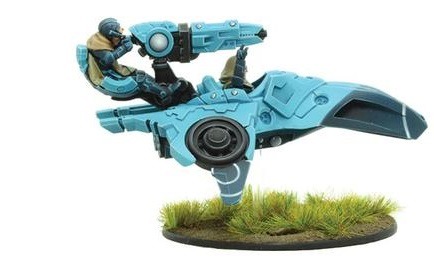
Striker
The first proper Freeborn vehicle, at 150 points you get a decently armoured, MOD 2 vehicle with a plasma light support. This means that not only is it hard to kill, its also putting out some relatively decent firepower. You can swap out the plasma light for a plasma cannon, converting this from an infantry / light drone murderer to a vehicle killer. You can also give it a batter drone to protect your forces as you advance, and a HL booster to make it more durable, meaning mag guns won’t be able to pin it anymore! The downside here is that ups its cost to almost 200 points.
Strategic
The freeborn have 7 strategic options available.
Heavy Support Team
This comes armed with a mag heavy support at 60 points, which is great, but you’d be missing out on some of the biggest powehouses in the game currently. Those are the X howitzer or the mag mortar, which when combined with net ammo and patching, will pin anything out of the game in short order!
Specialist Heavy Support Team
Double the cost of the standard support team, these come armed with a plasma bombard, though can be given a compression bombard or a fractal bombard too. All of which excel at shredding higher armour targets. A batter drone gives them some much needed protection.
Feral Meld Skark
We can currently only imagine what these things look like, but at 50 points for a RES 8 model with 6 melee attacks, who cares?! The savage strike rule means it won’t run away during an assault, guaranteeing you a good shot at mudering anything given you have to roll on the best damage table in the game for it.
It’s fast and its scary, and perfectly rounds out the idea of a feral list, bulking out on skarks, meld skarks and mhagris to bring a high order dice force to the table.

T7 Transport Drone
The transporter drone is exactly the same as the C3 version, its meant to be used to deploy troops quickly across the board, and it can achieve this pretty damn easily. Its RES matches the Ghar battle suits, making it a great tanky model to hold and support a flank, though costs almost as much as 2 units of strike troops. Armed with a single plasma light support it can also handily fill the role of smaller support teams. Though for a few extra points, equipping it with a batter drone, twin mag lights or a mag cannon and you get a force to be reckoned with.

C3M4 Combat Drone
This is the big brother of the support drone choices, armed with a plasma light support and plasma cannon as standard, it is only 80 points more expensive than the transporter drone, and considering the extra firepower, worth it!. The plasma cannon can be upgraded to a Fractal cannon or a Compression cannon as talked about earlier. As a MOD 2 vehicle this combat drone can dominate the battlefield, sniping out key targets with high power shots. Again, add on a batter drone or some shield drones to create a durable vanguard model.
C3M25 Heavy Combat Drone
Another vehicle the Freeborn managed to borrow from the C3. Armed with plasma bombard as standard, the kind of gun that rips through armour like hot butter. It’s also MOD 2, for effectively double the firepower, and a Plasma light support for taking on infantry. The downside? The price tag. At over 400 points this isn’t something you throw in when you have a few spare points, and as with all strategic options, you won’t be fielding huge numbers of these. You can upgrade the main cannon to a compression bombard, which at short (as in… less than 50”) range is SV 9, though this does drop over longer distances, if that ever comes up.
C3M50 Heavy Support Drone
Just as expensive as the M25, this is the bomber of the group, compared to the sniper-esque M4 and M25. It’s just as expensive. MOD 3 makes it surprisingly quick, despite moving at half speed, enough for it to keep up with strike teams, though it can’t fire with its heavy weapons with an advance order. It’s armed with plasma light supports and X Howitzers by default, along with the wide range of great ammo types available. But if that doesn’t cut the mustard, why not upgrade to a Mag Mortar for double the blast template, or a Fractal Bombard, which slowly increases in power, given the fact its MOD 3 this means that you can usually reach SV 7 before the enemy can react.
Auxiliary
The Freeborn have 4 Auxiliary Choices

Targeter Probe Shards
These things are great! At only 20 points for 4 they’re great for those few spare points. They’re fast, hard to hit and annoying to remove, but the reason you take them is to provide a +1 accuracy for people shooting at units they’re base to base with, making those risky 50/50 plasma cannon shots more reliable, against downed units, they are worth their weight in gold. Alternatively, they reduce the scatter from OH templates to a more reasonable level, helping you land those all important net ammo shots.

Hound Shard
Amazing with any feral unit, these allow any ferals to reroll command checks. That’s for anything, break tests, recovery from down orders... anything. They’re cheap, but unless you’re bulking up on ferals, not necessary.
General Purpose Drone
Another C3 invention, this is a perfectly cheap way to bring a batter drone onto the table. It won’t do anything else, but act as a moving shield for your troops so they can get into position. You can give it a subverter matrix, turning it into a drone and probe killing nightmare.
Misgenic Rejects
Another odd unit, its an infantry squad, but its an auxiliary... making it an interesting choice. It requires a renegade NuHu to be taken, but for 30 points you get 6 squishy infantry who are distinctly average across the board. What makes them special? Their misgenic abilities!
These range from an extra attack in melee to increased stats to ranged attacks. There are a lot of options here. The first one is free, but for 10 points you get to roll on the D10 table. This could lead to some interesting combos, but its unreliable, but fun!
Characters coming later
0 notes